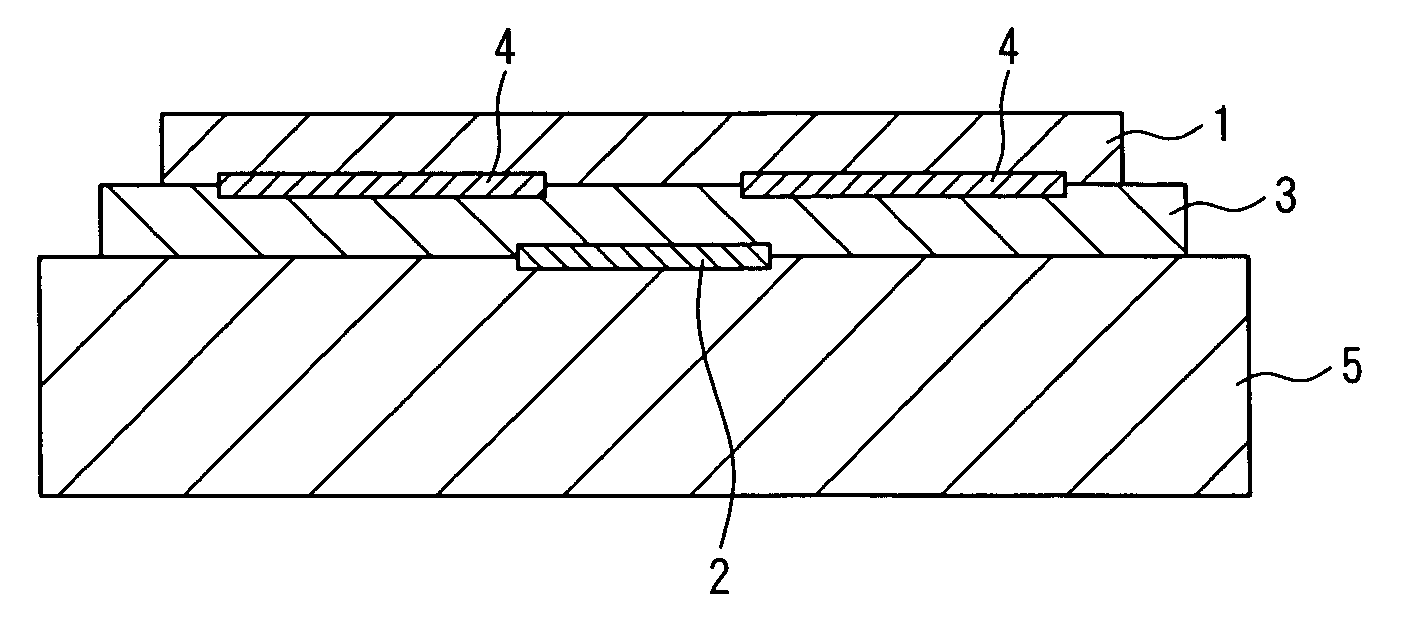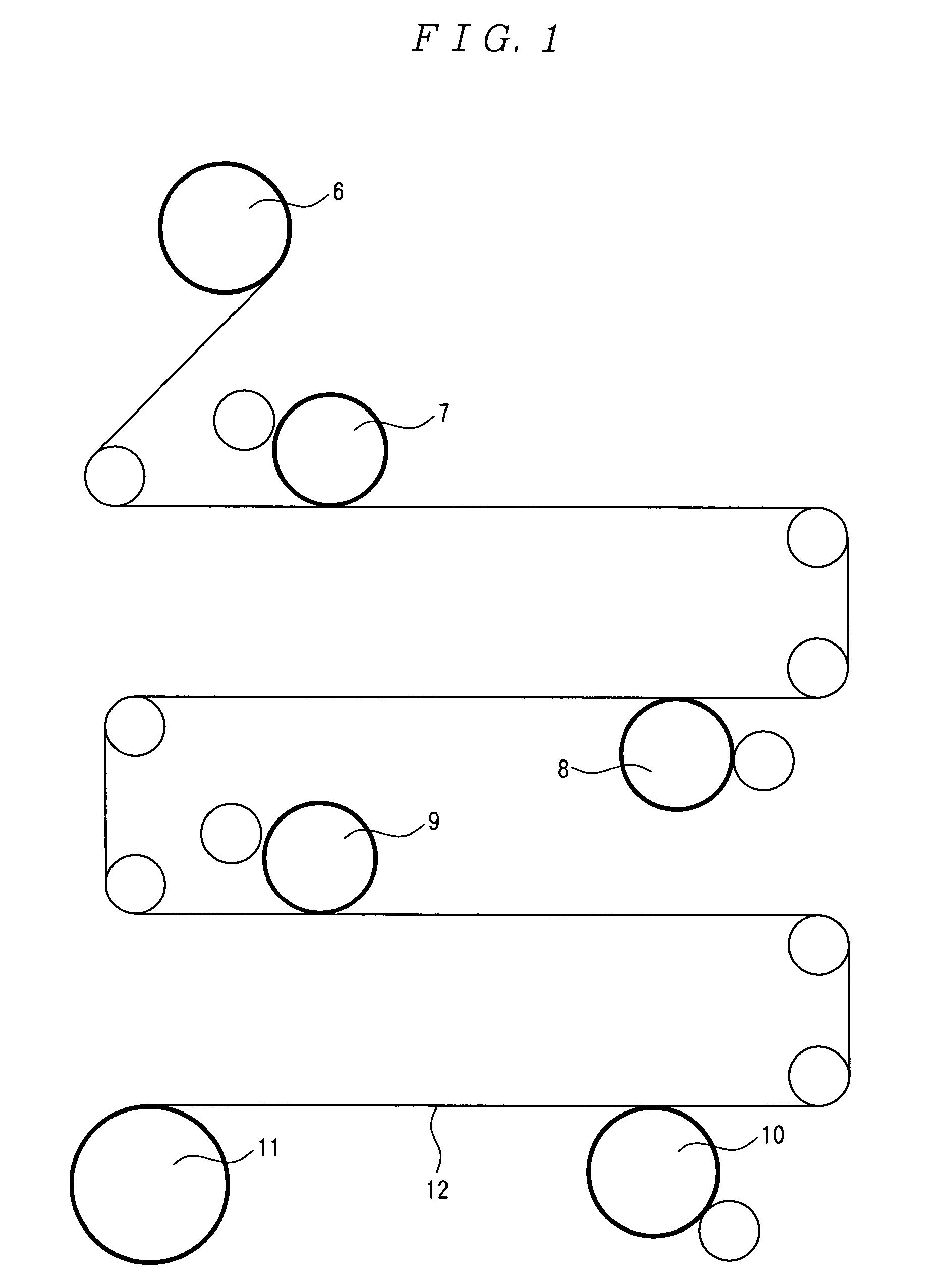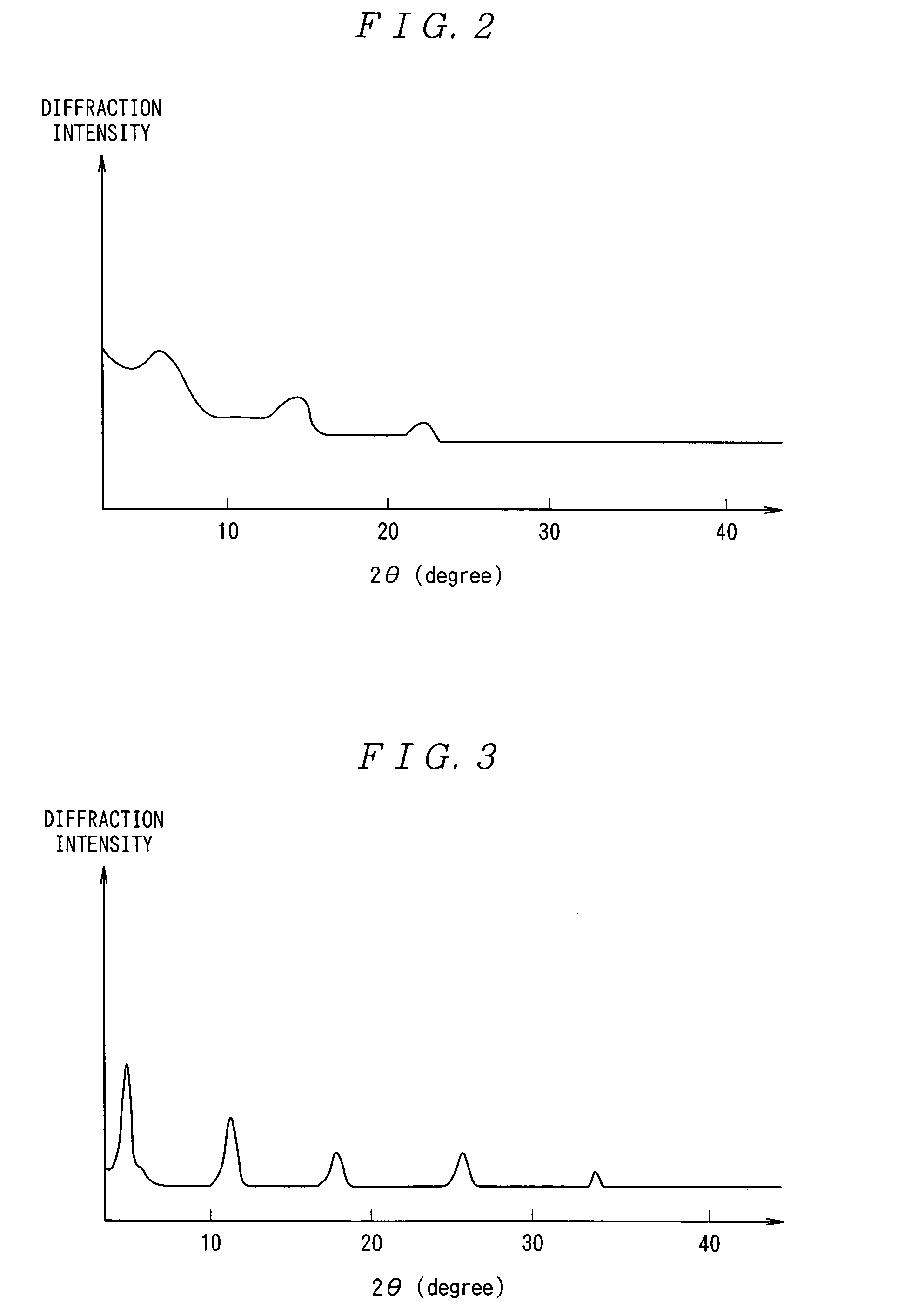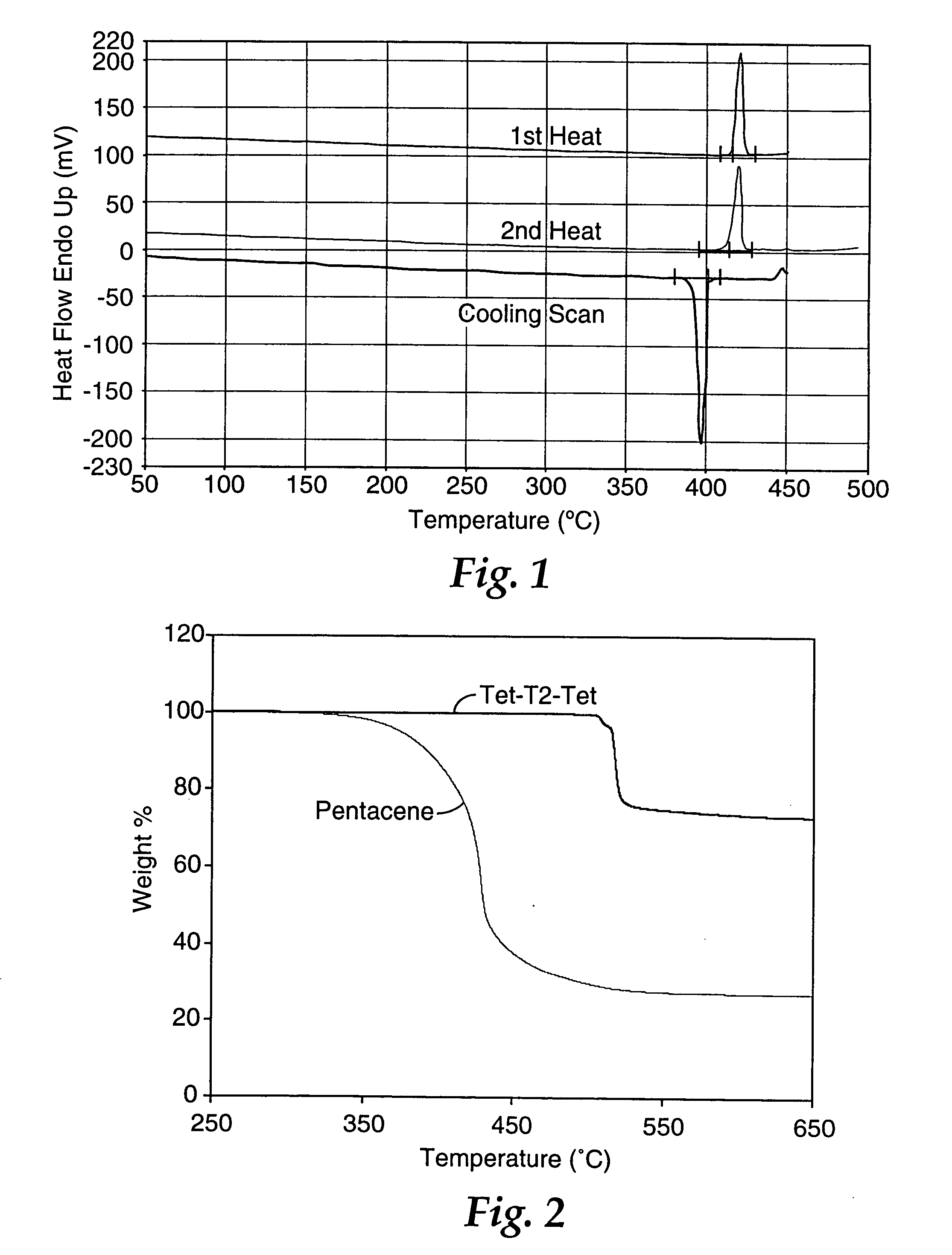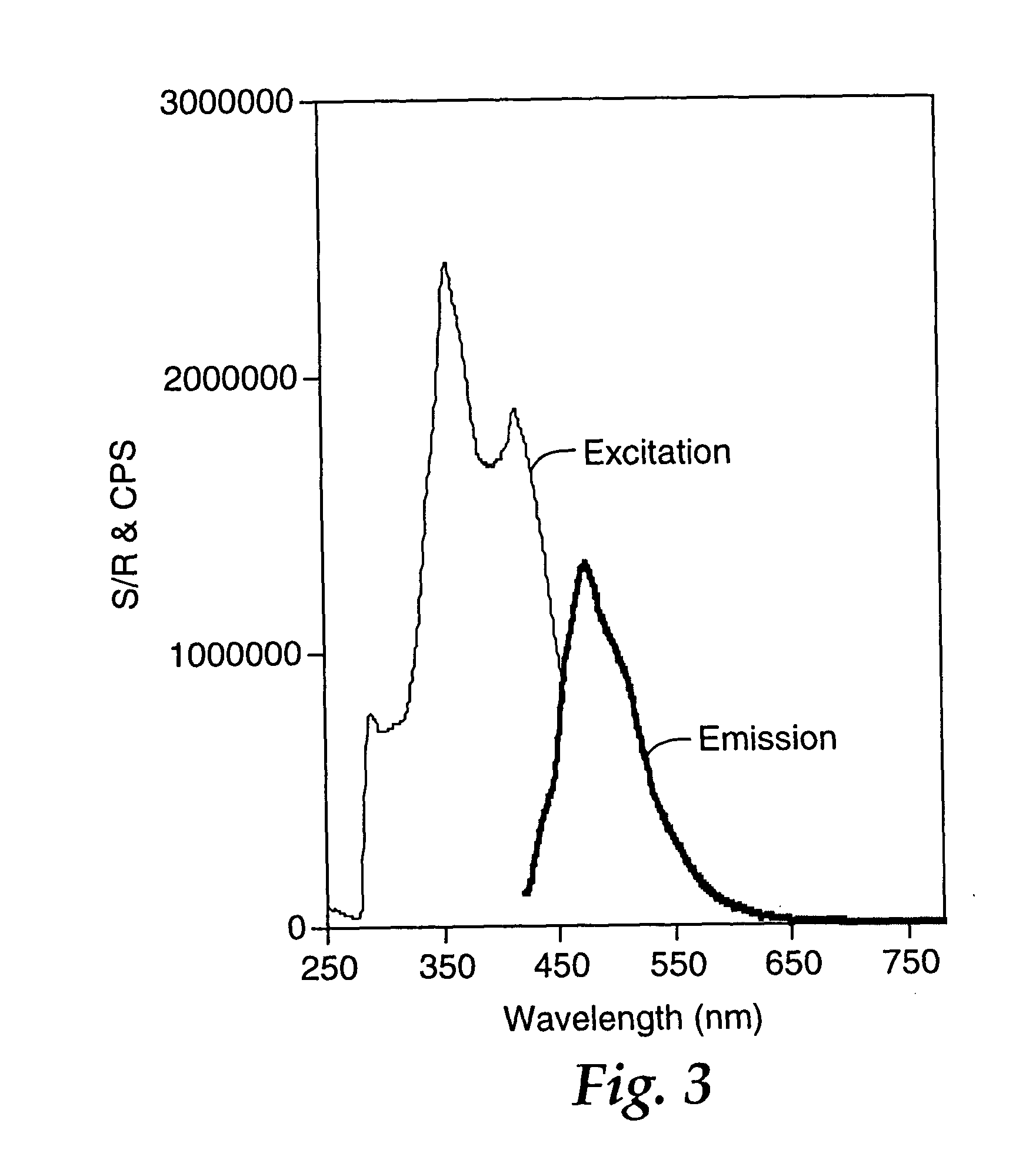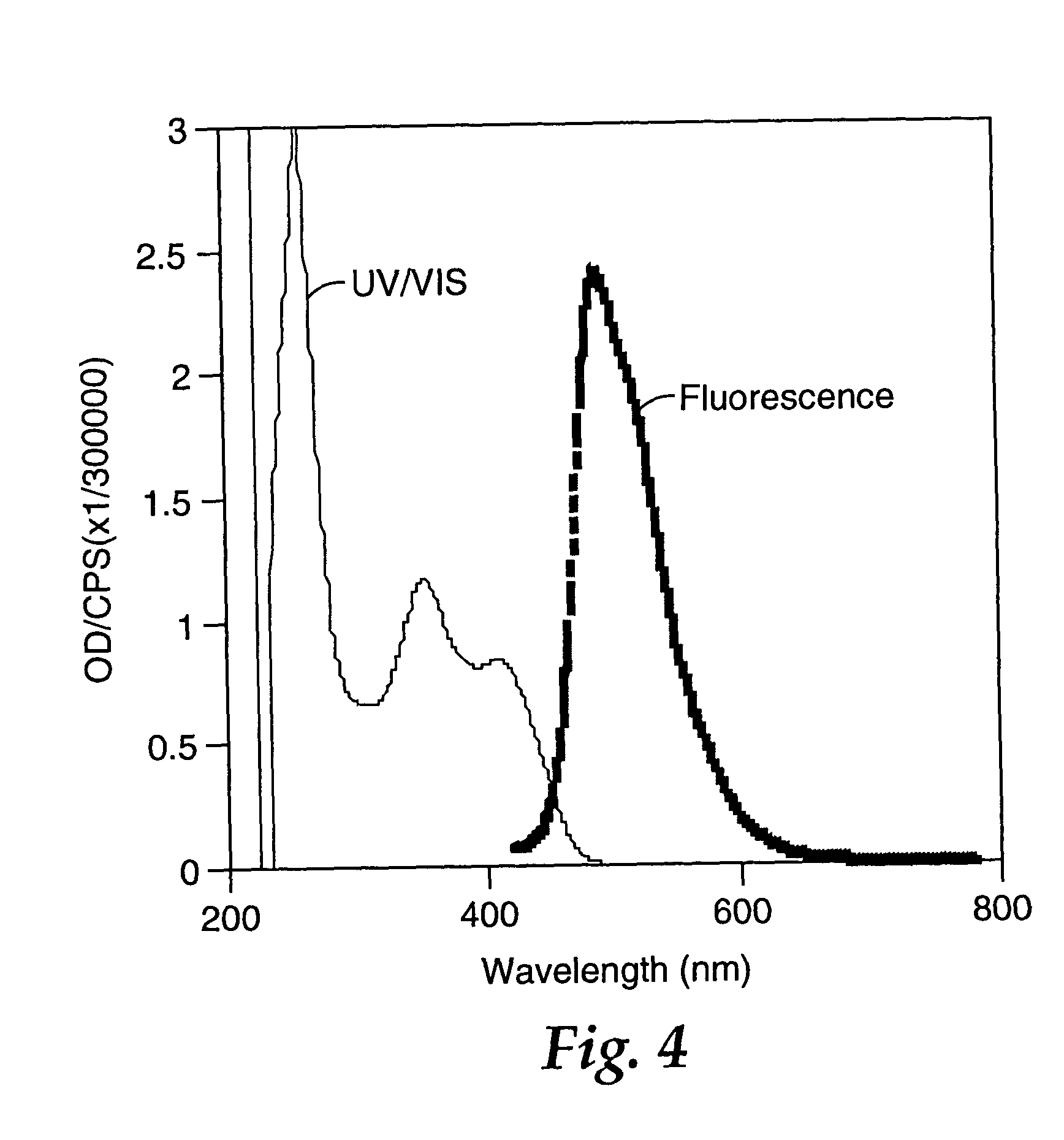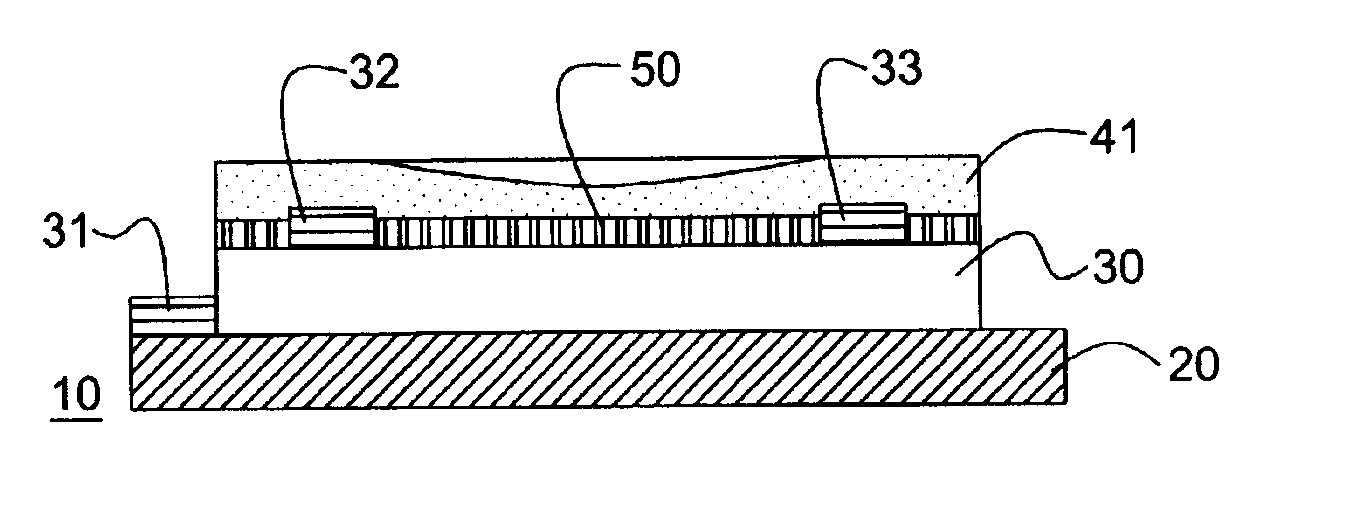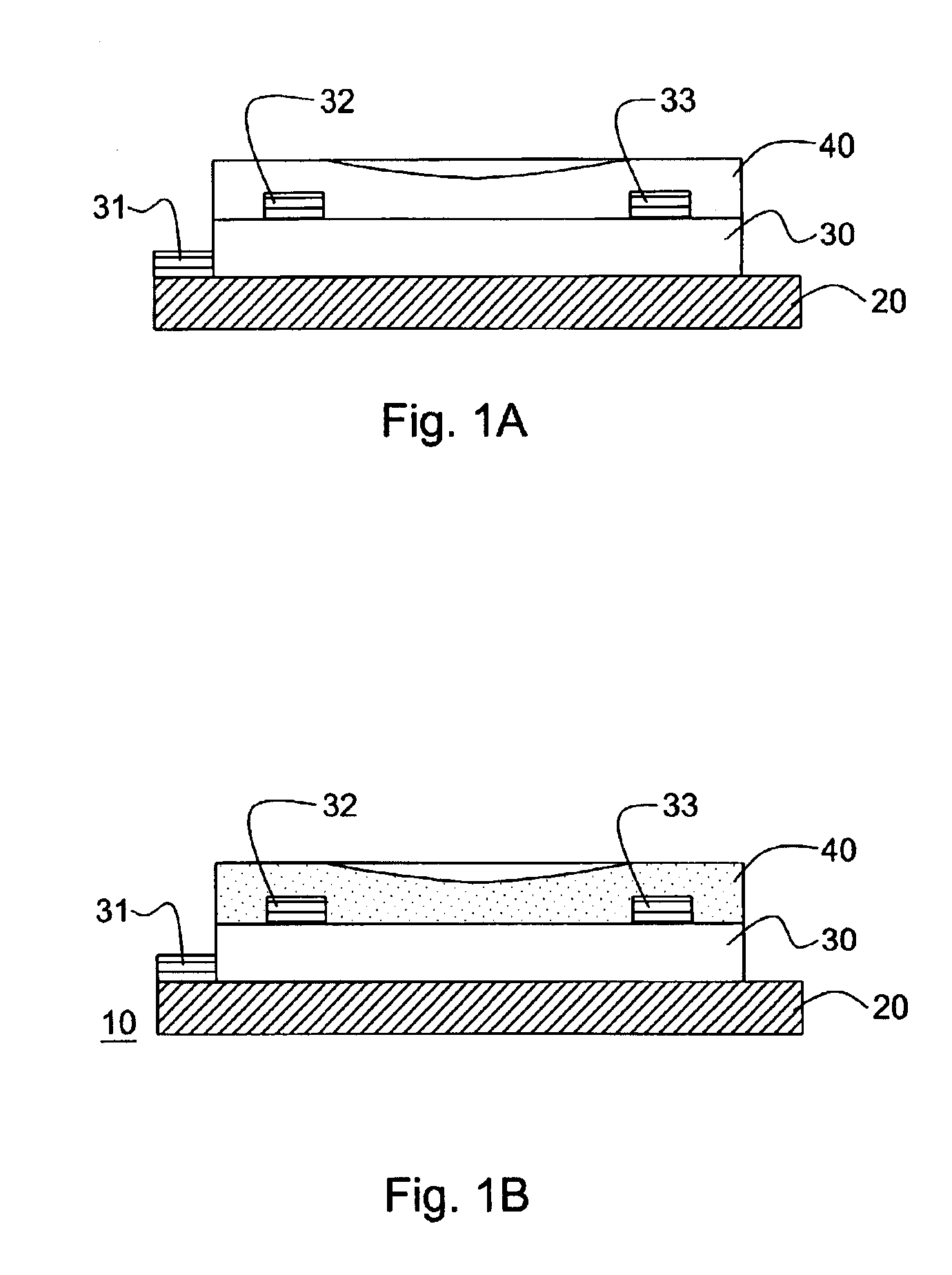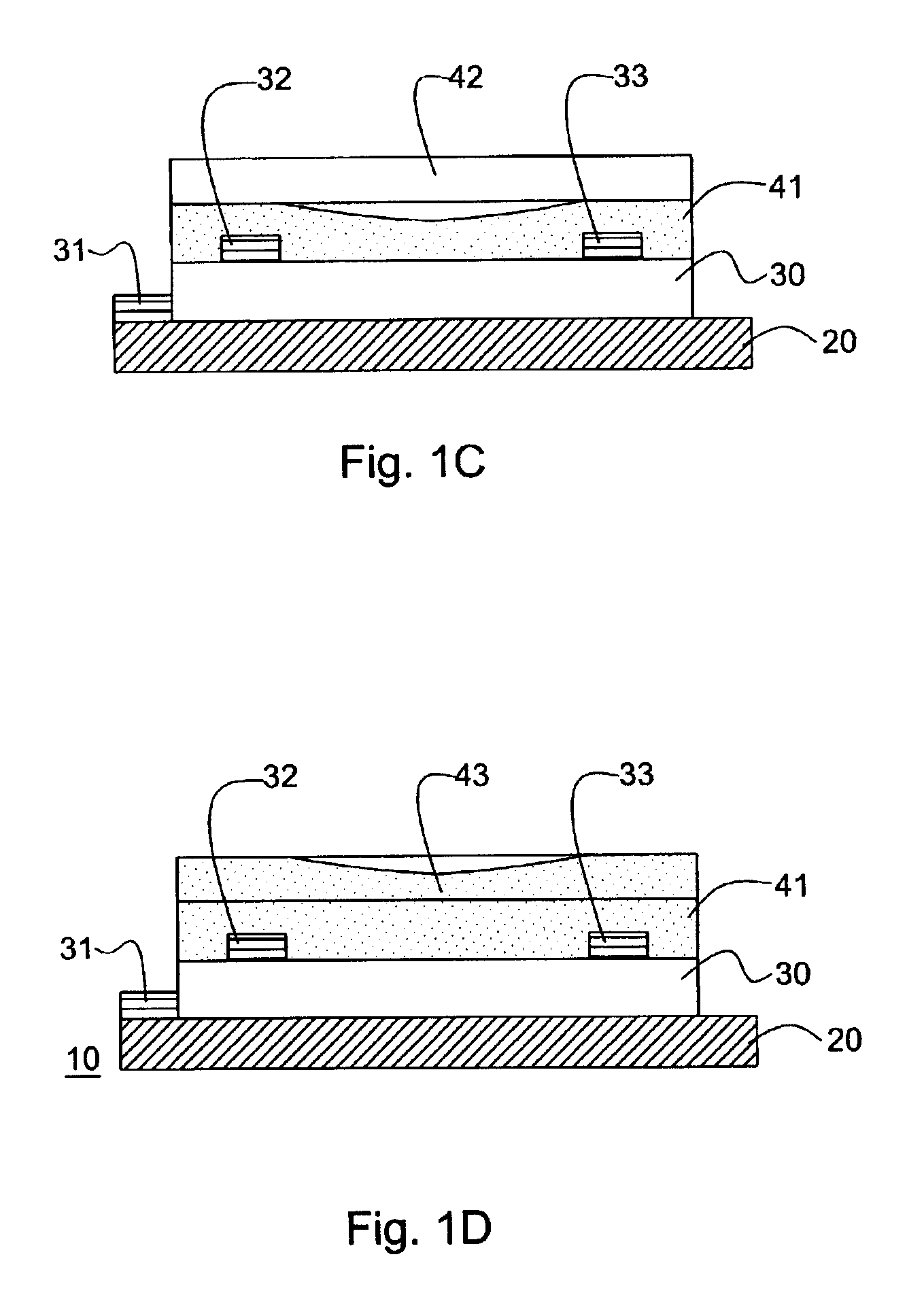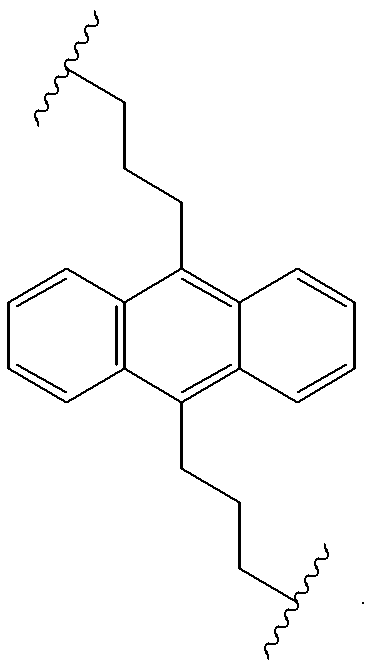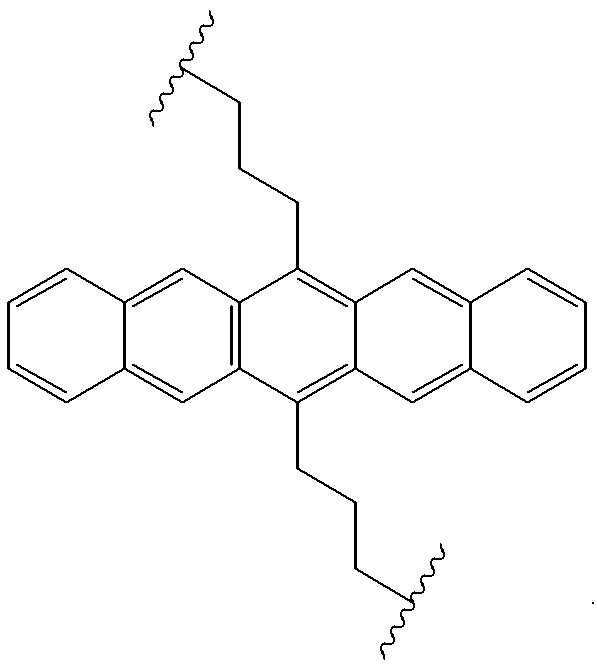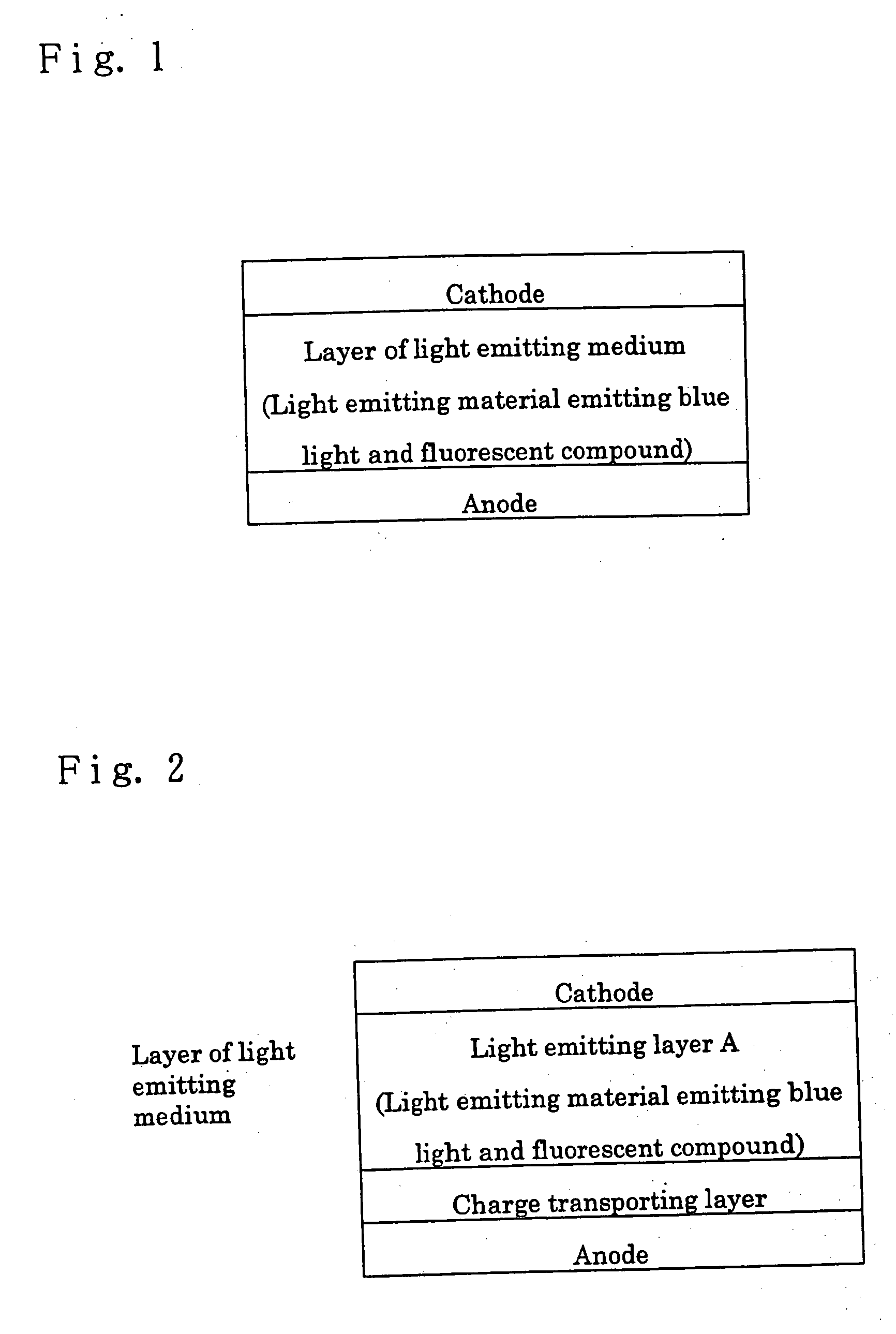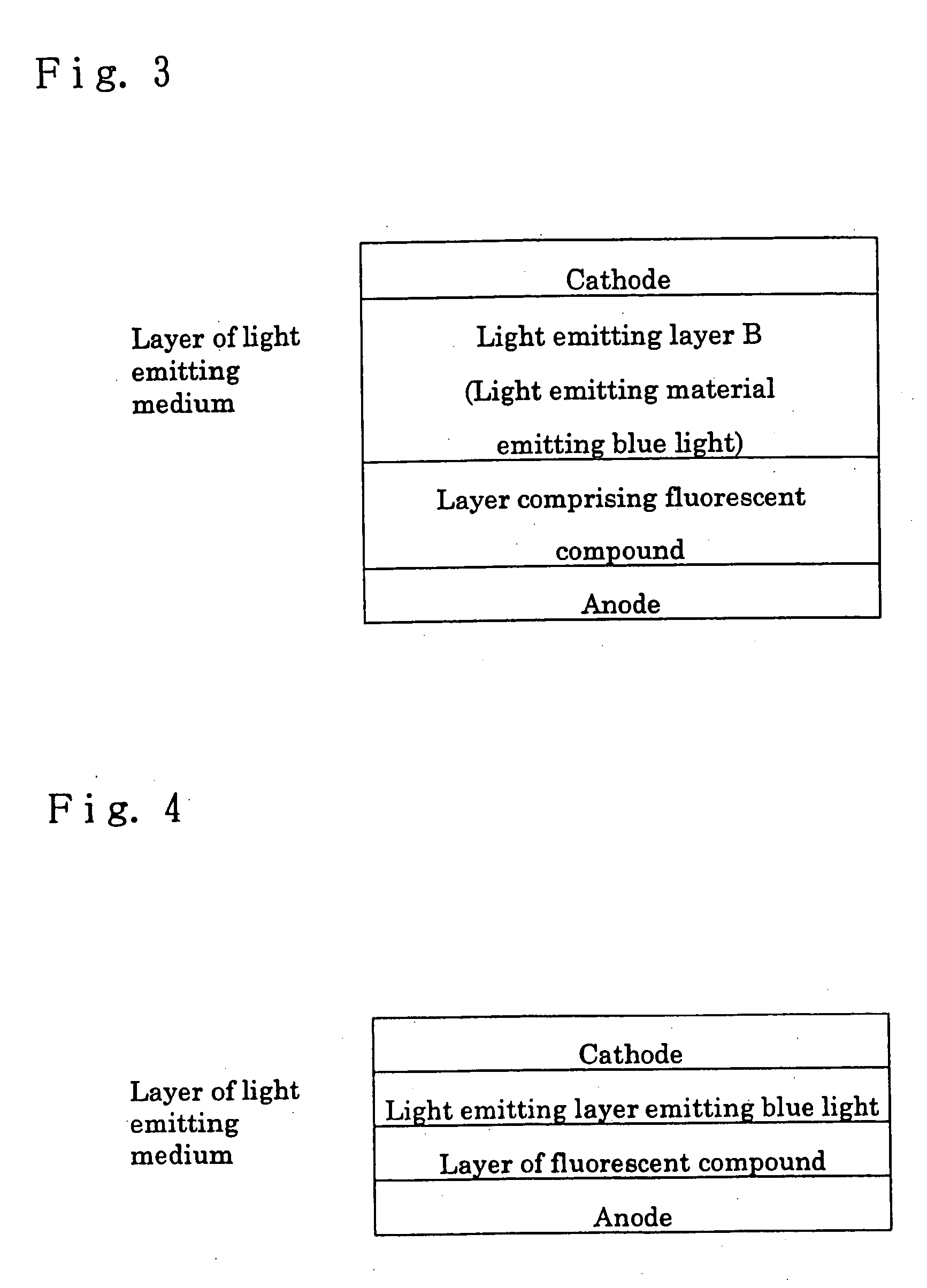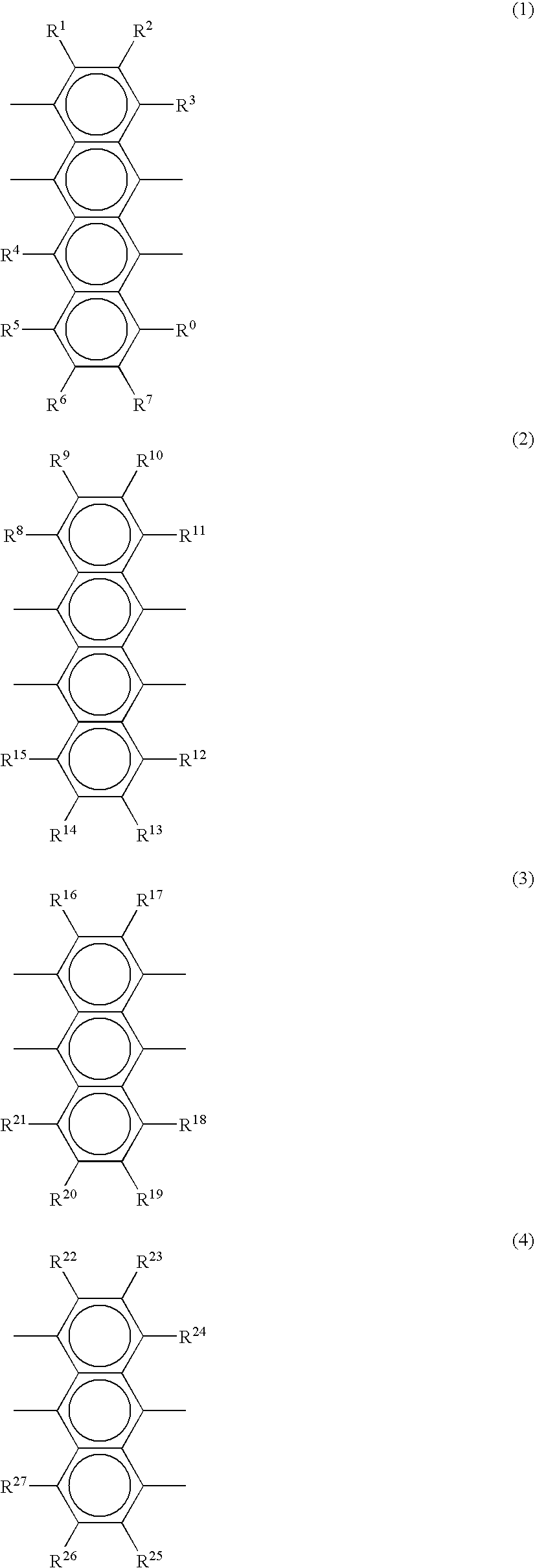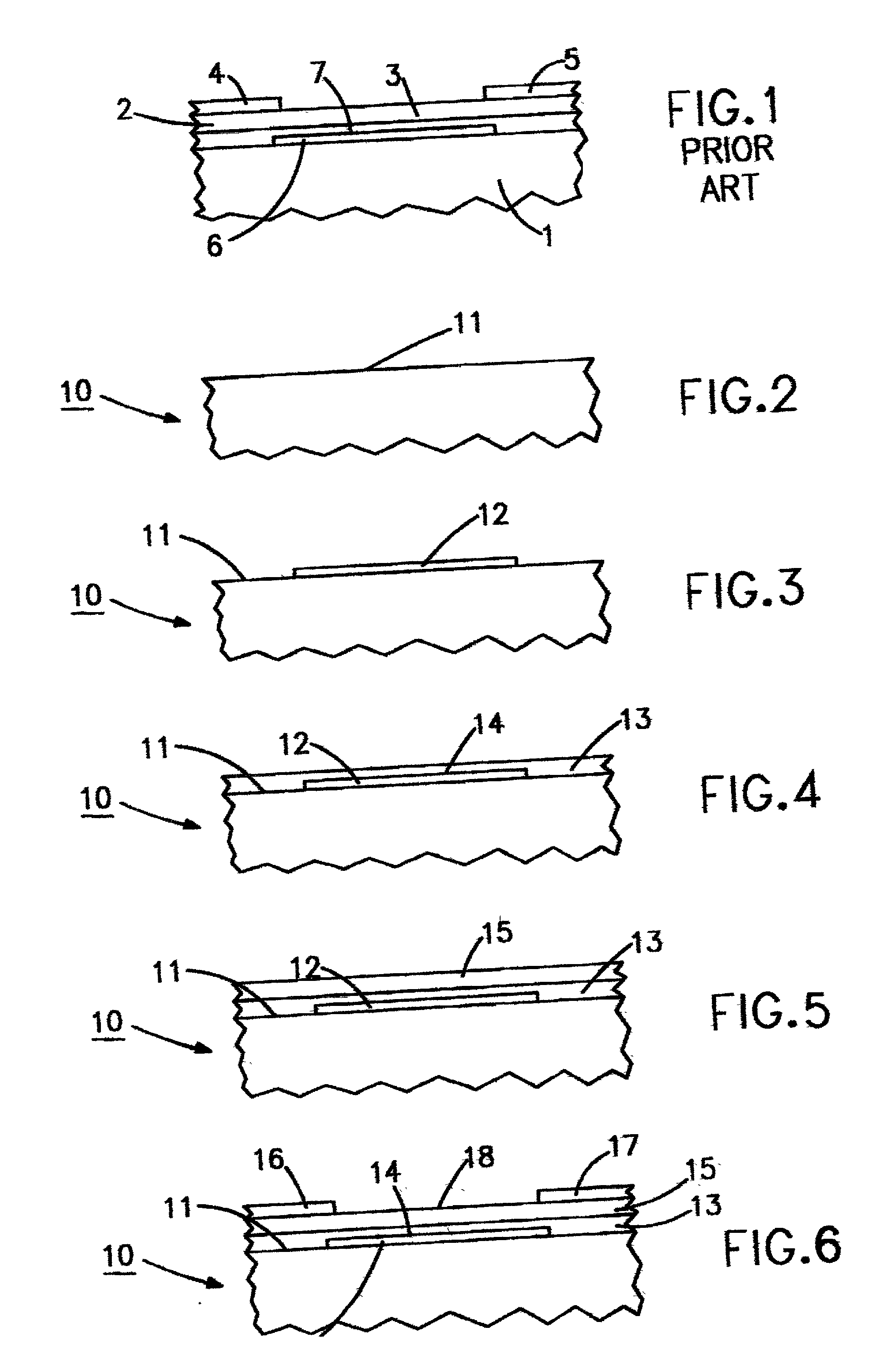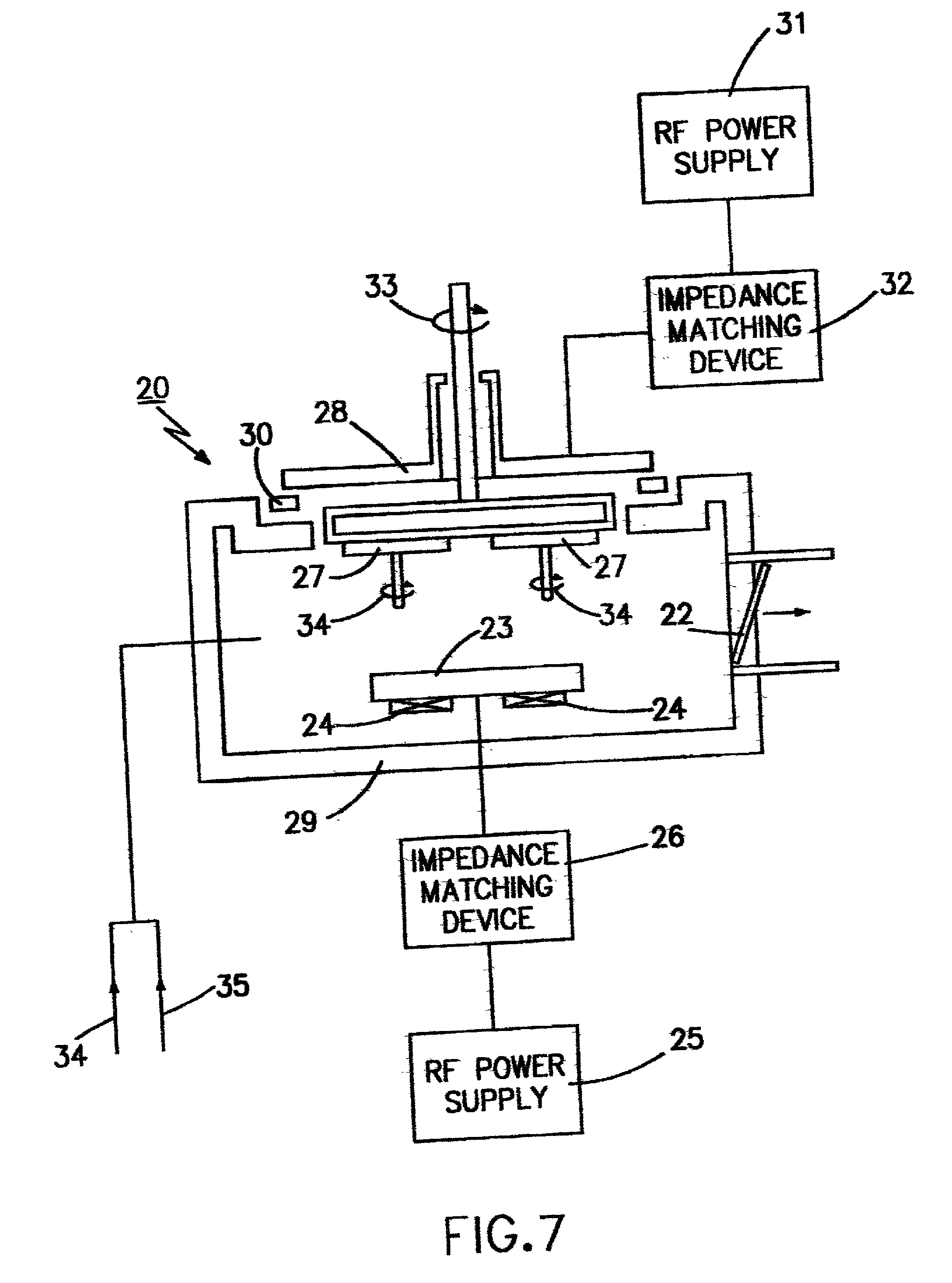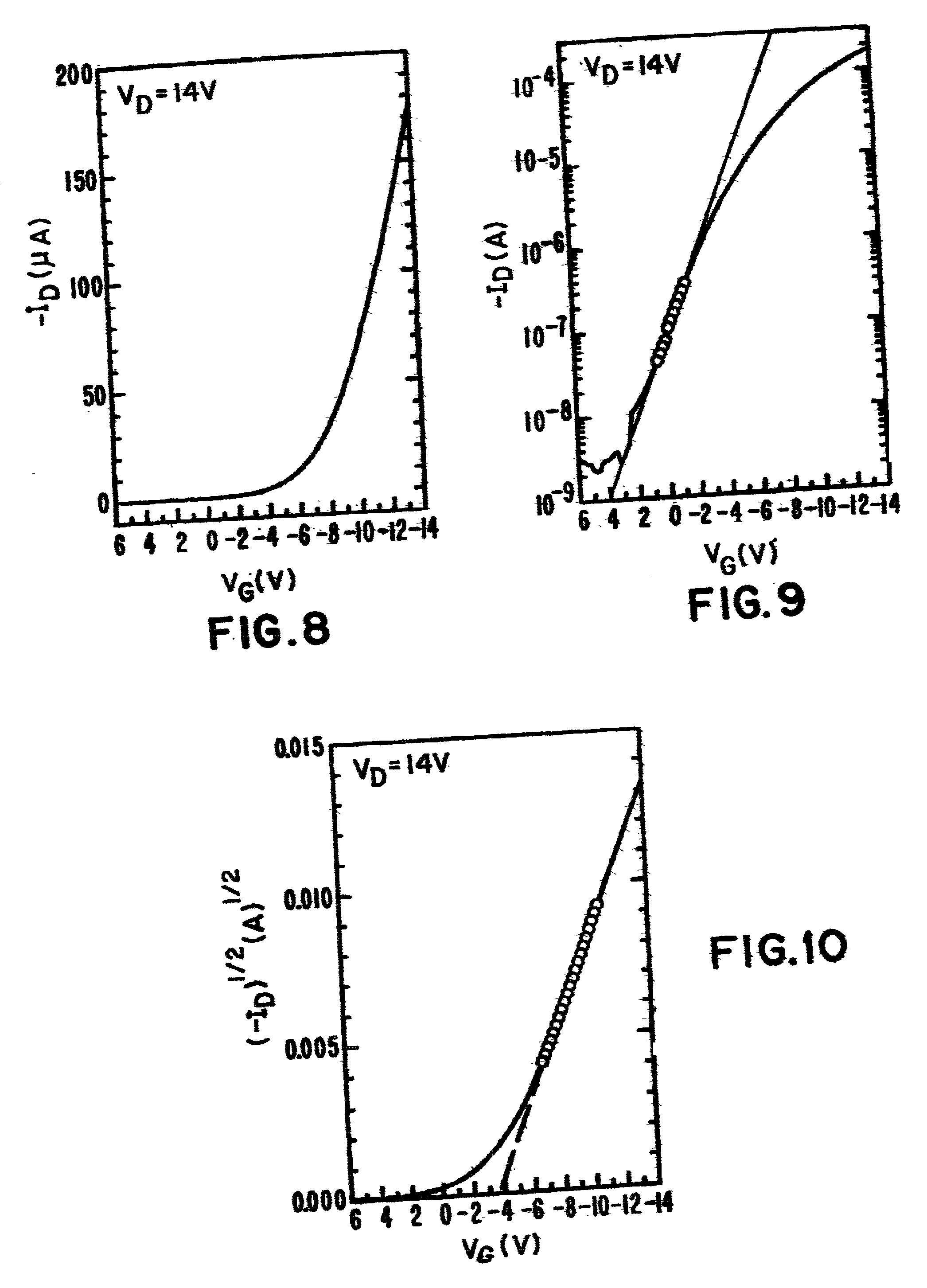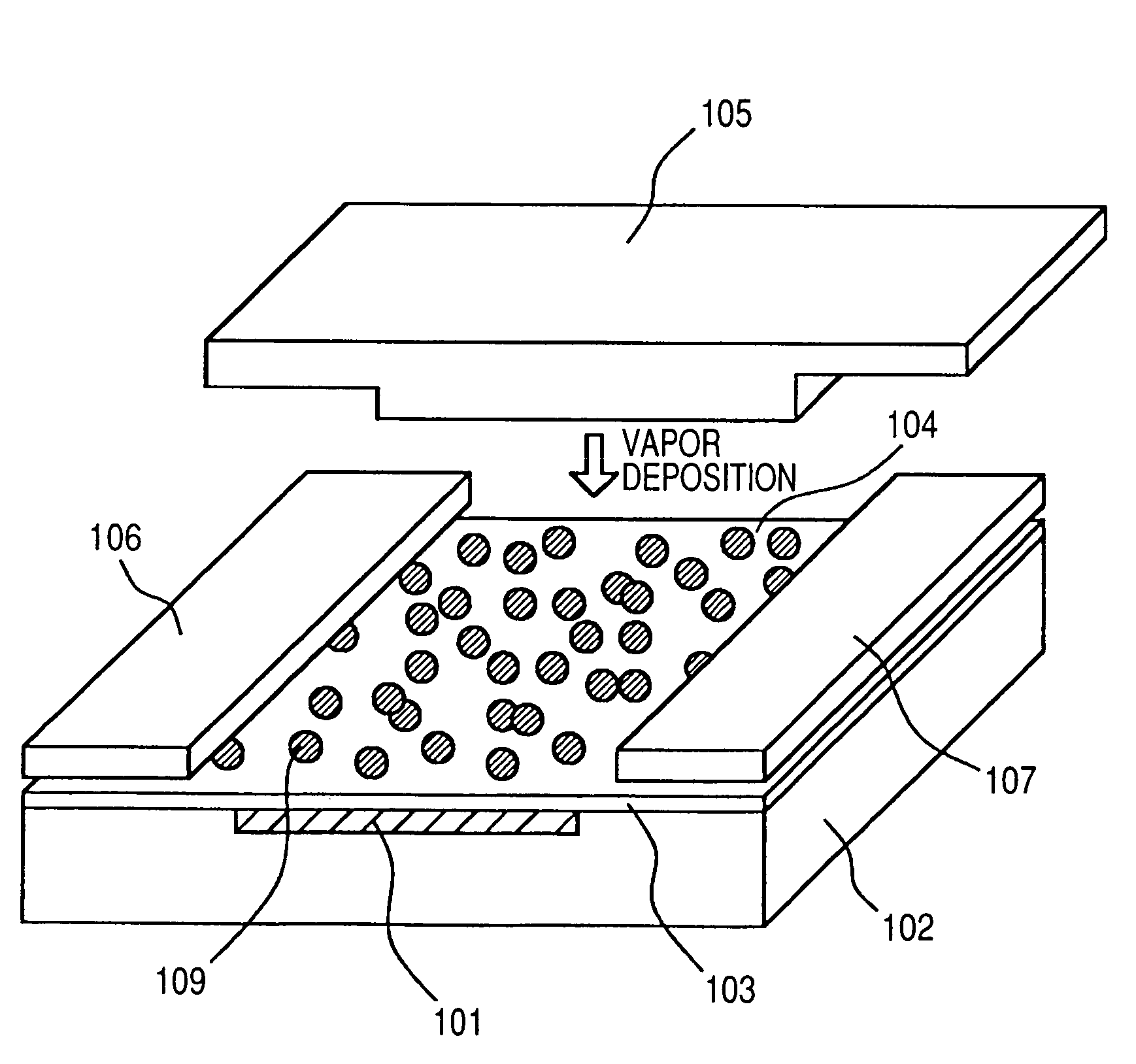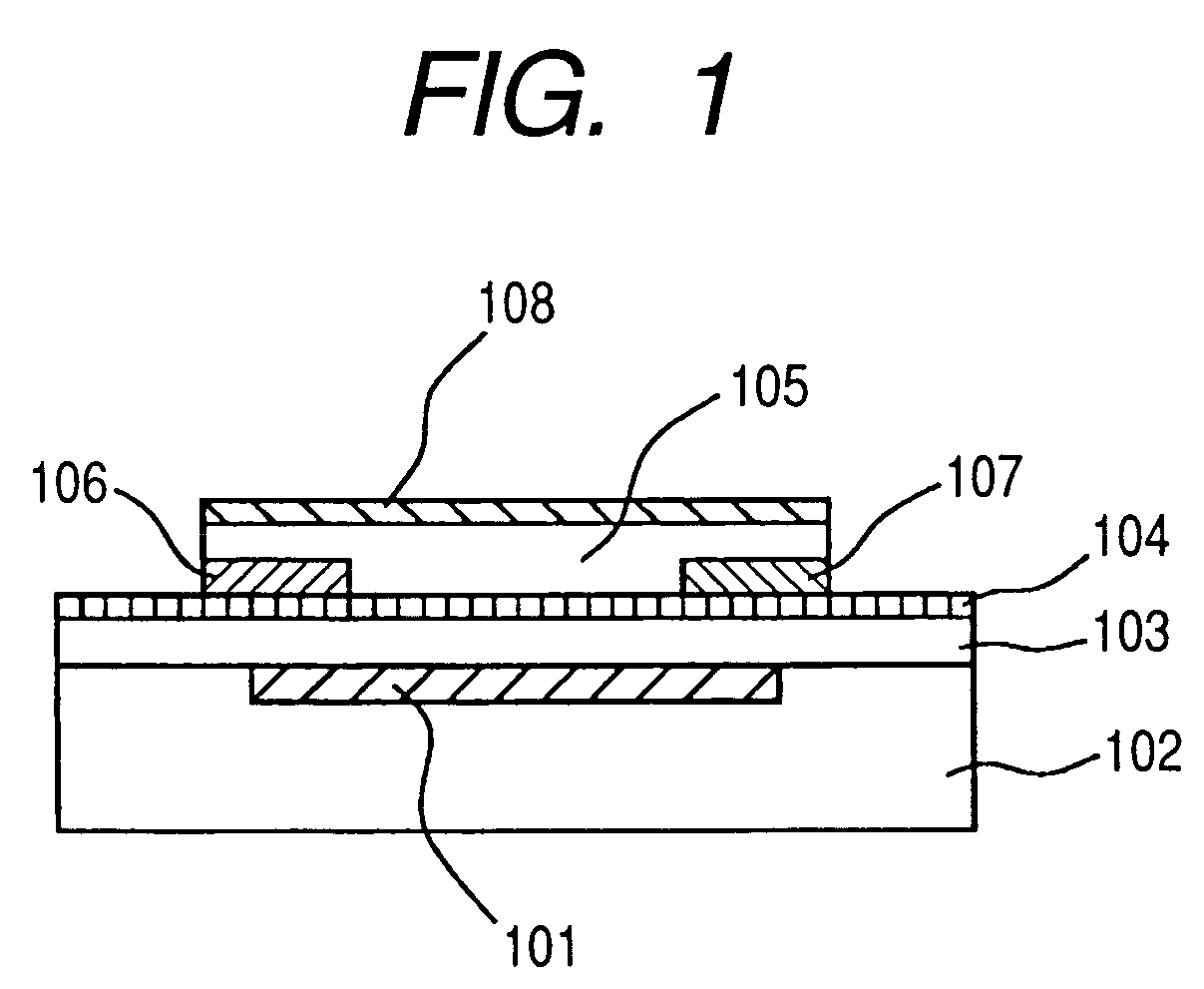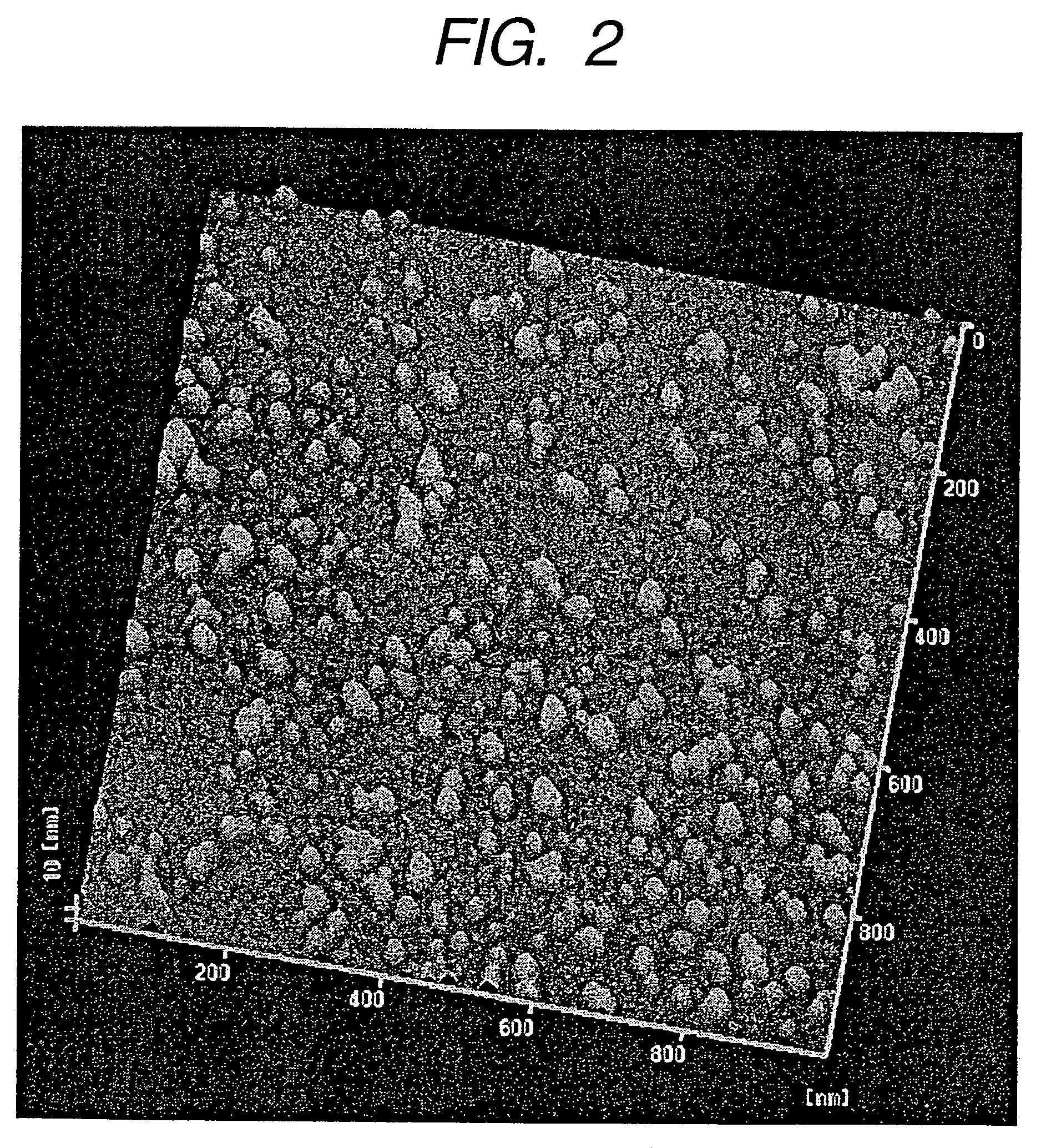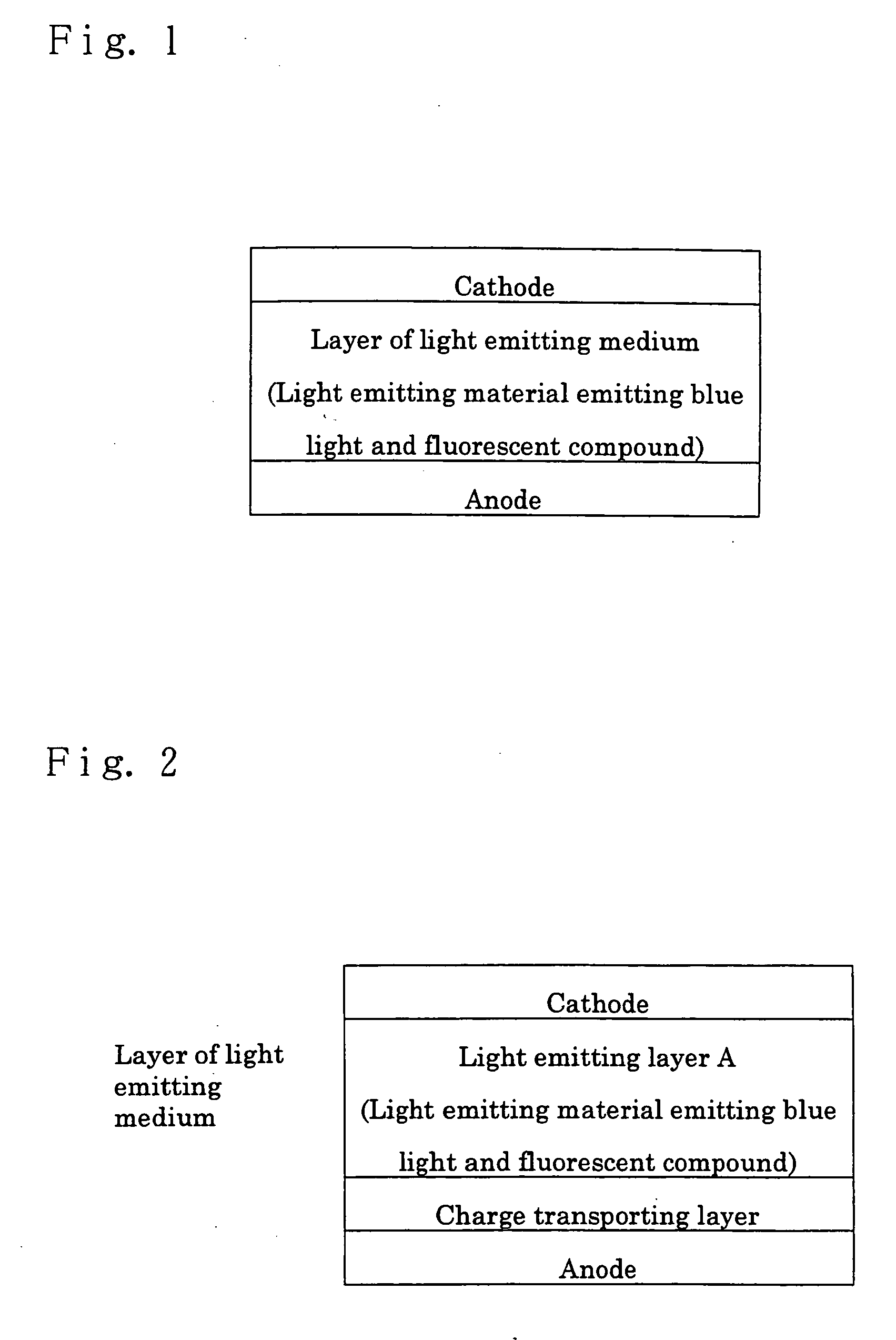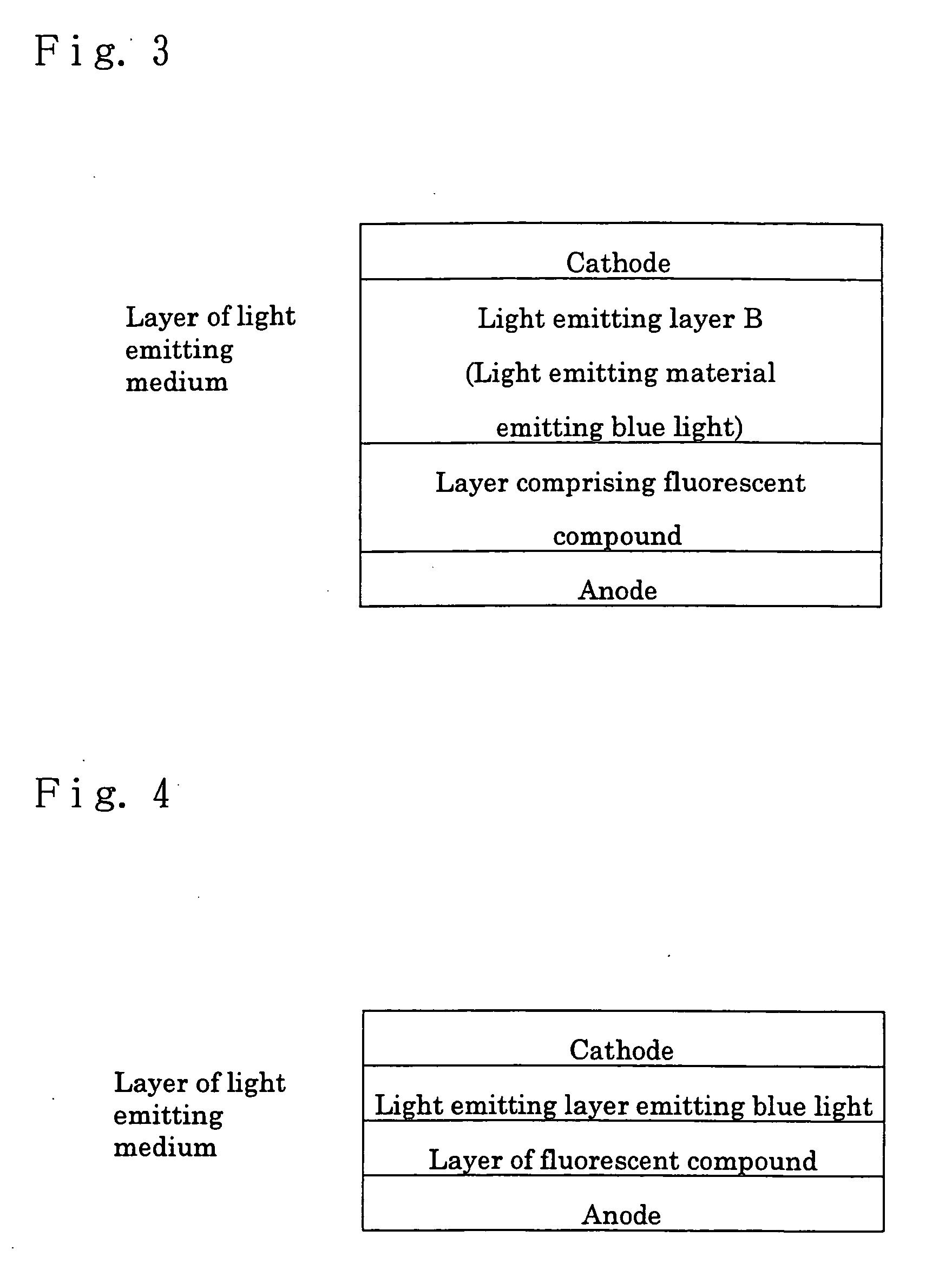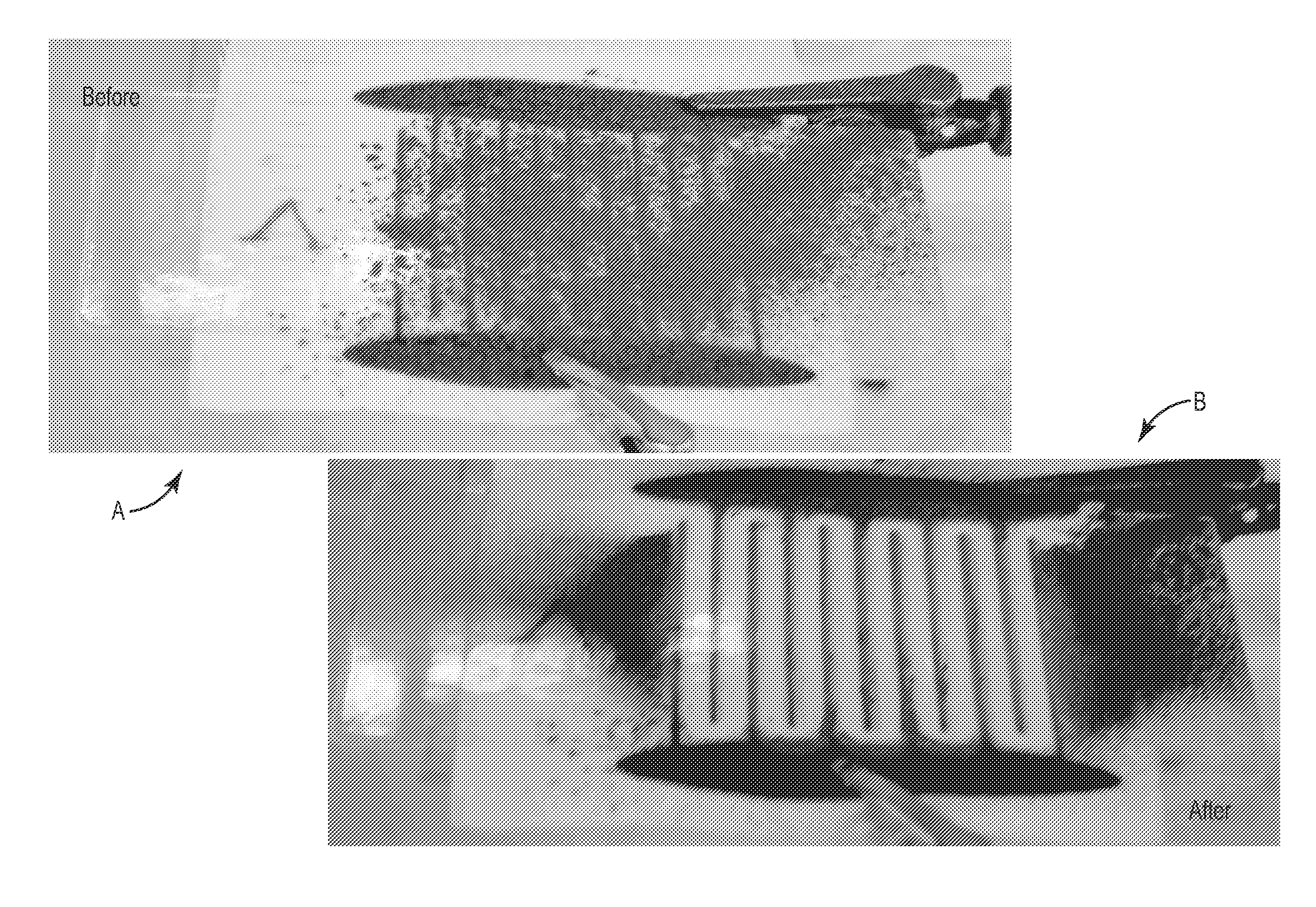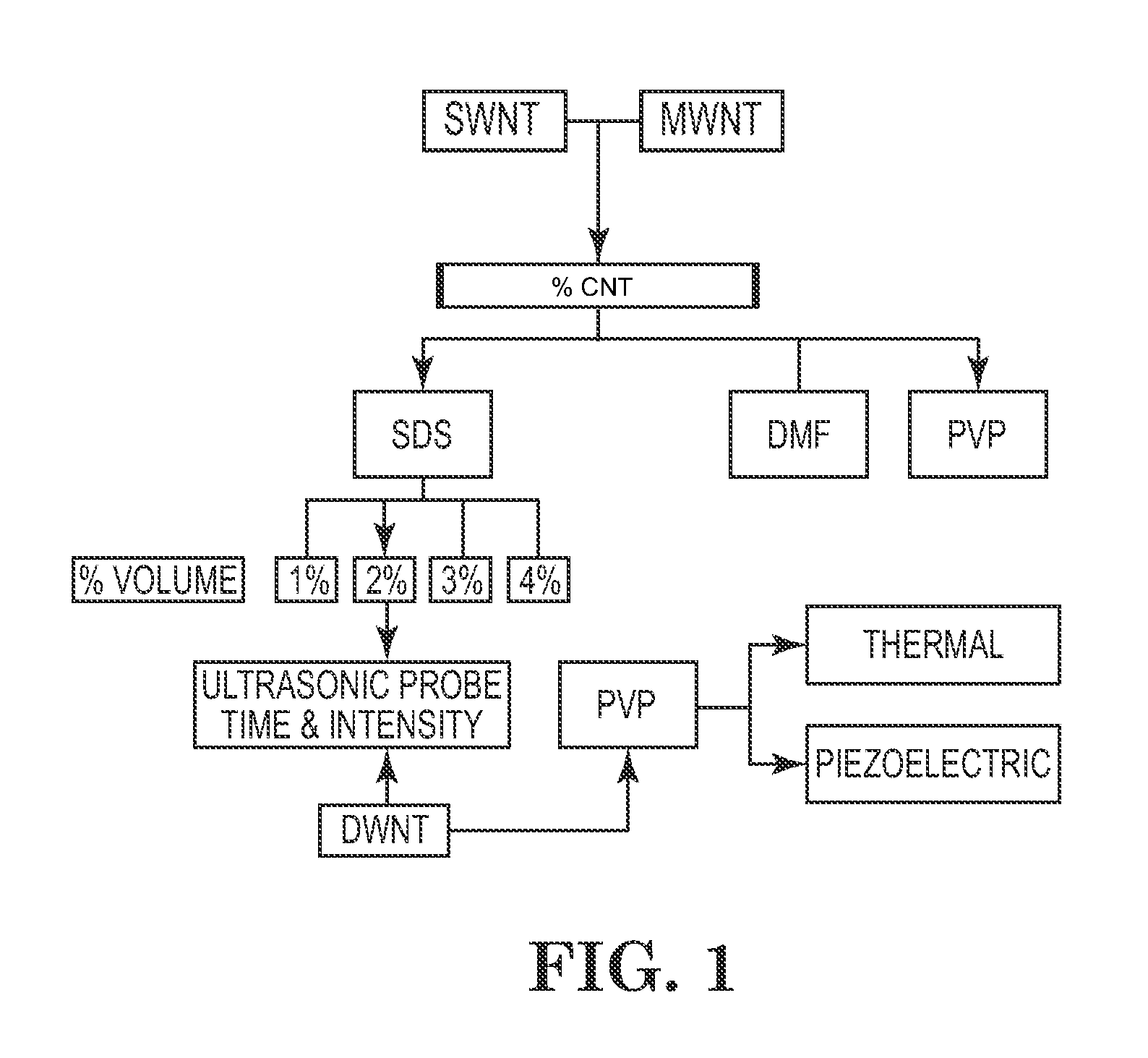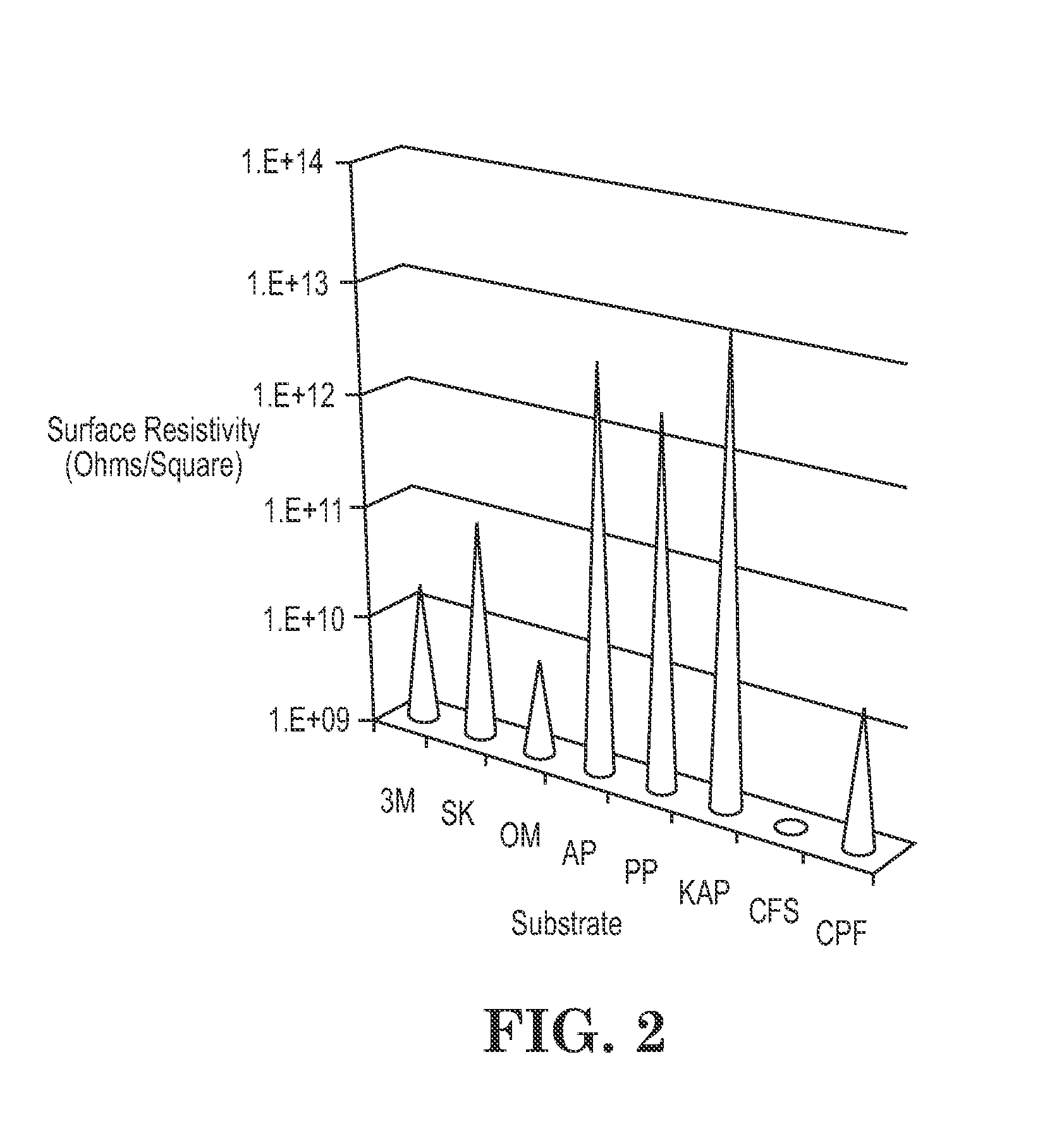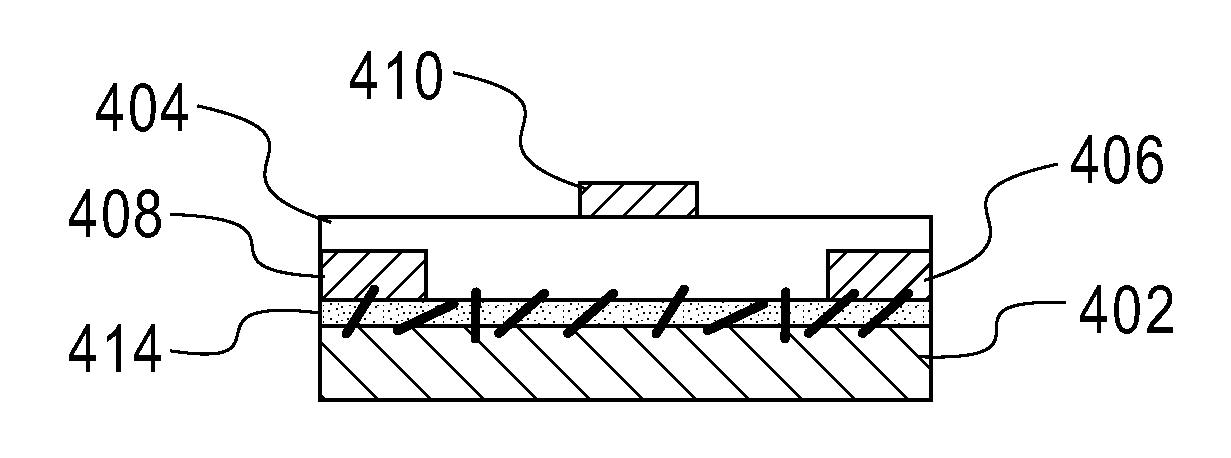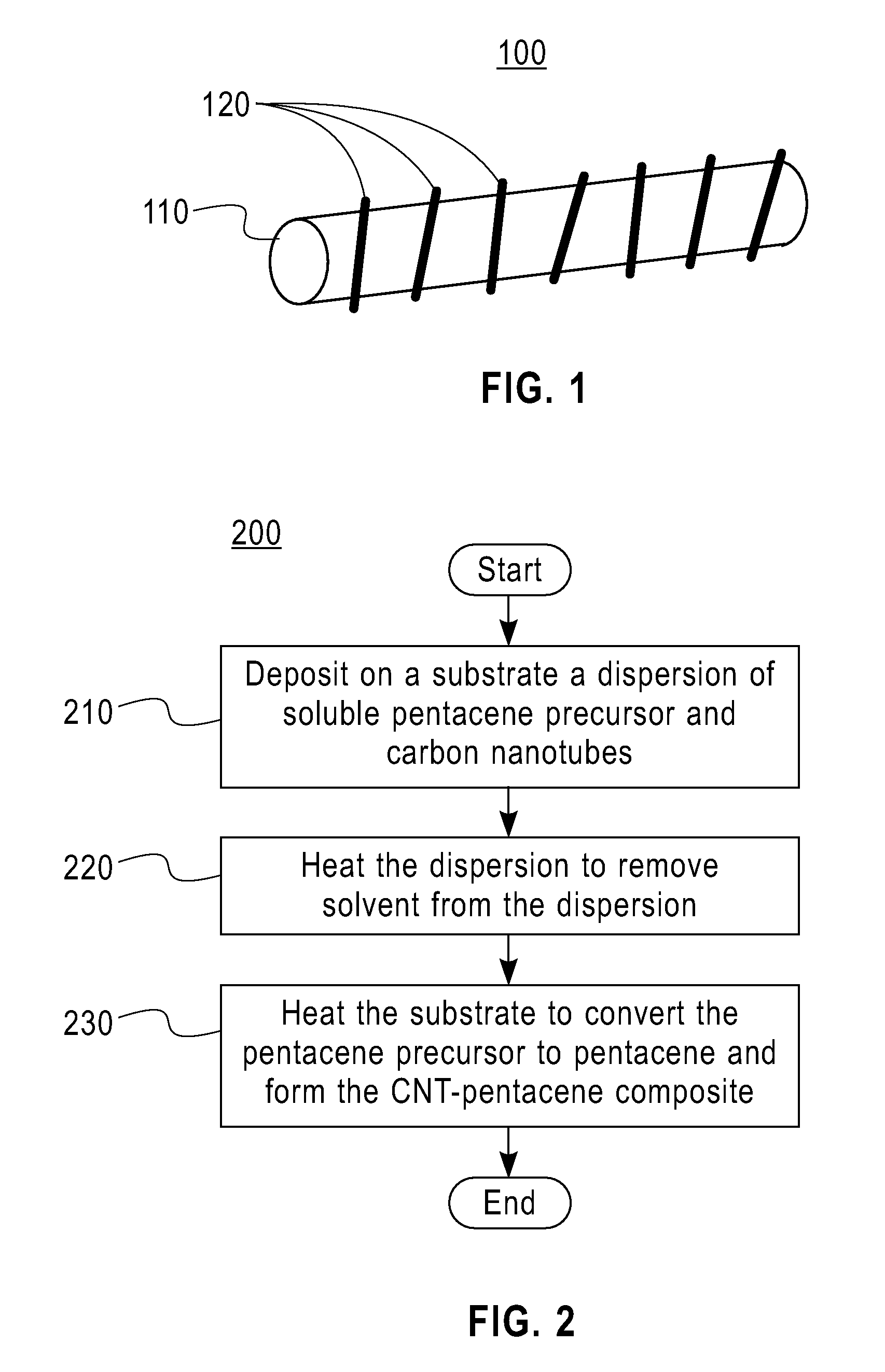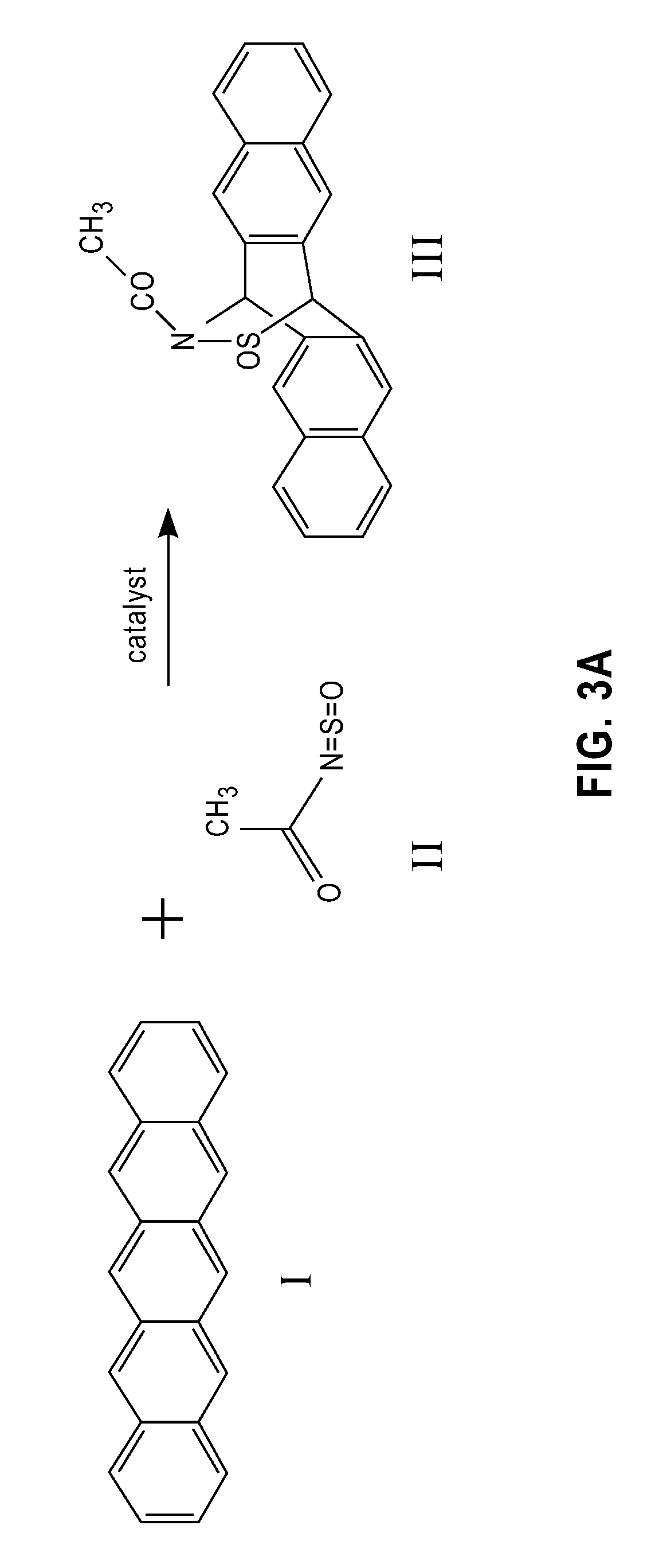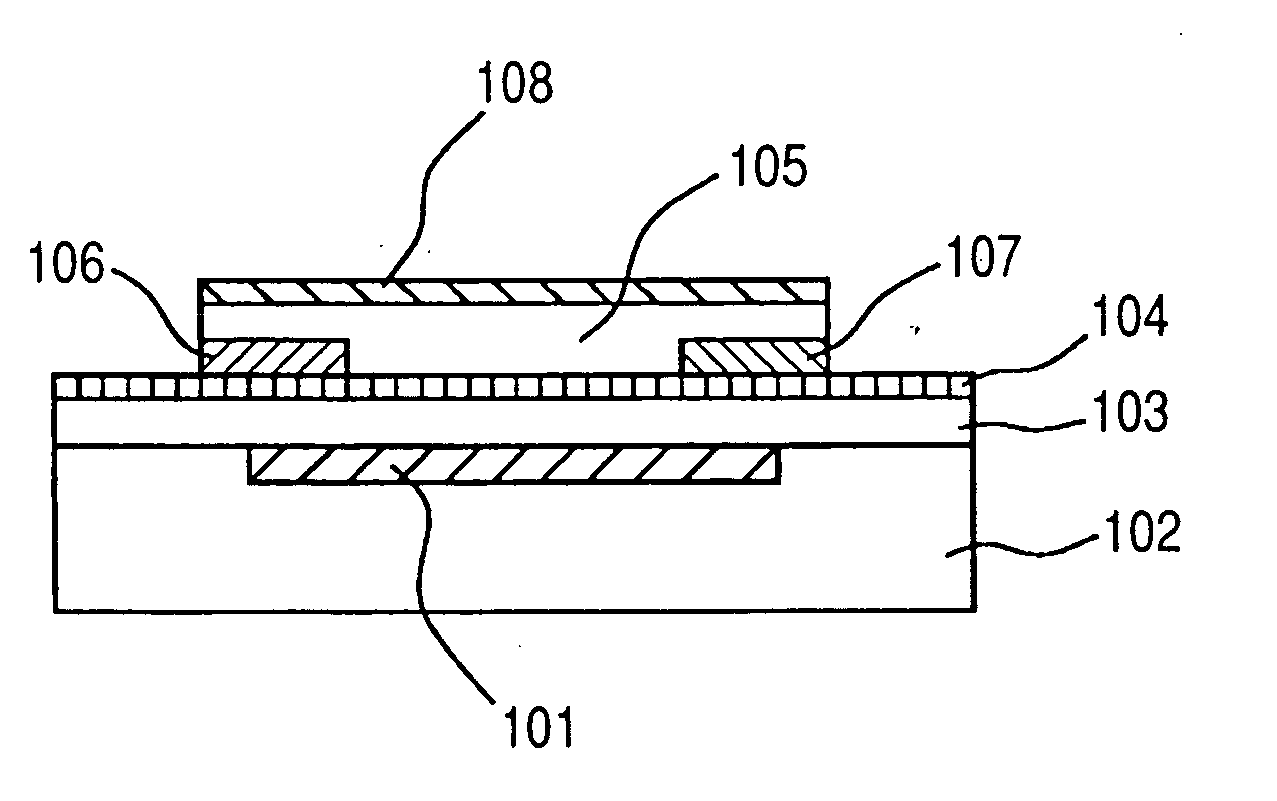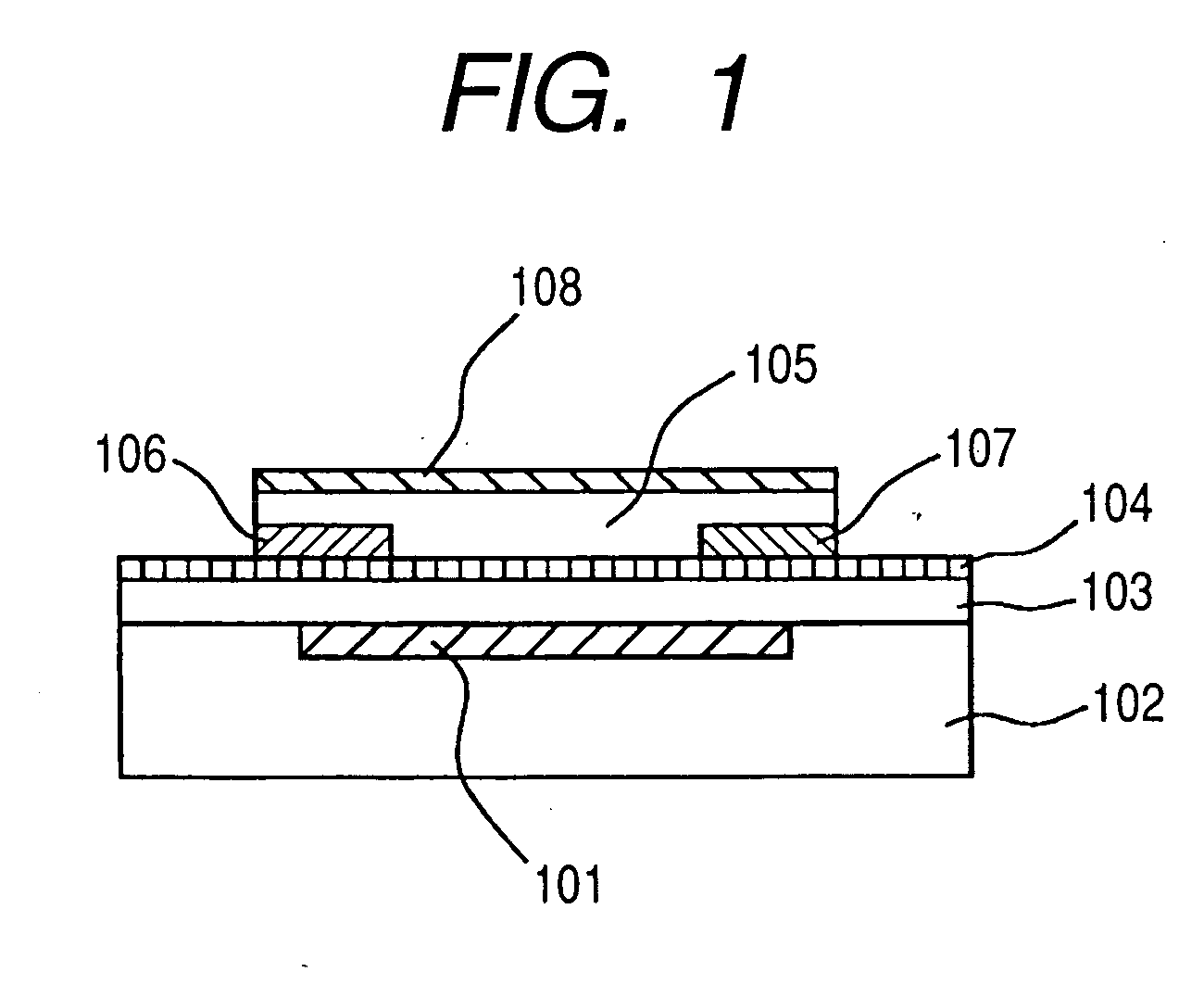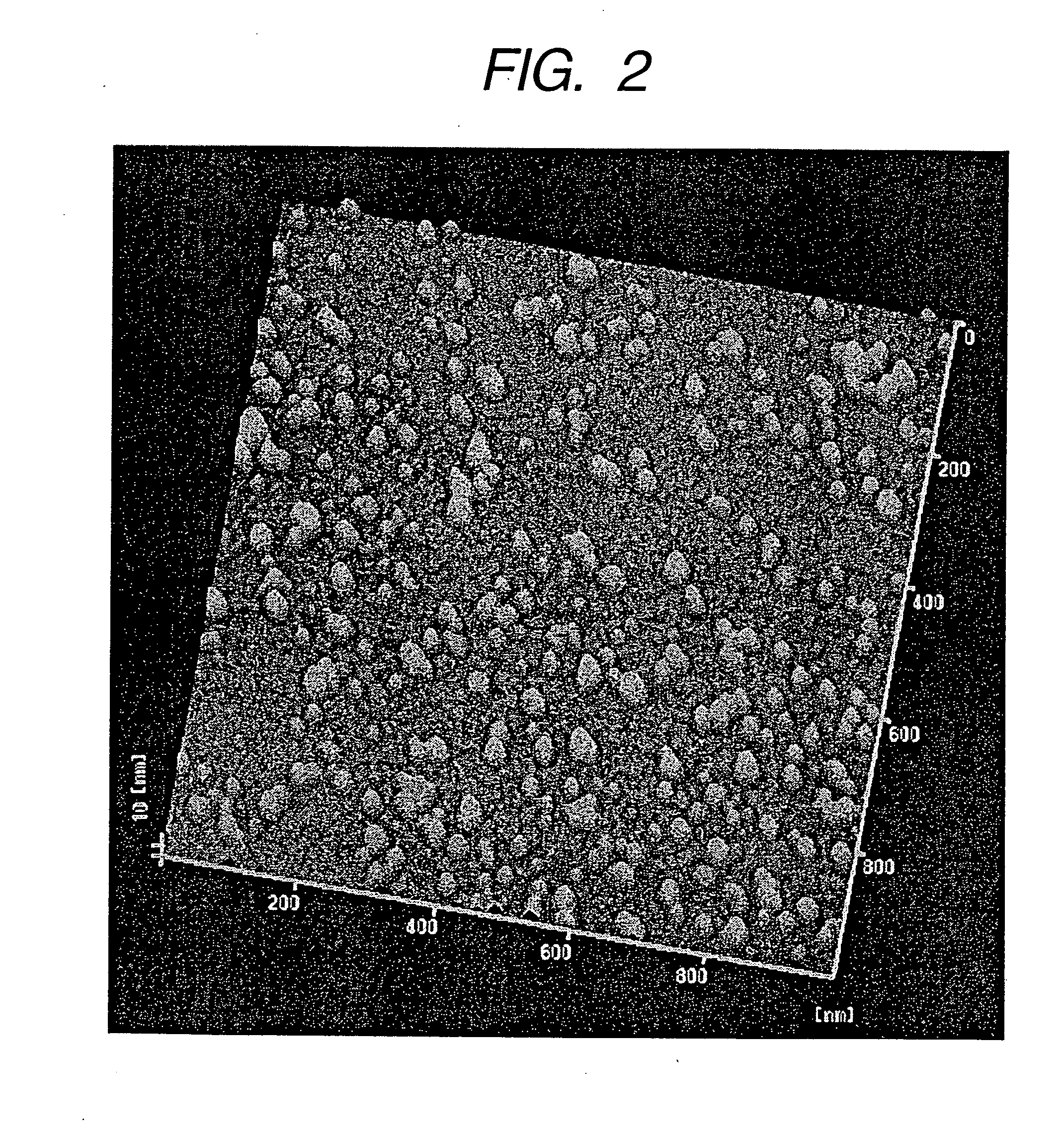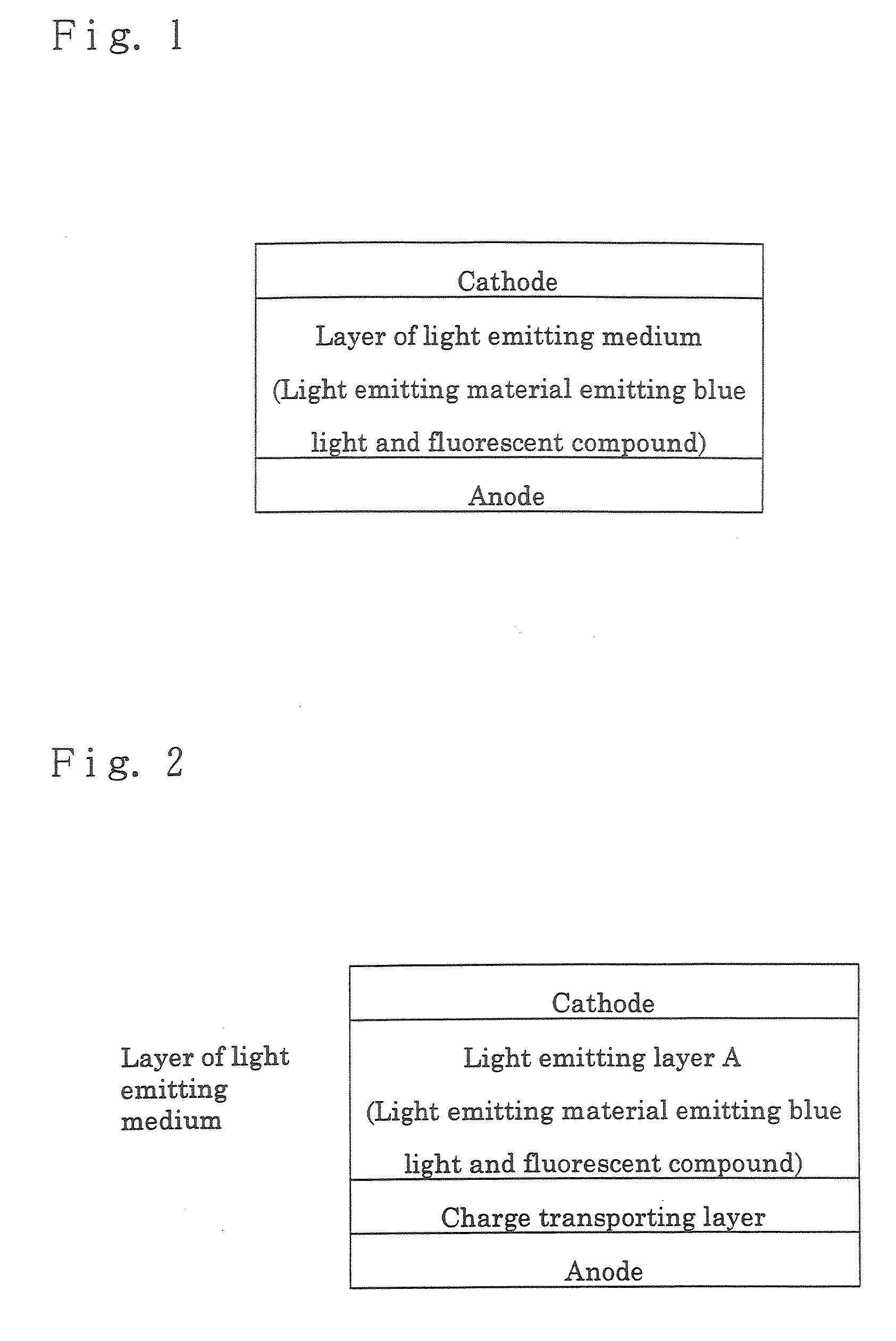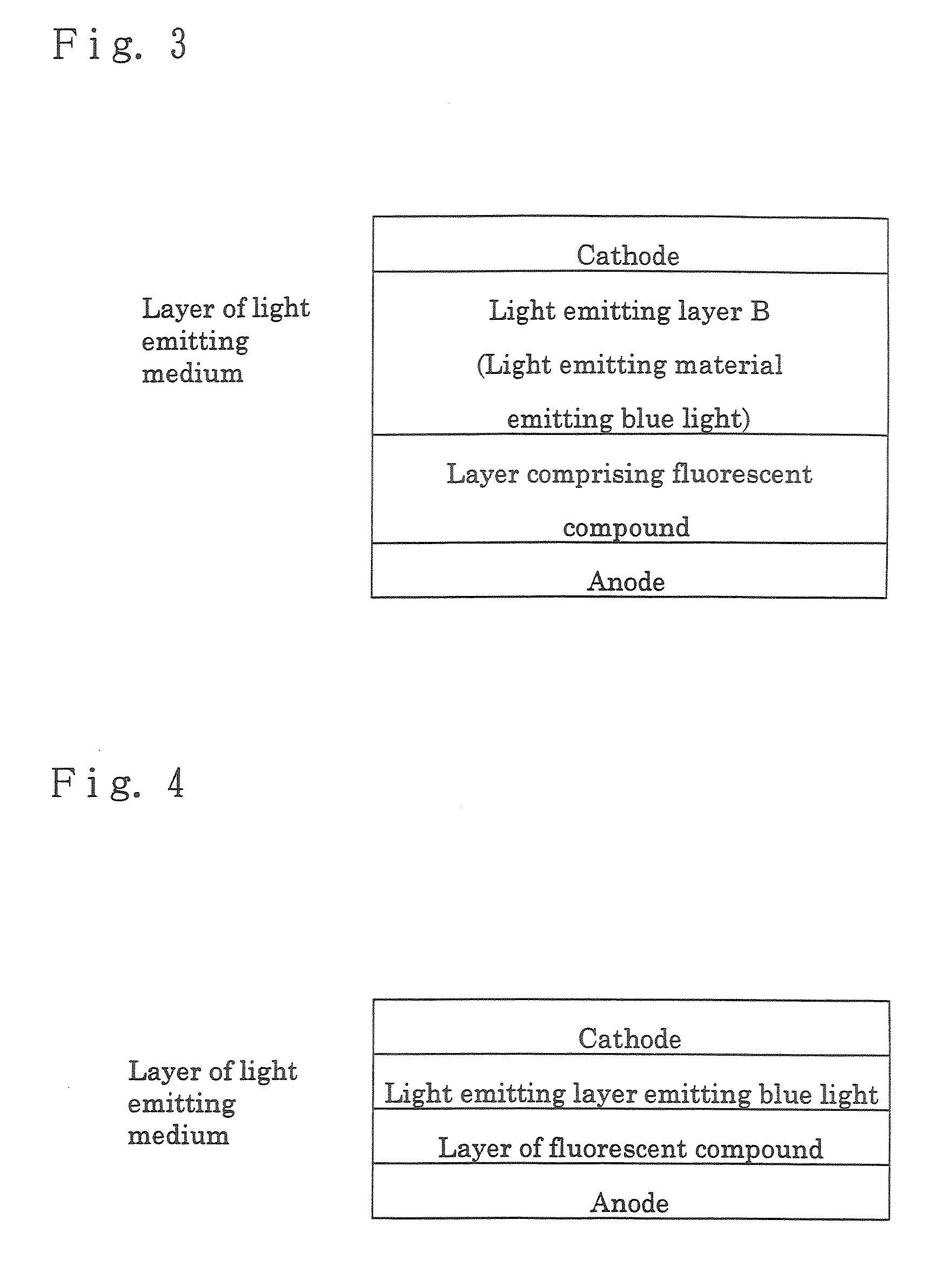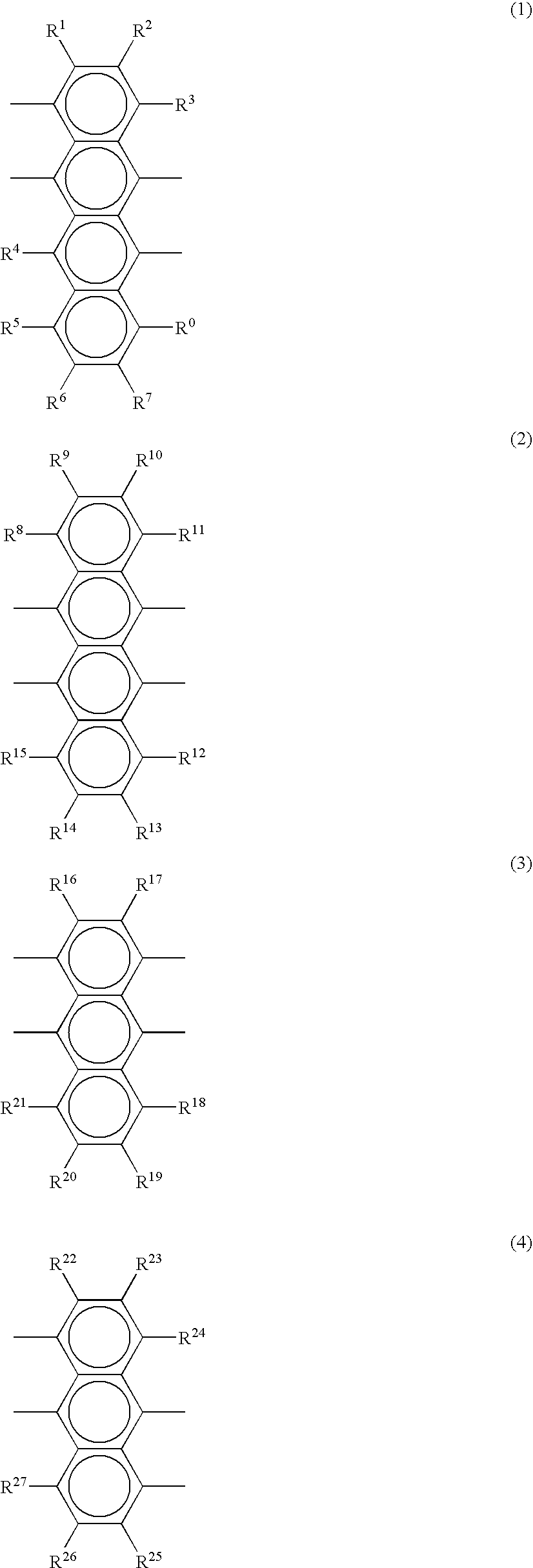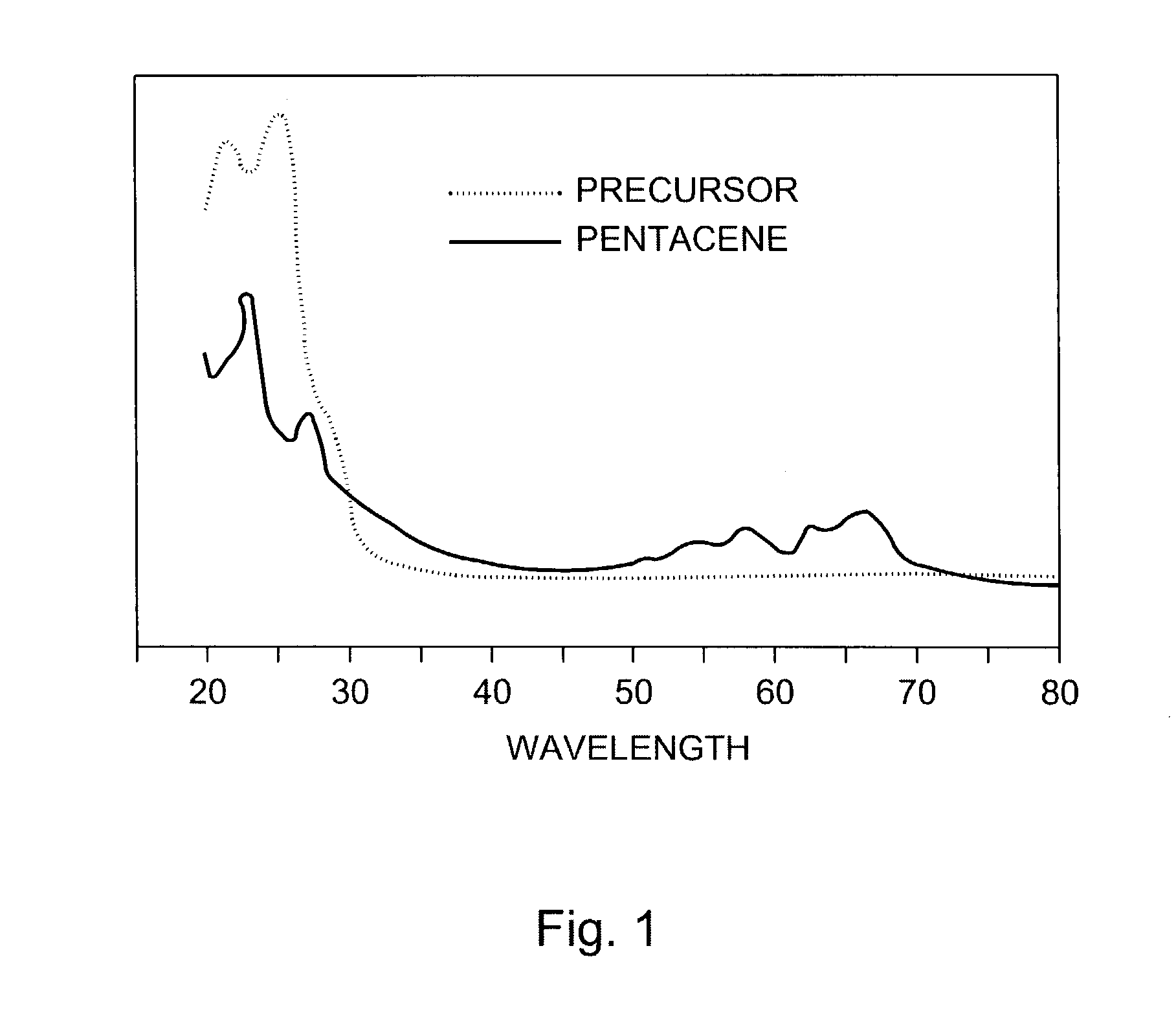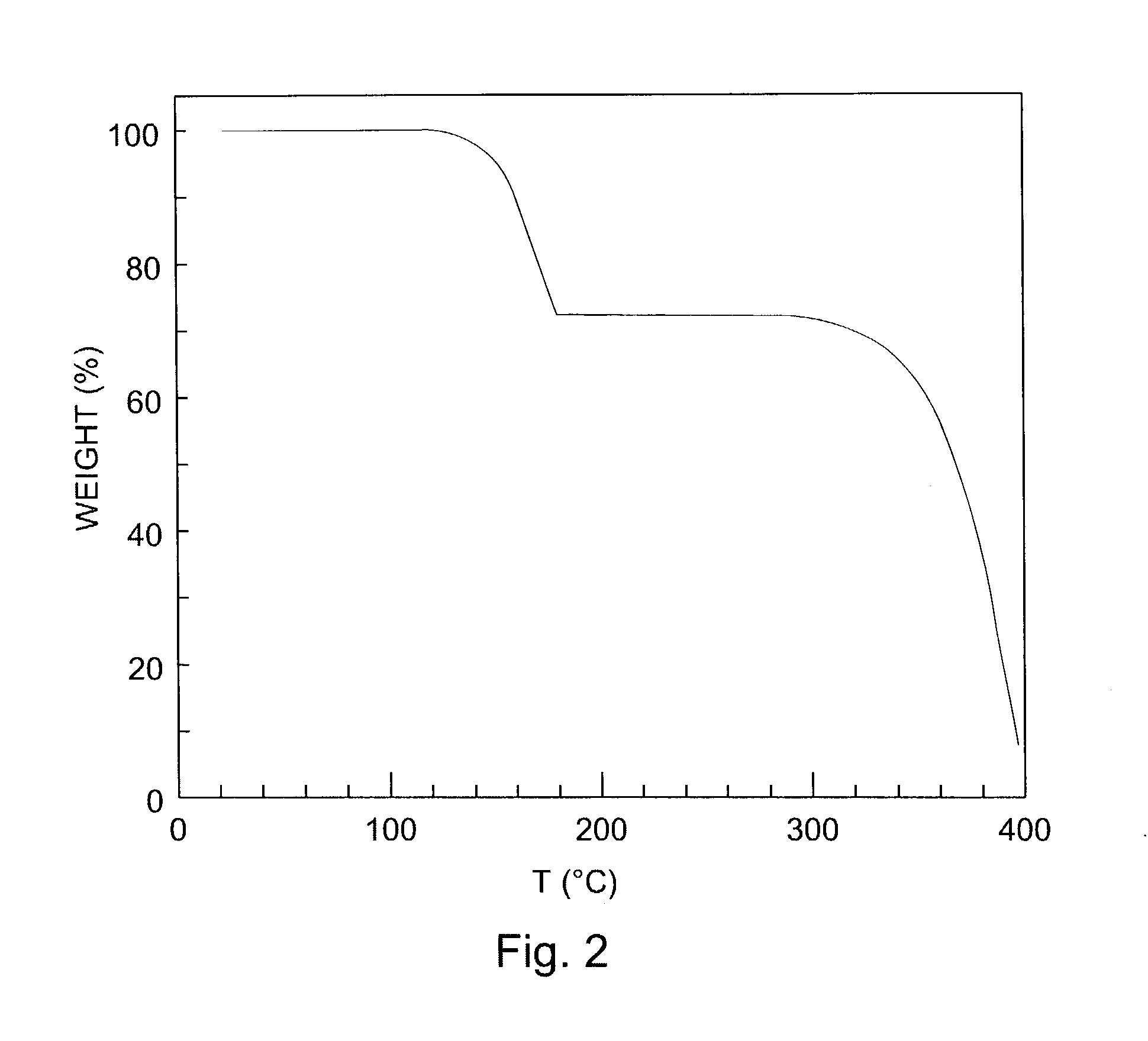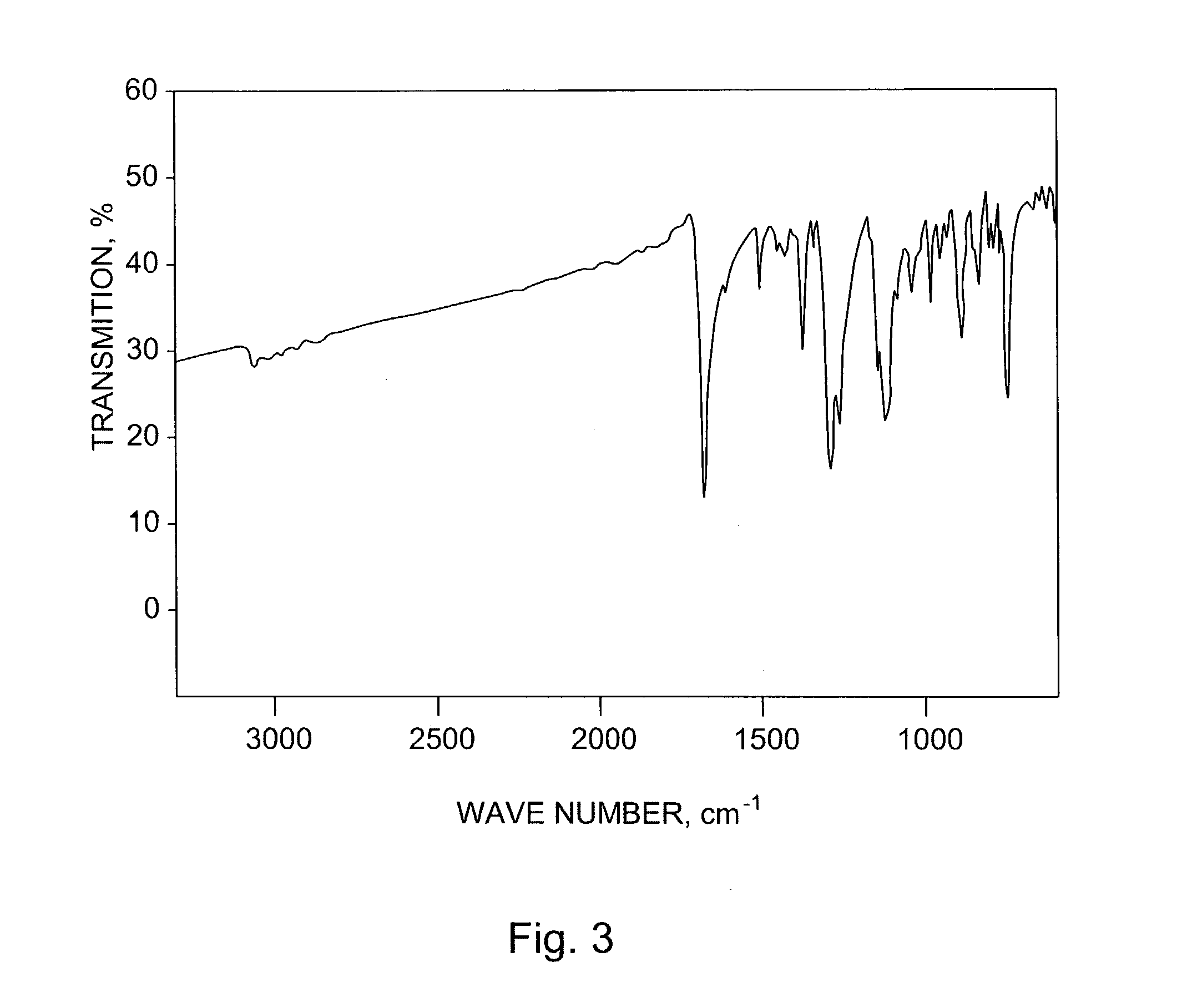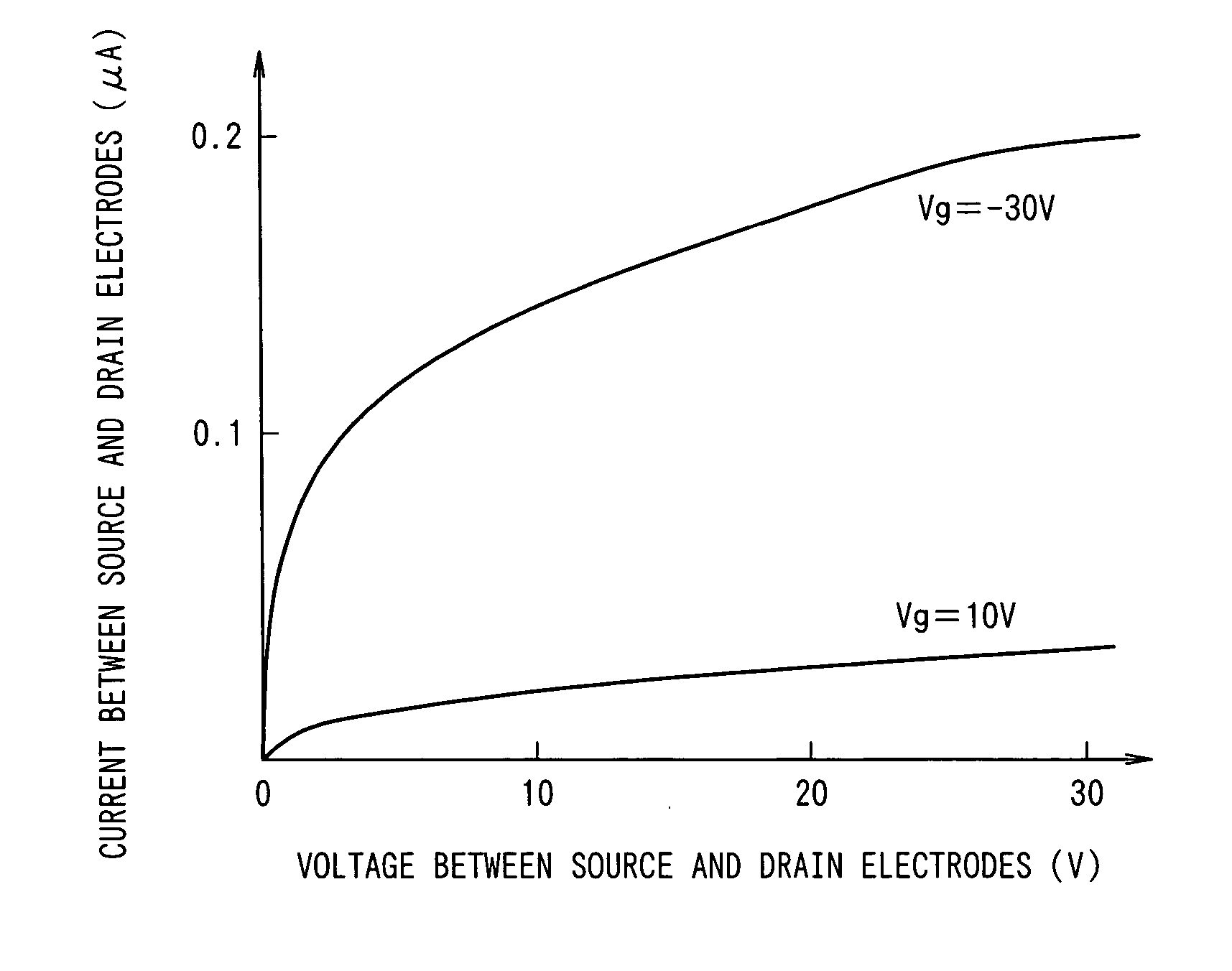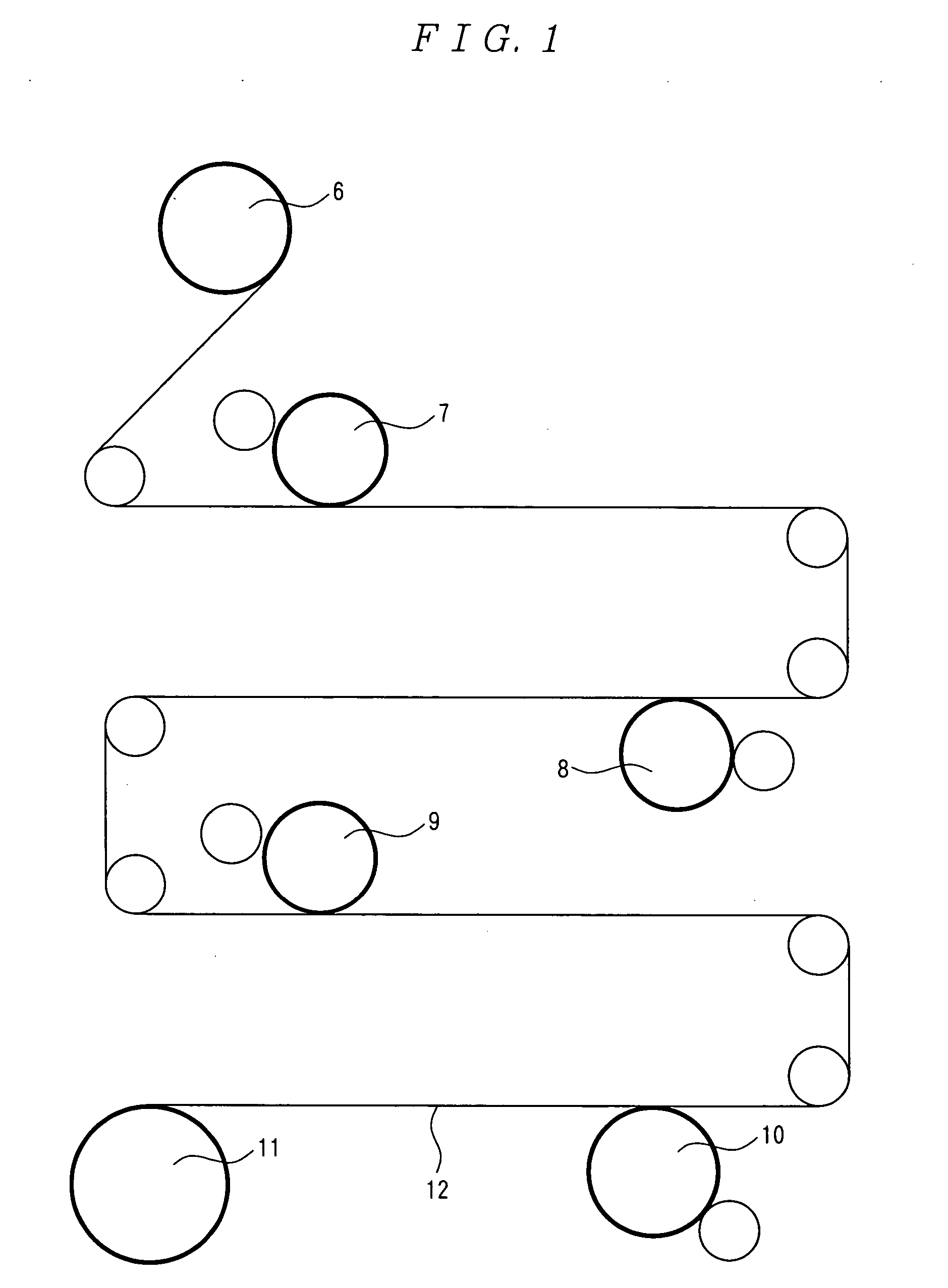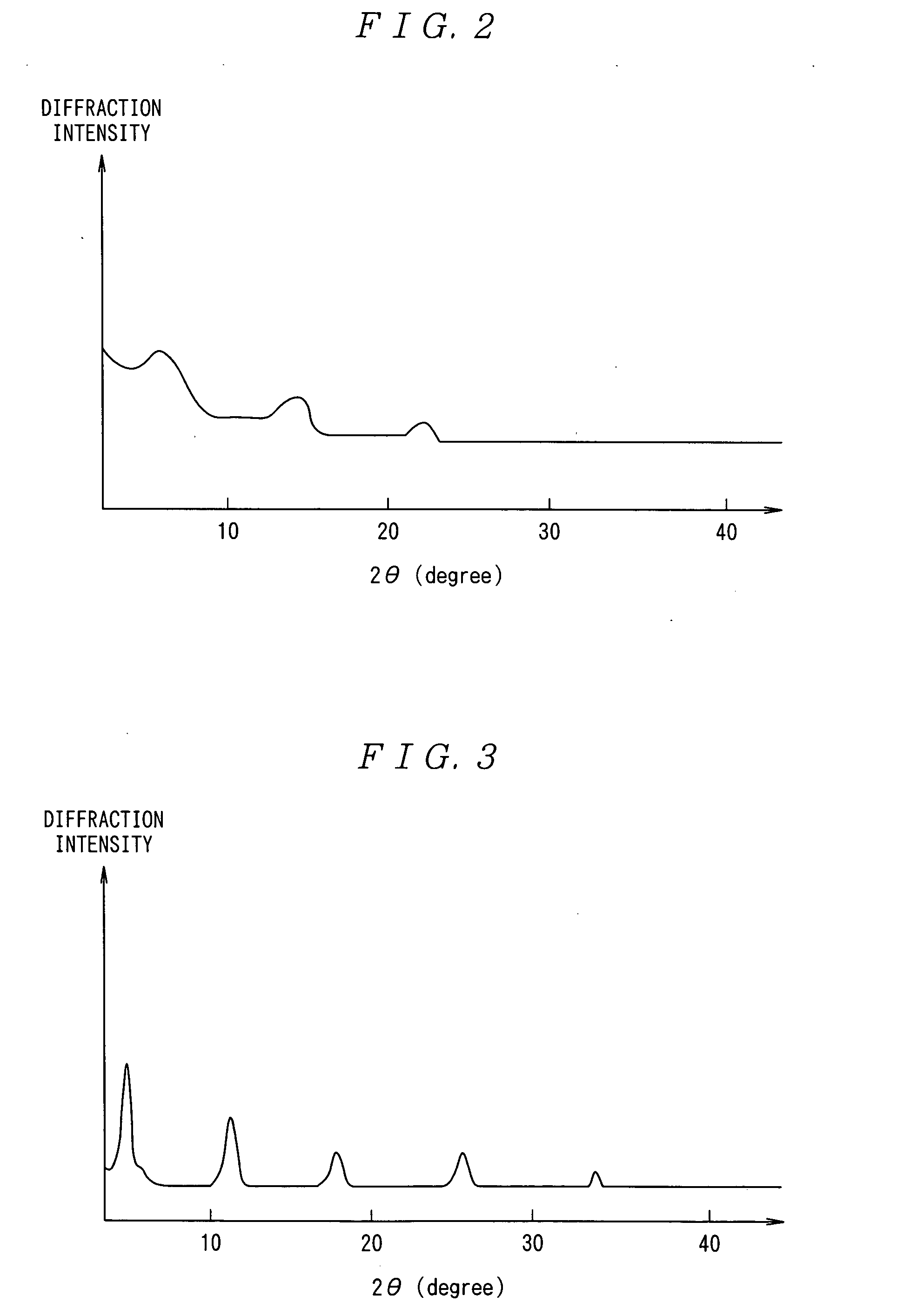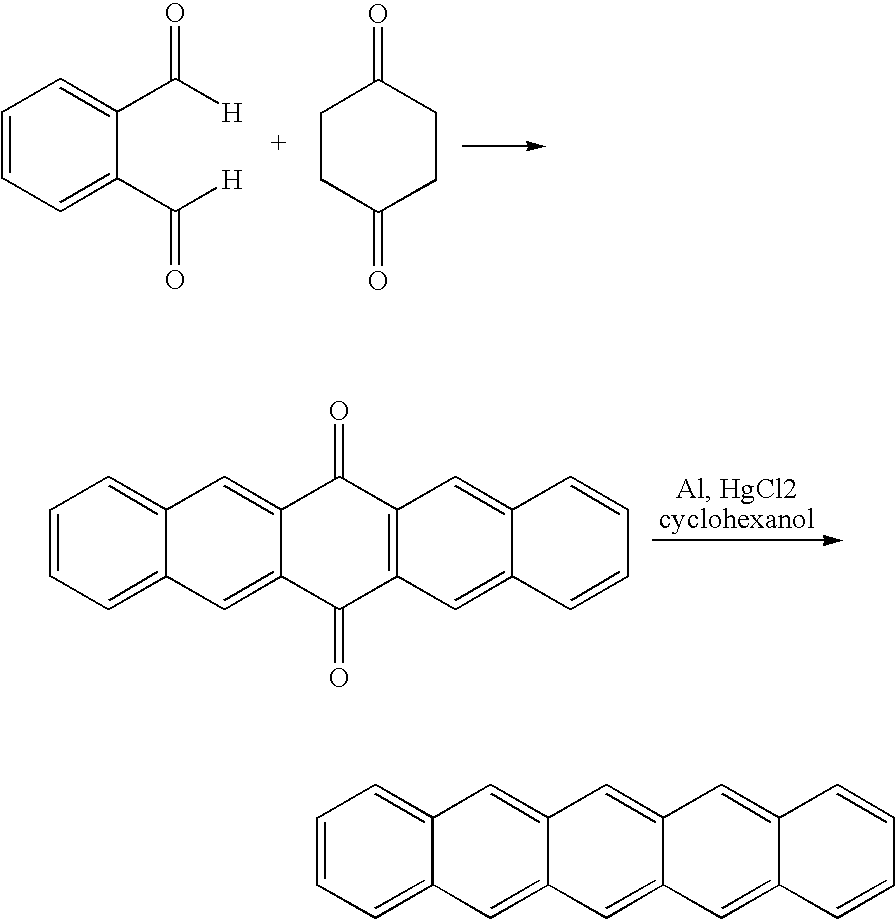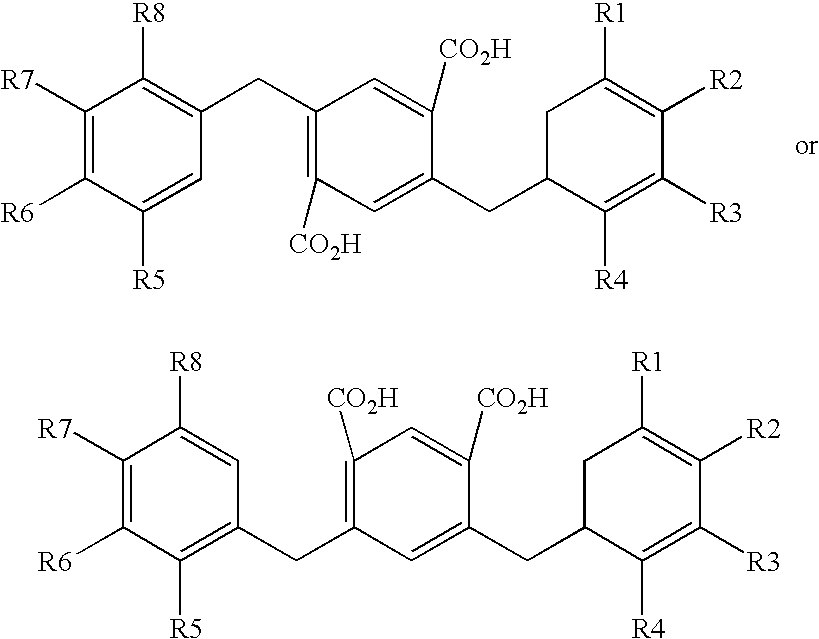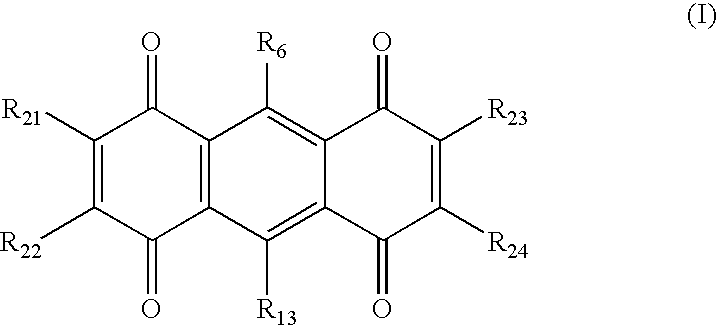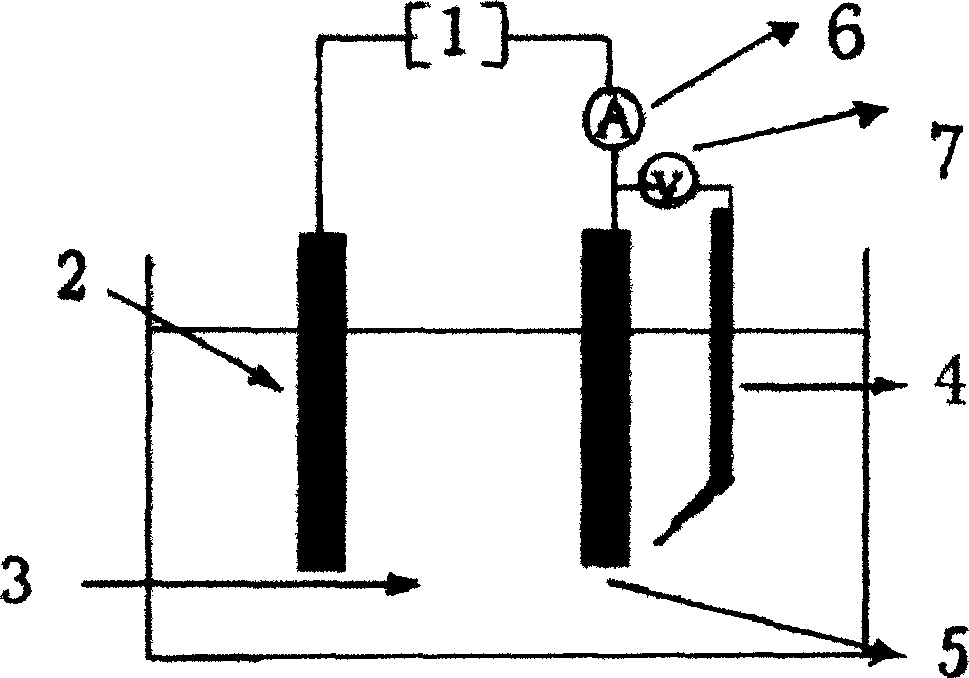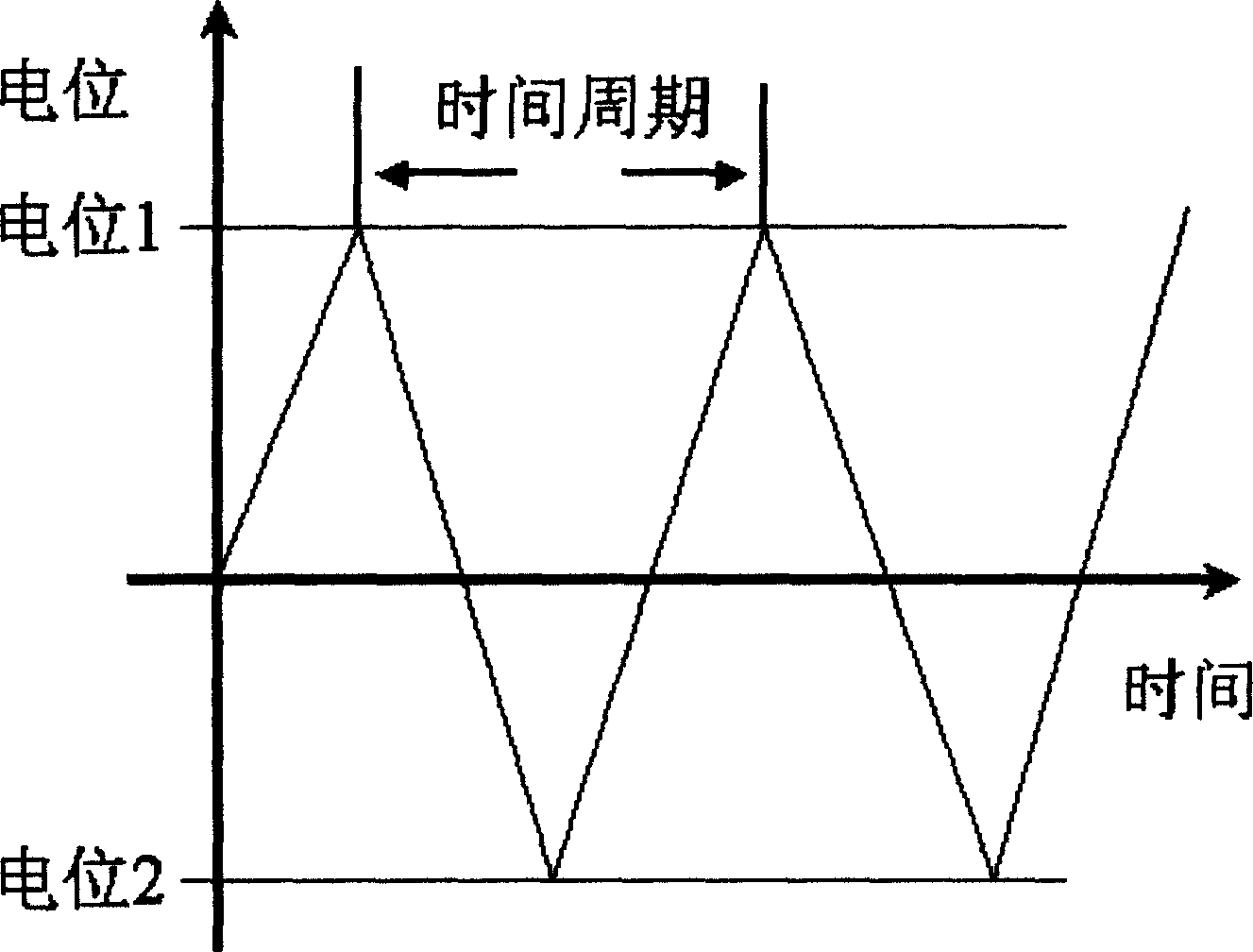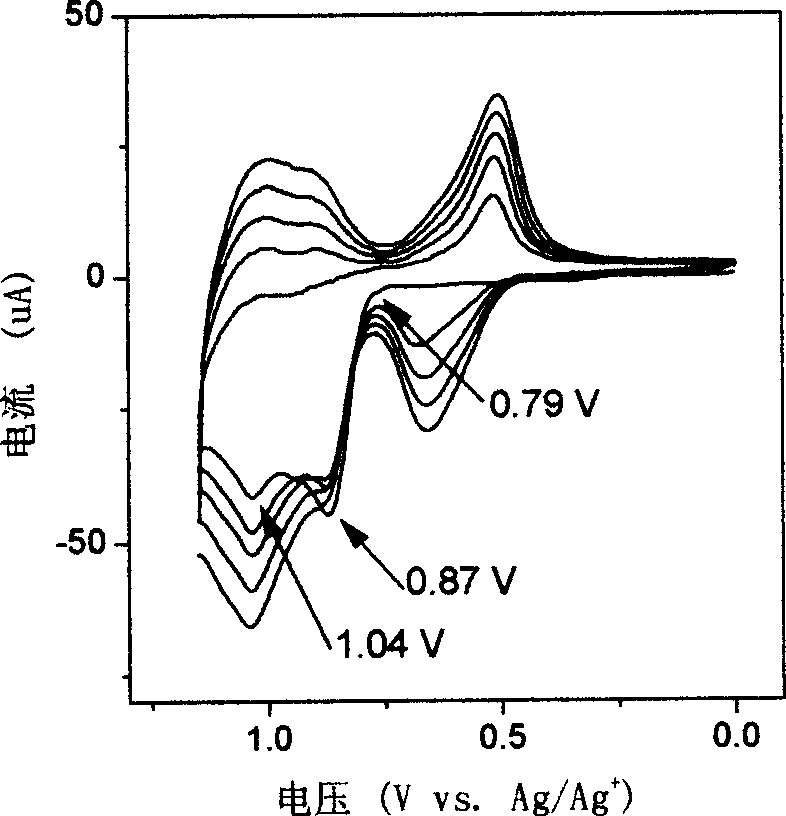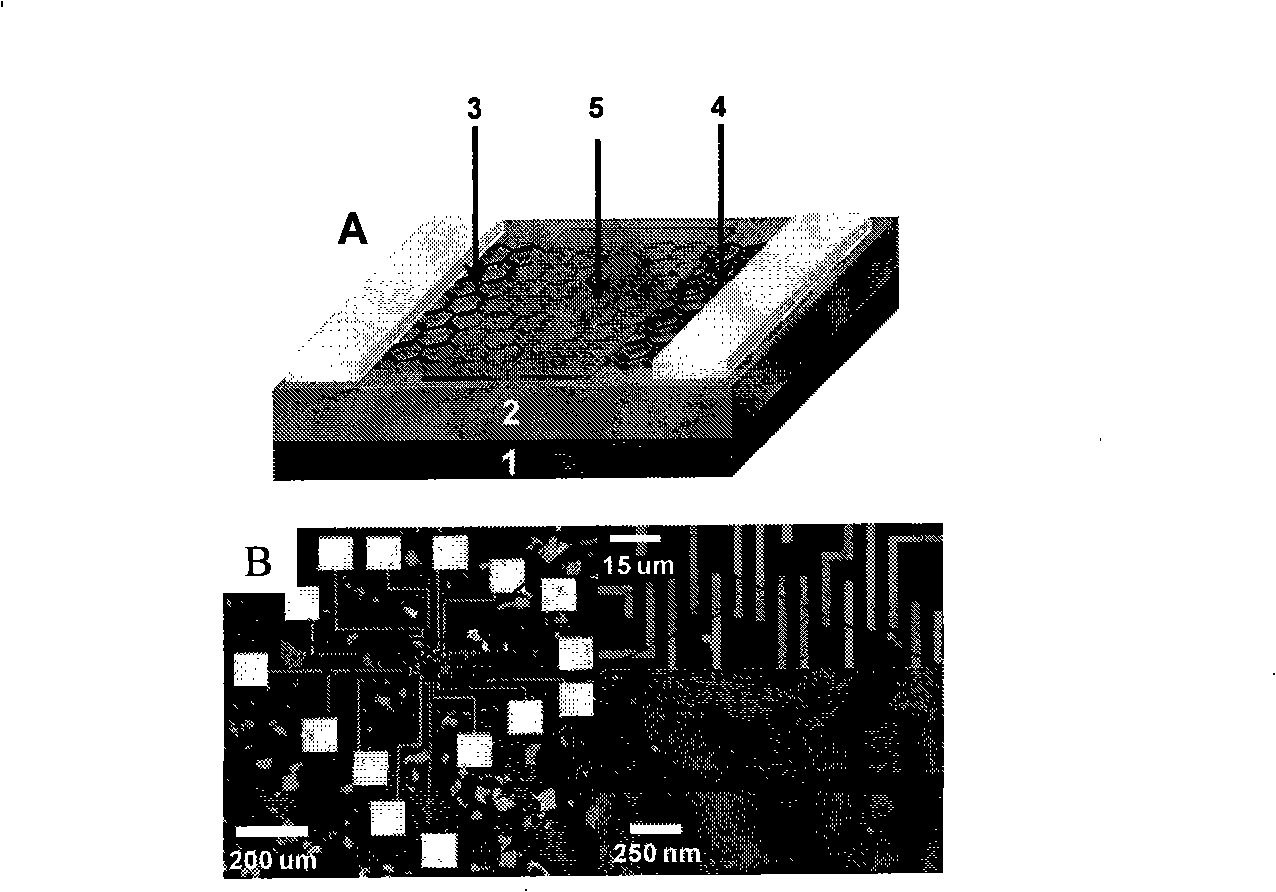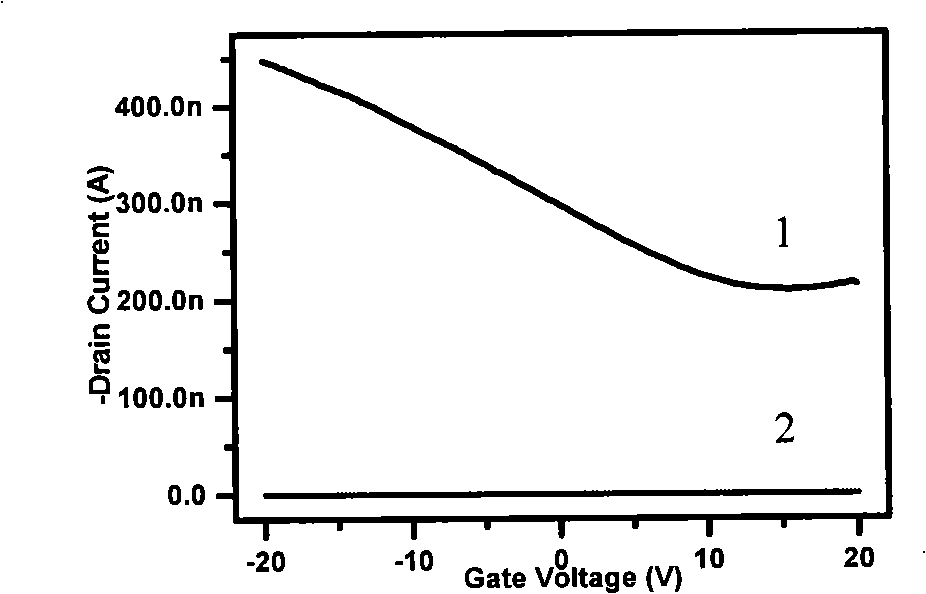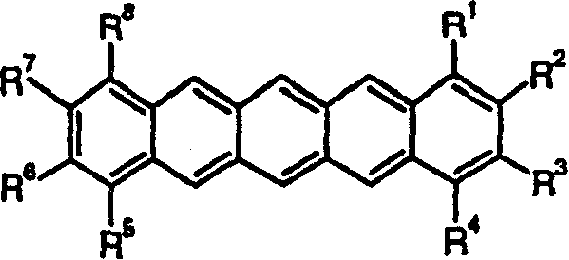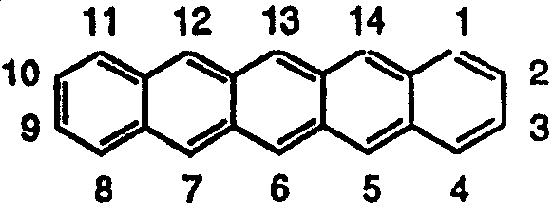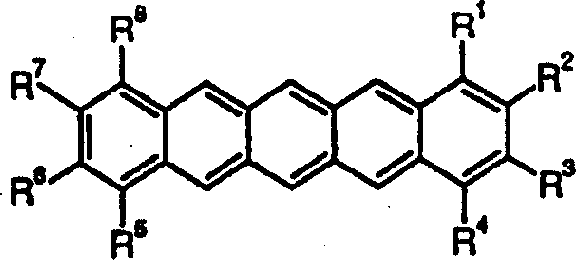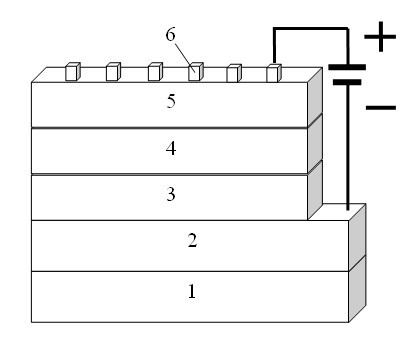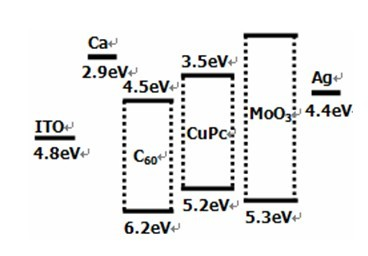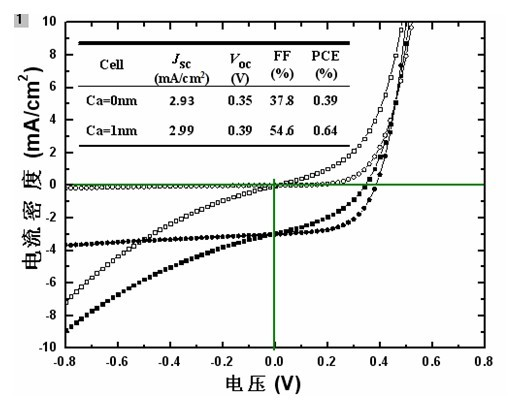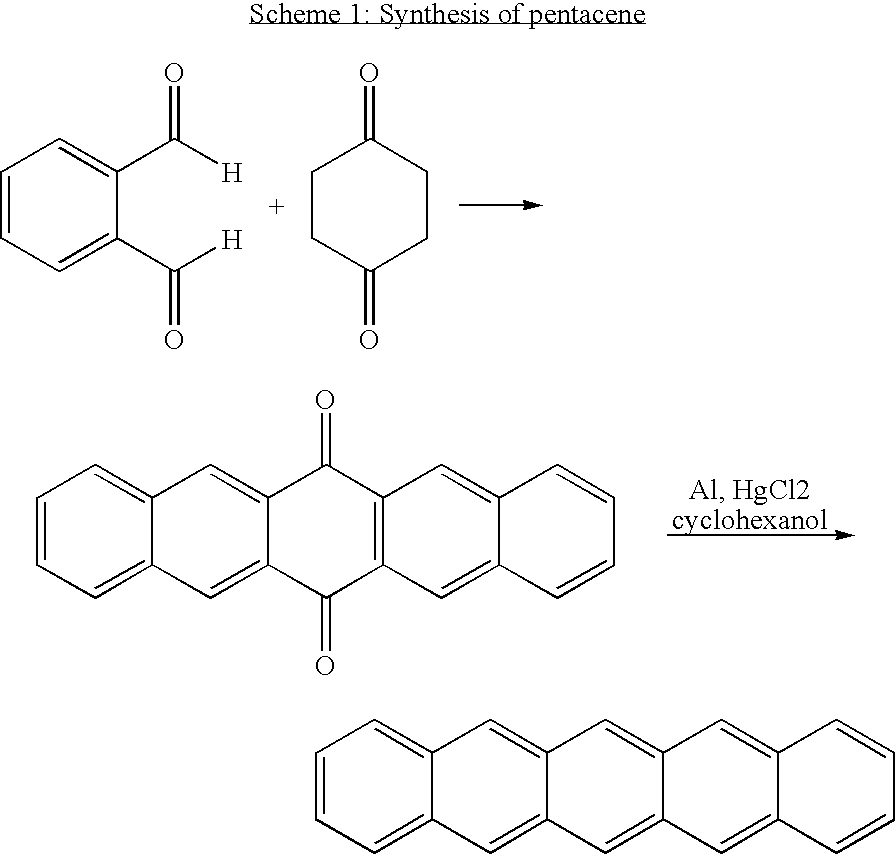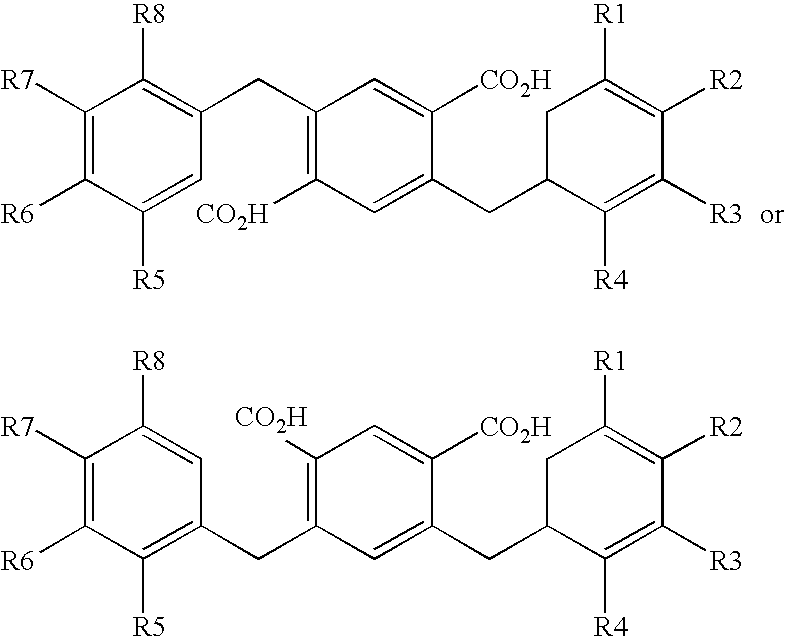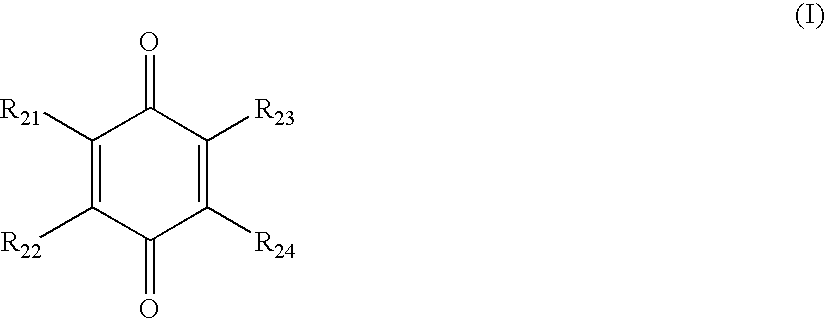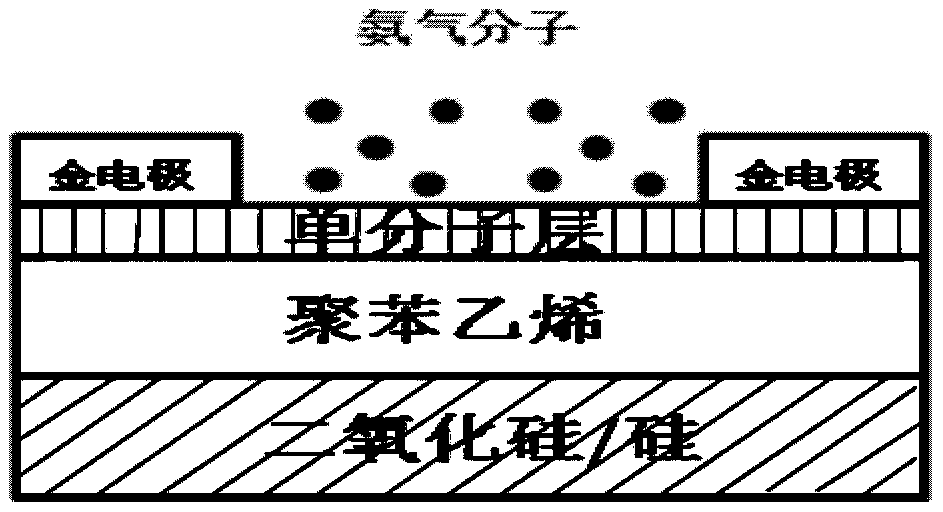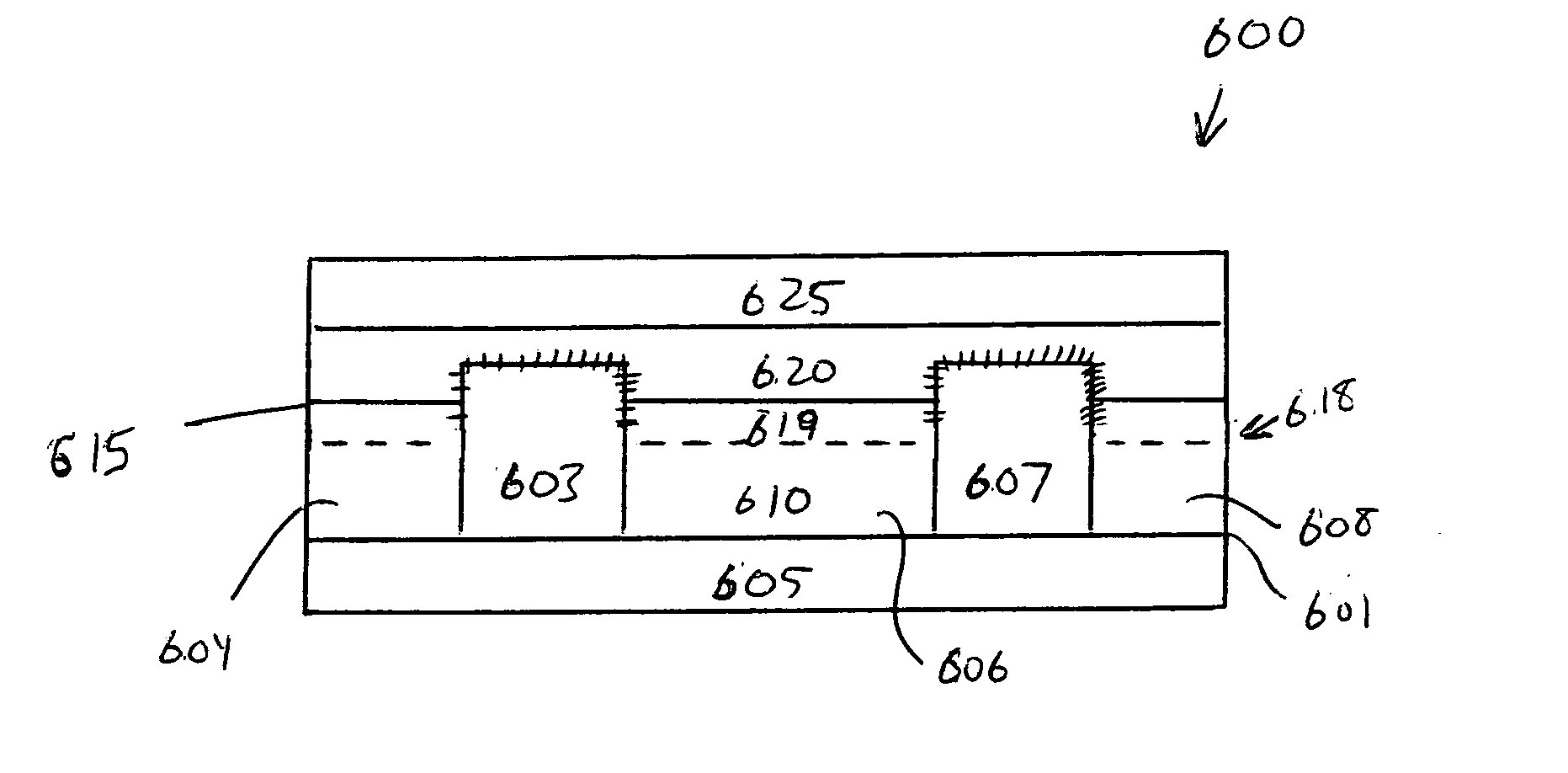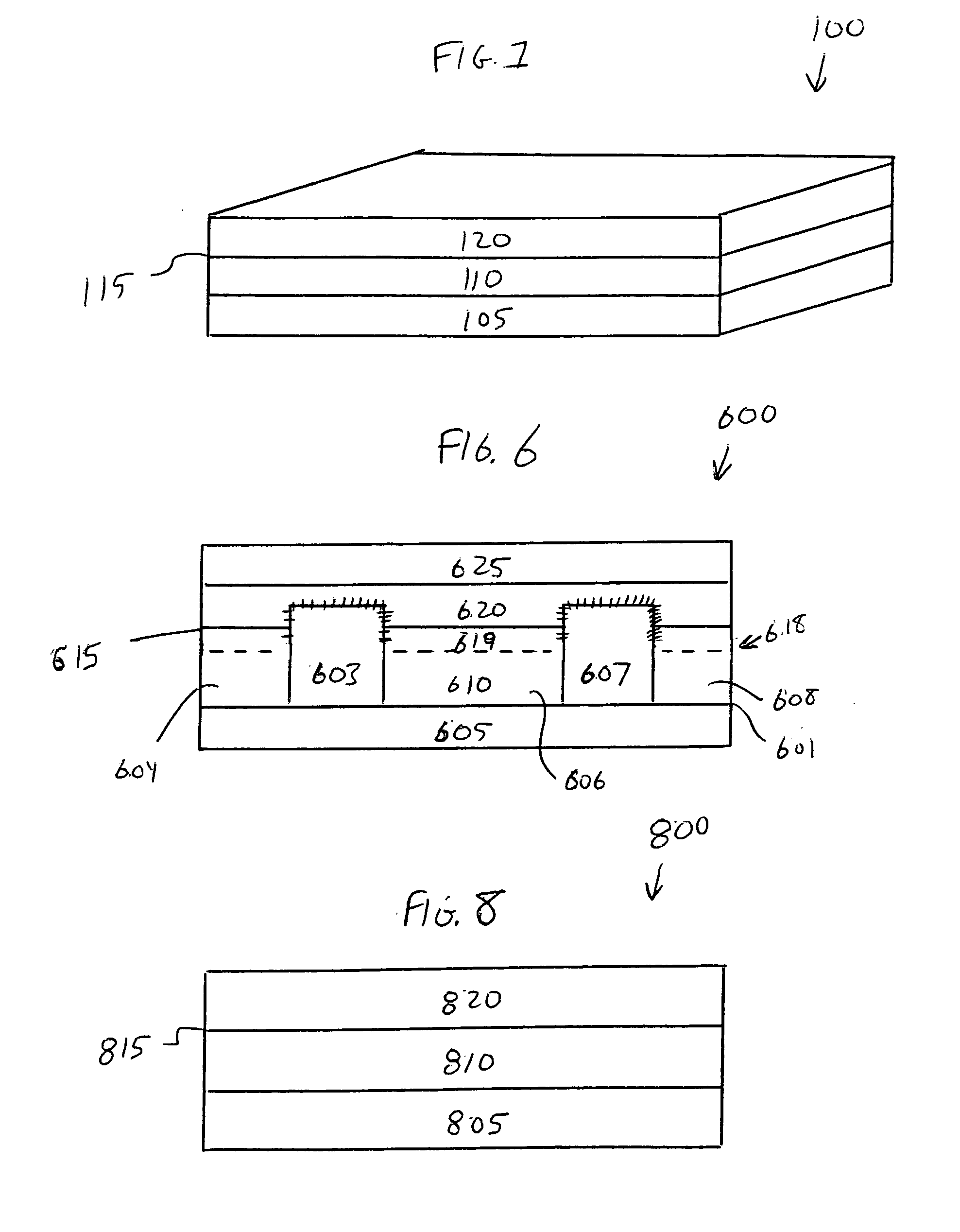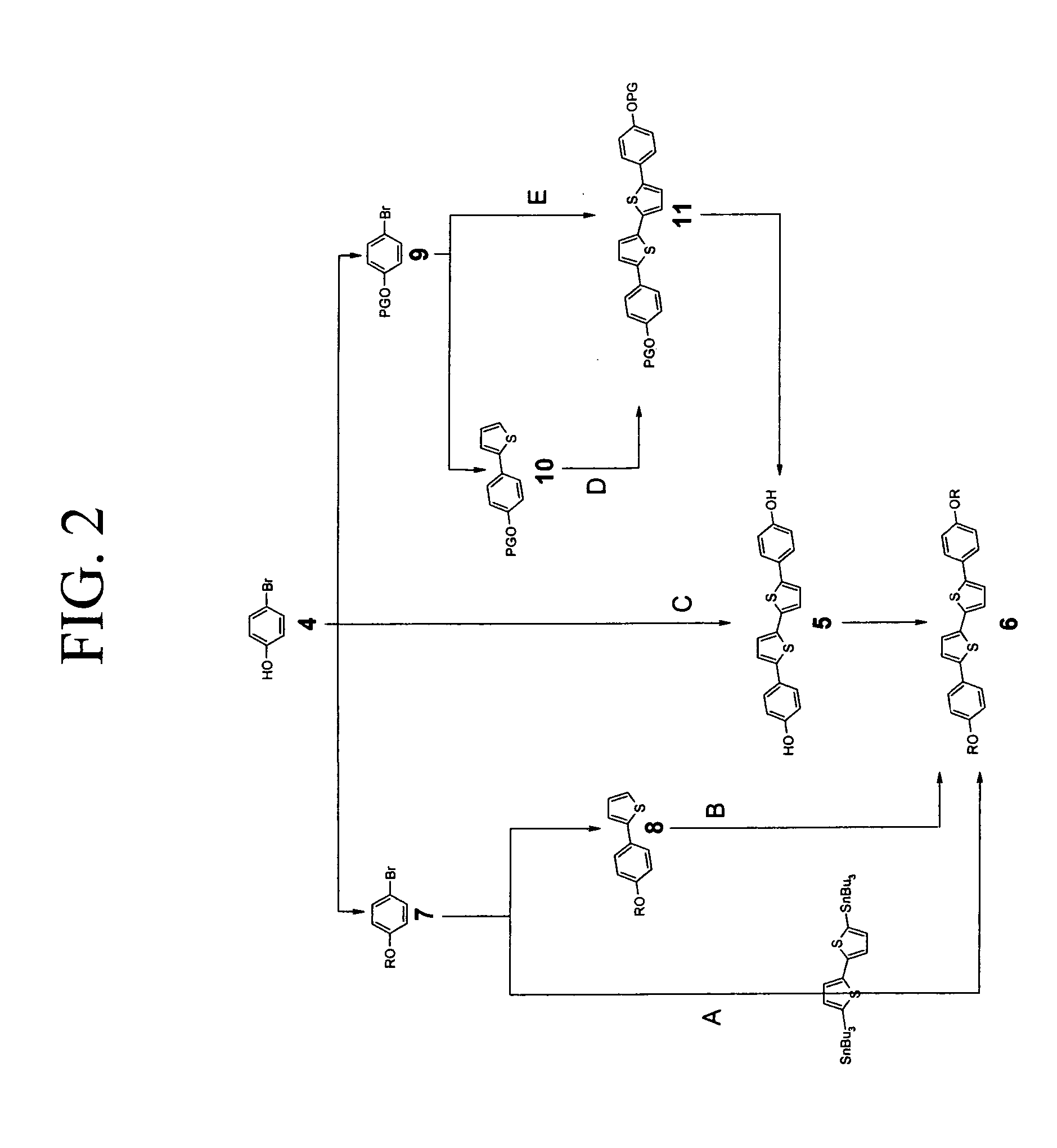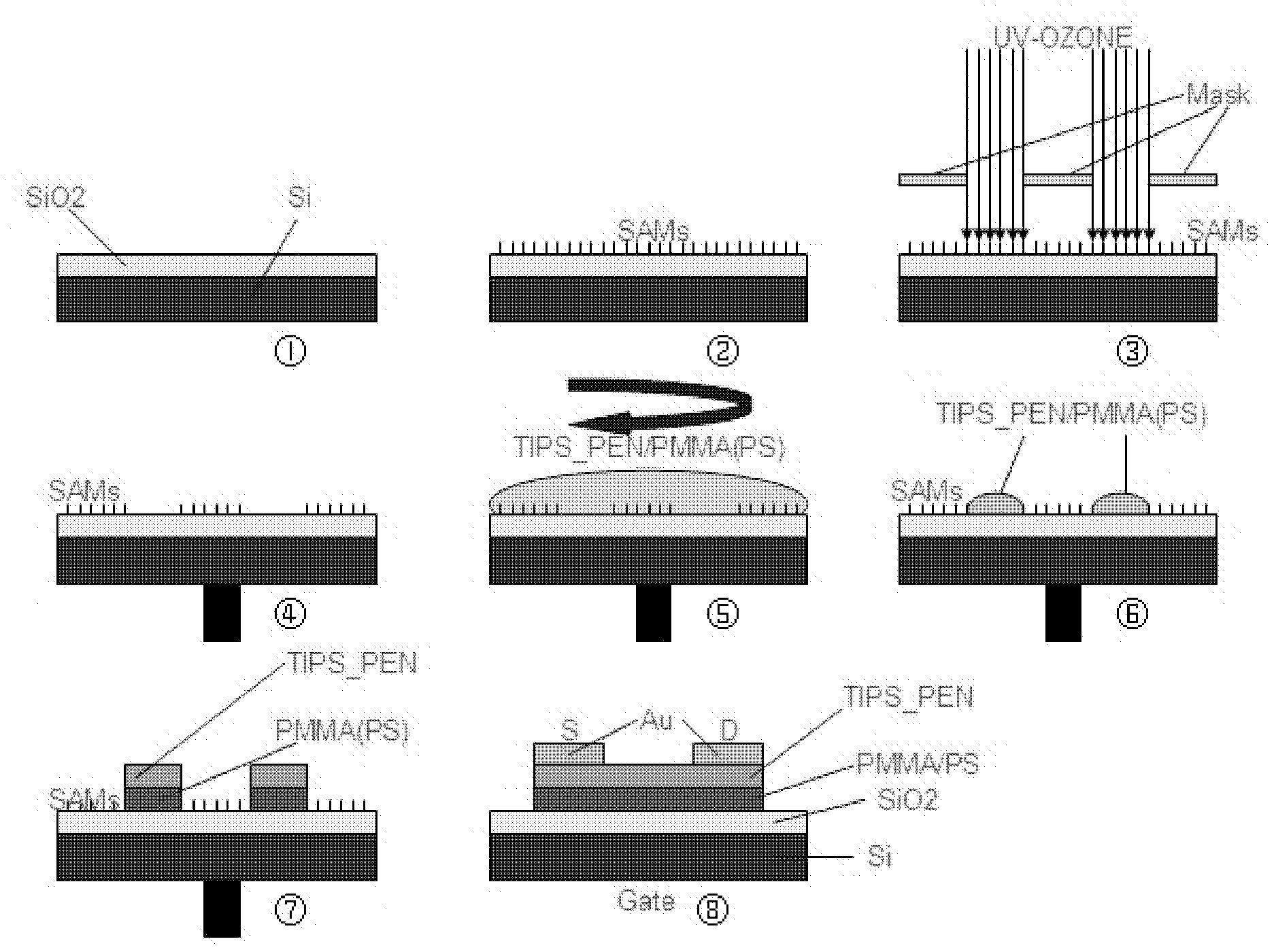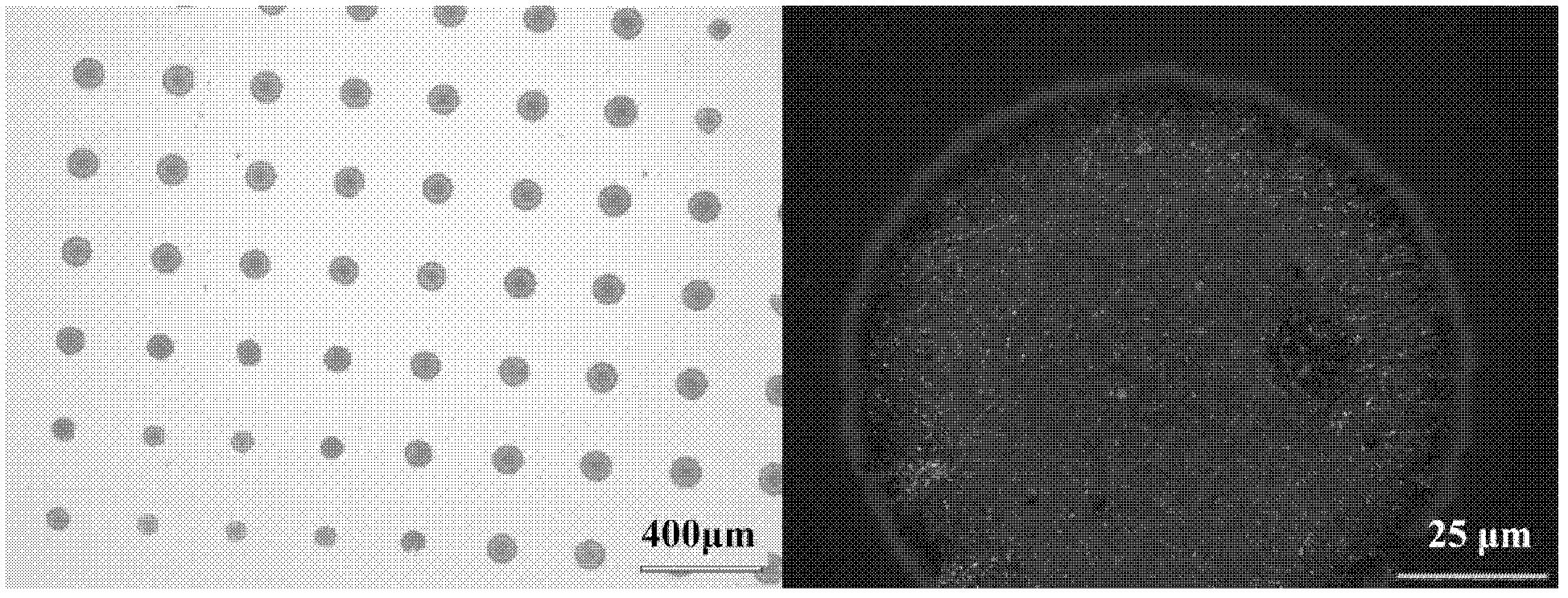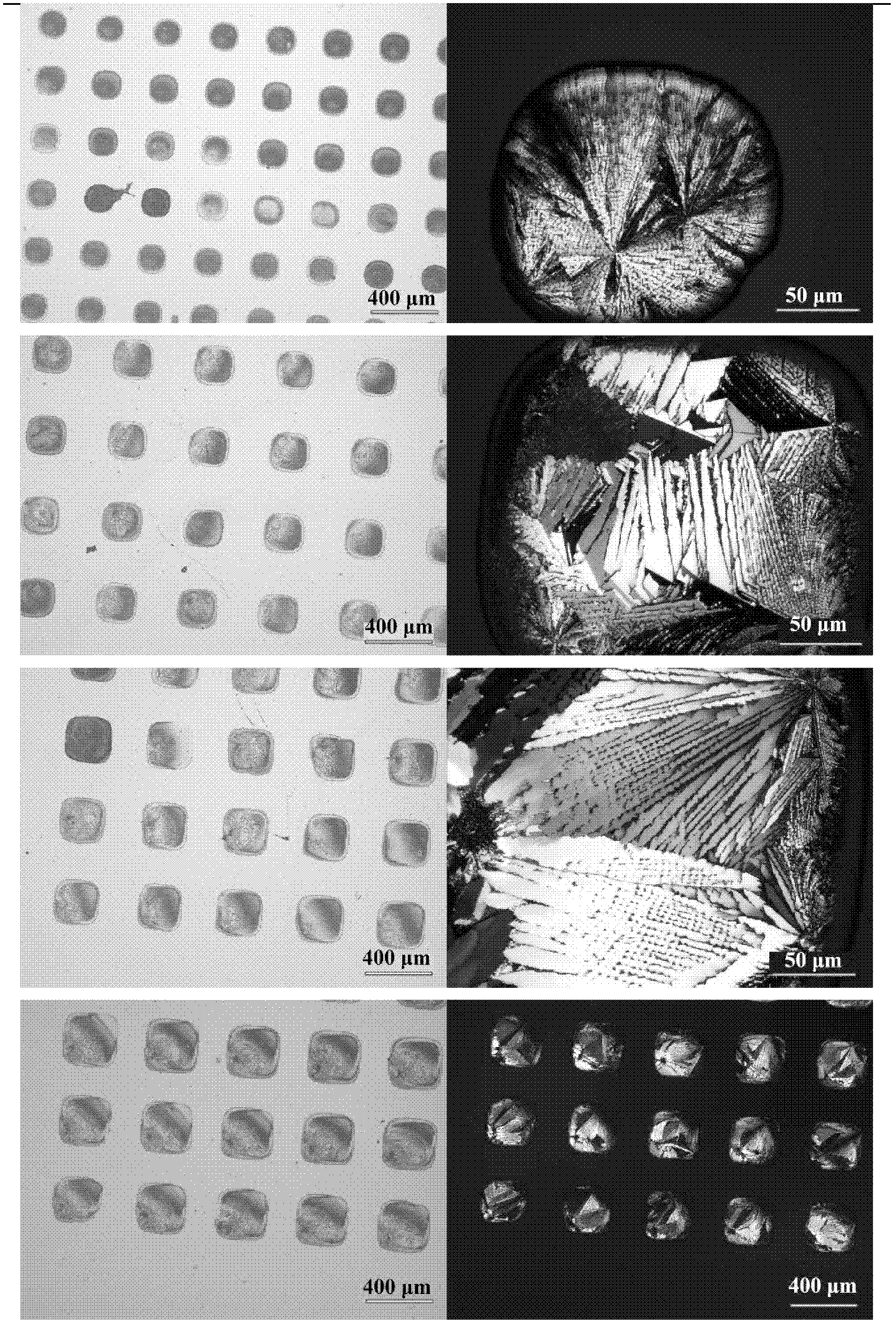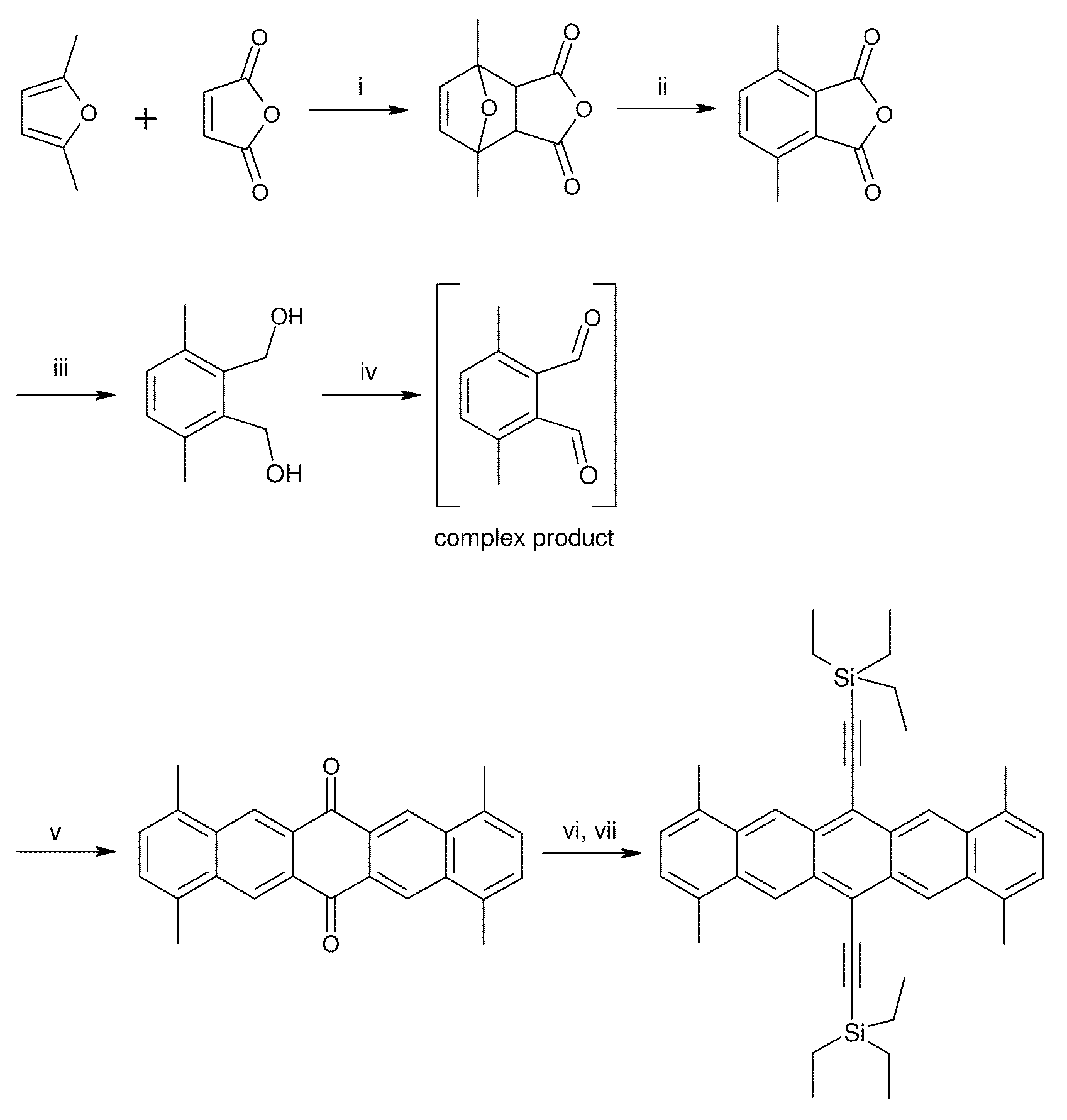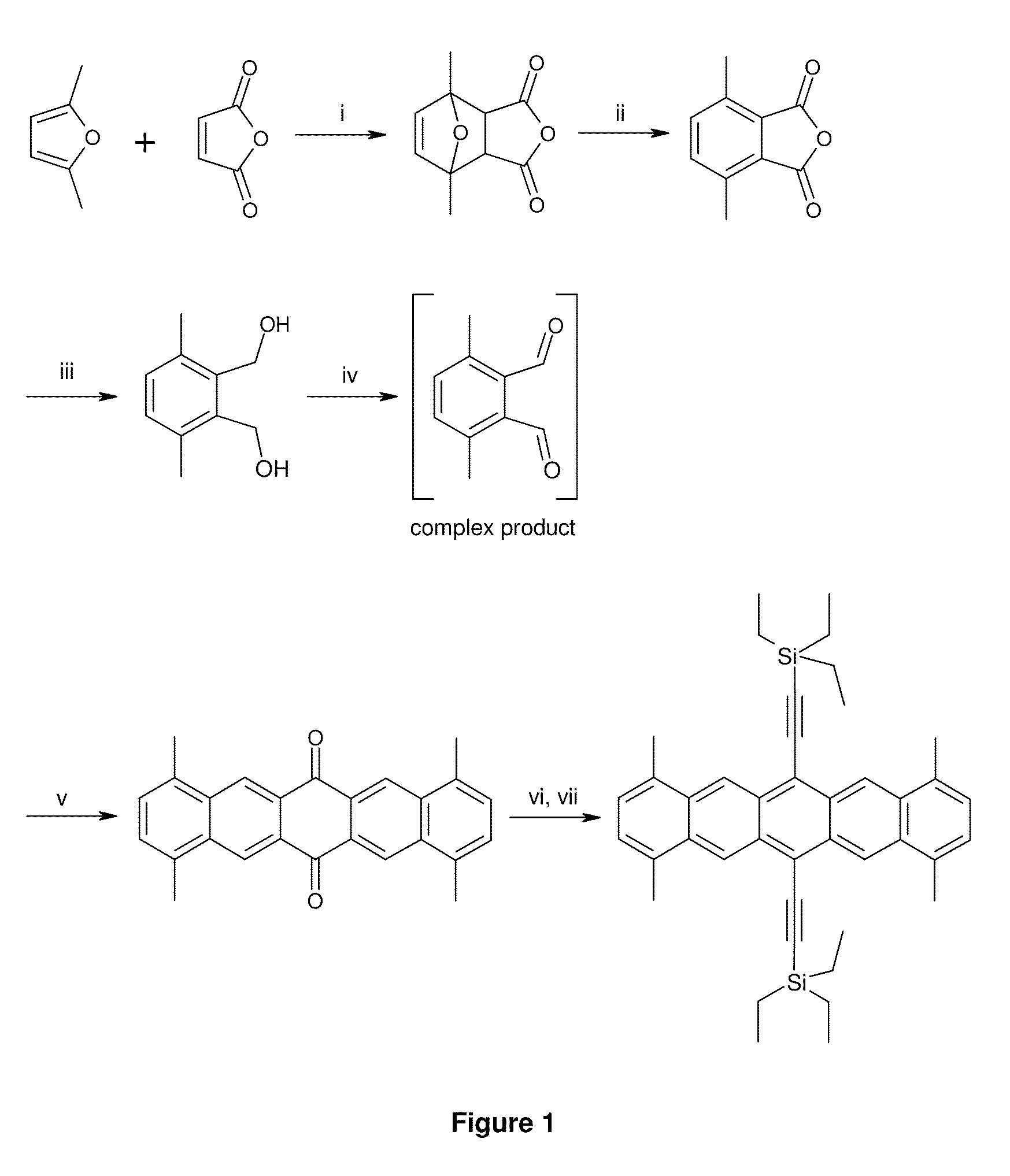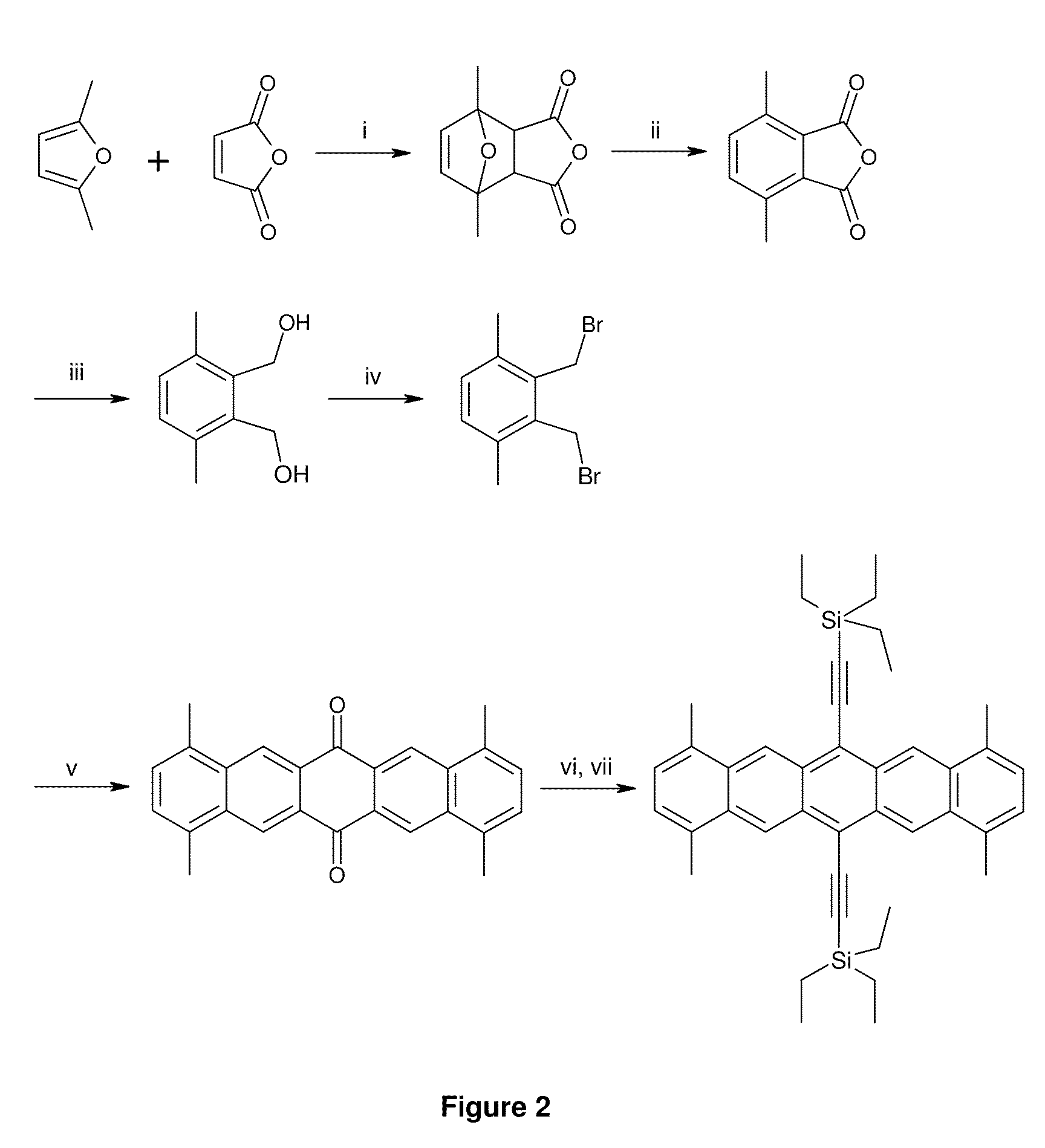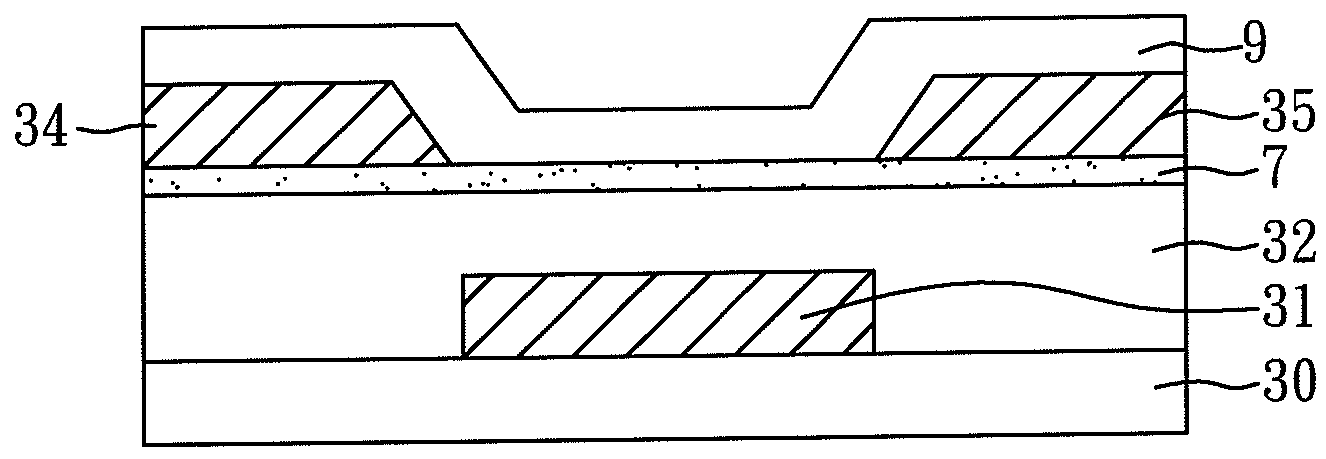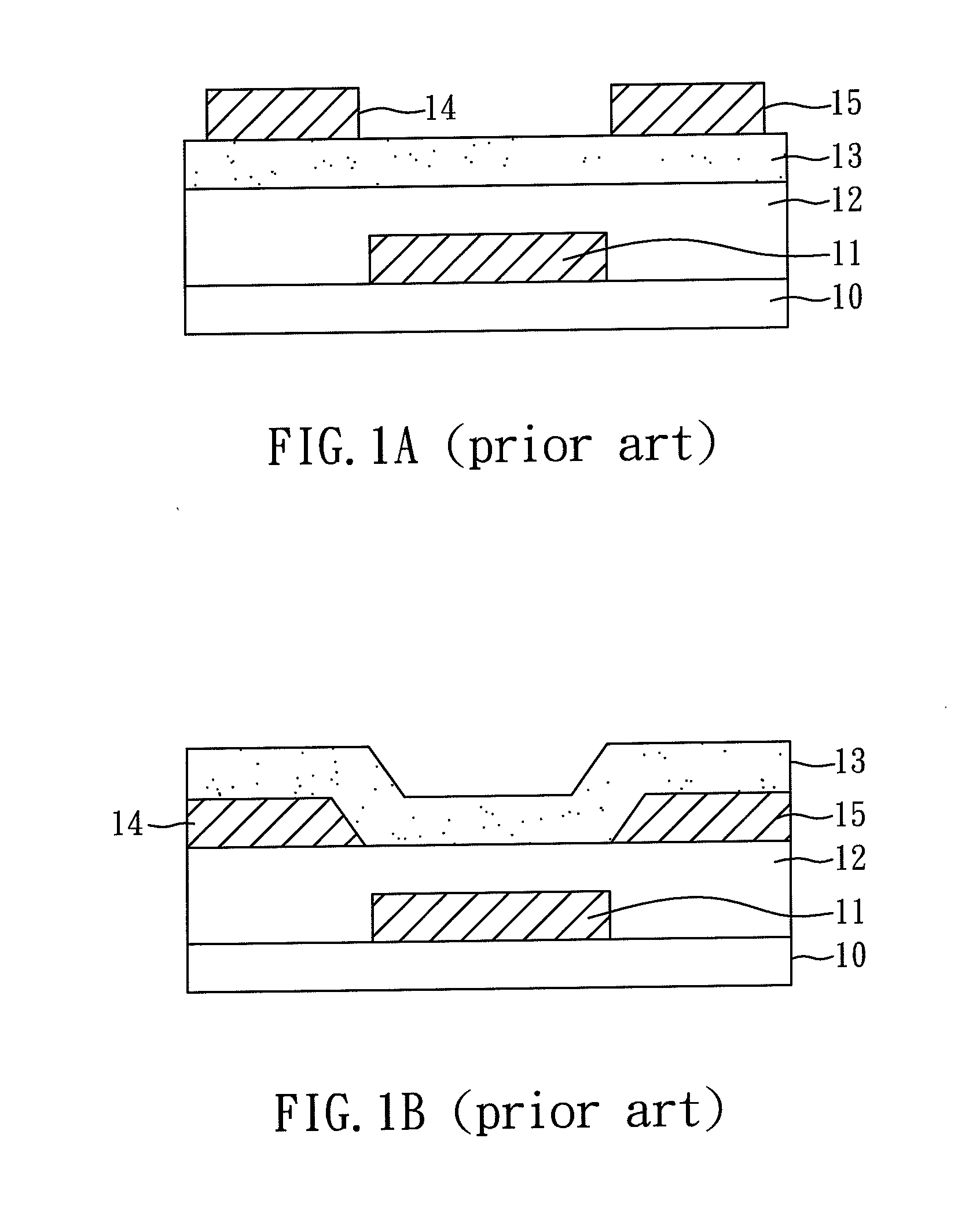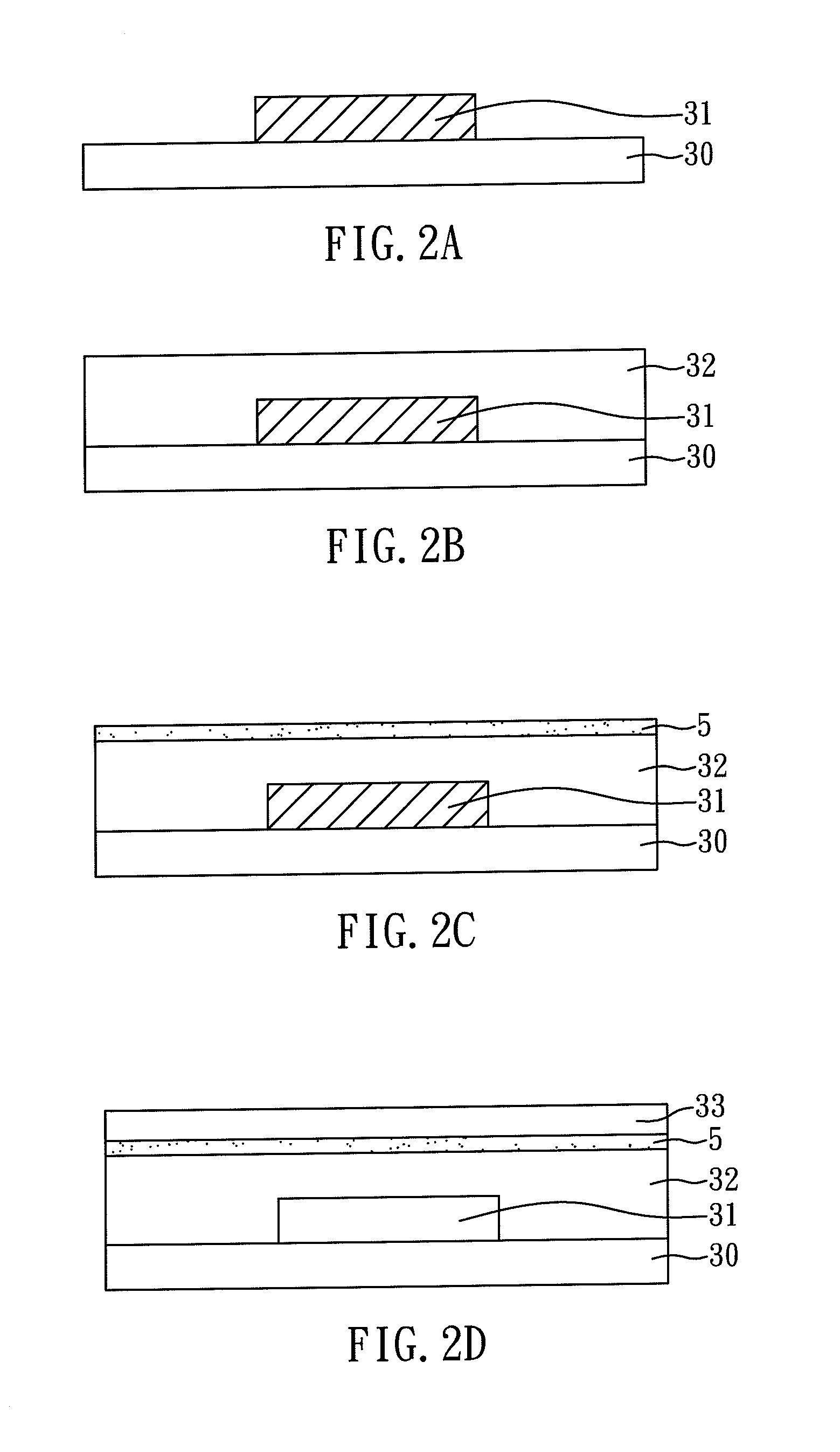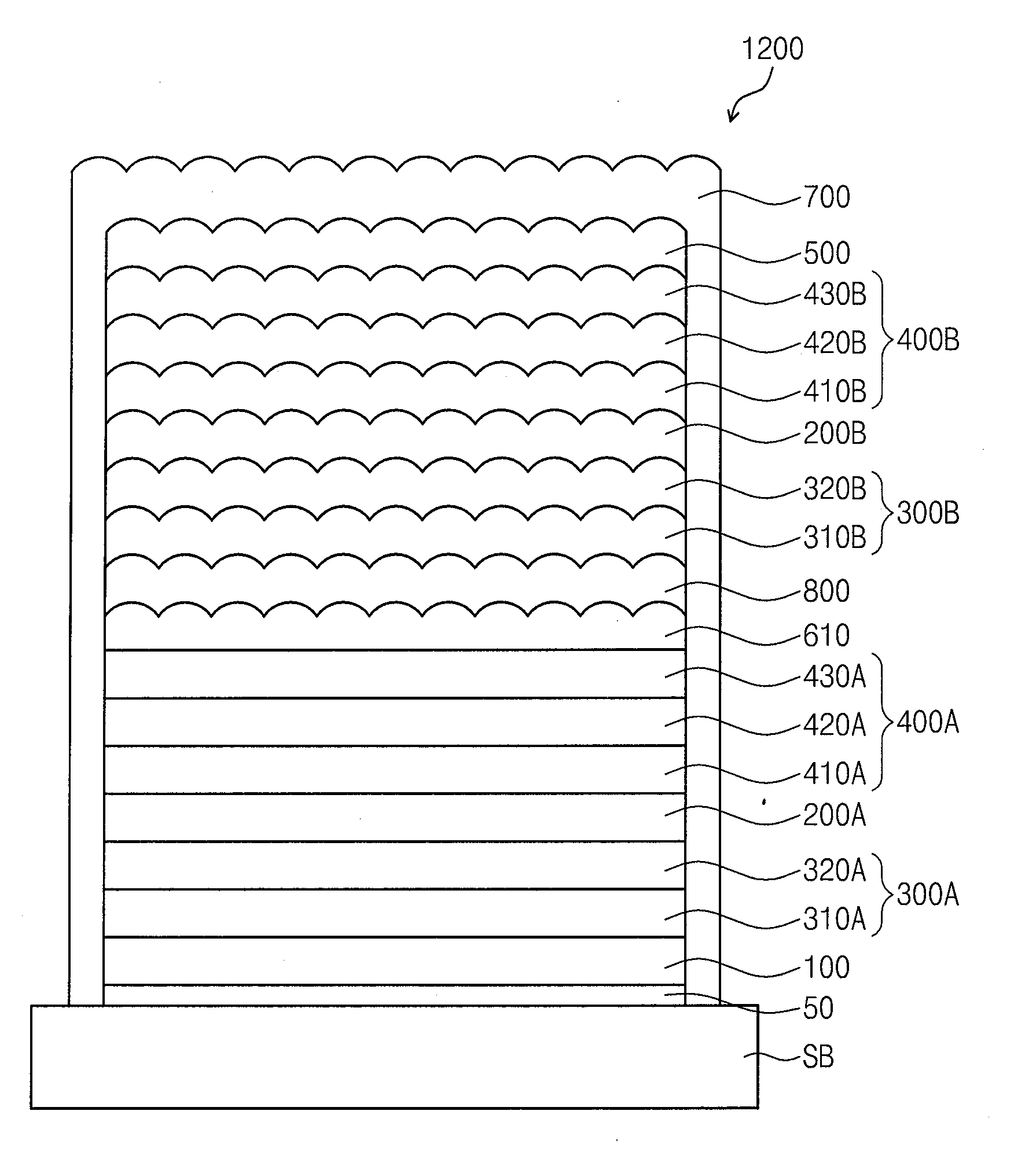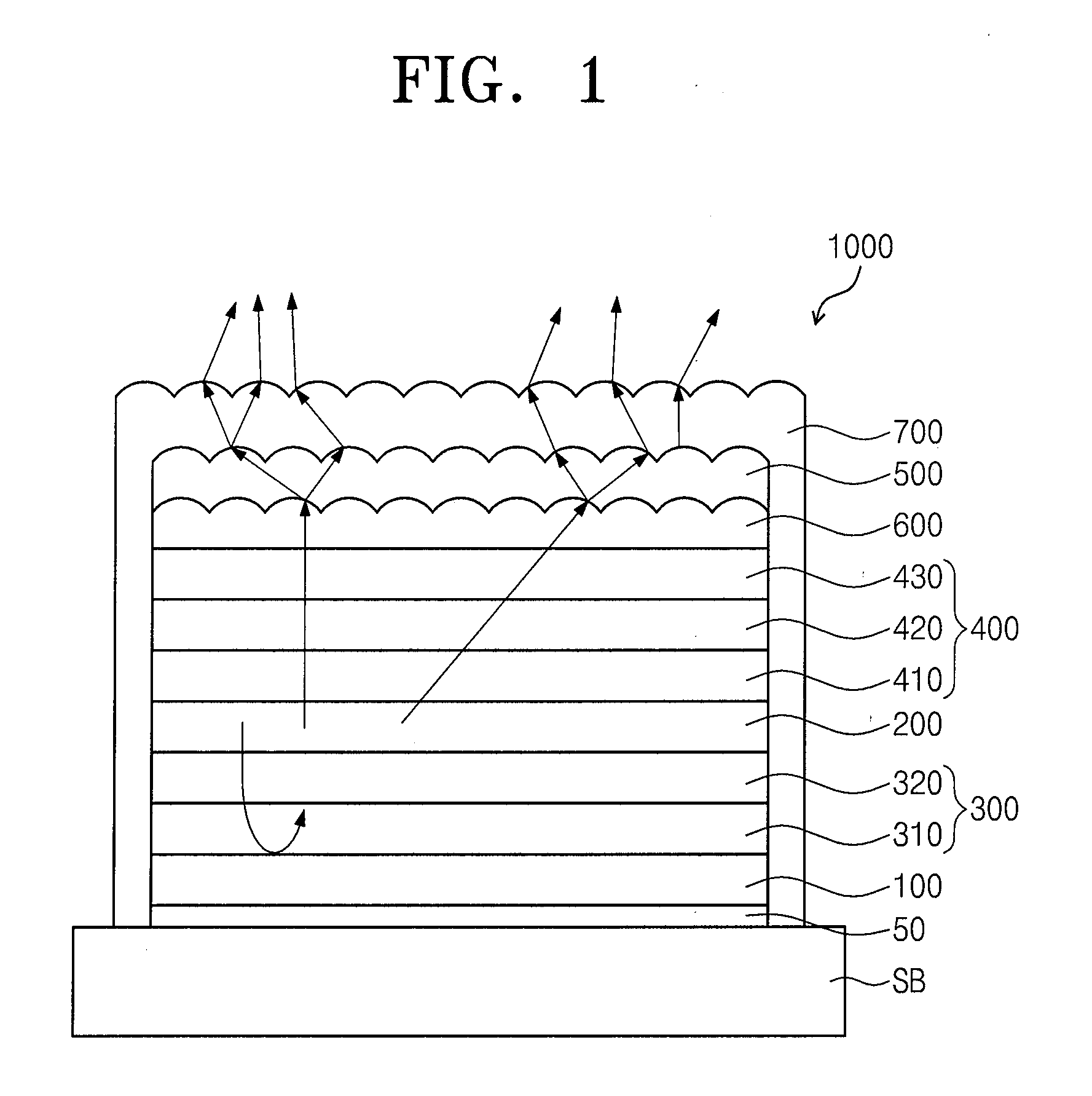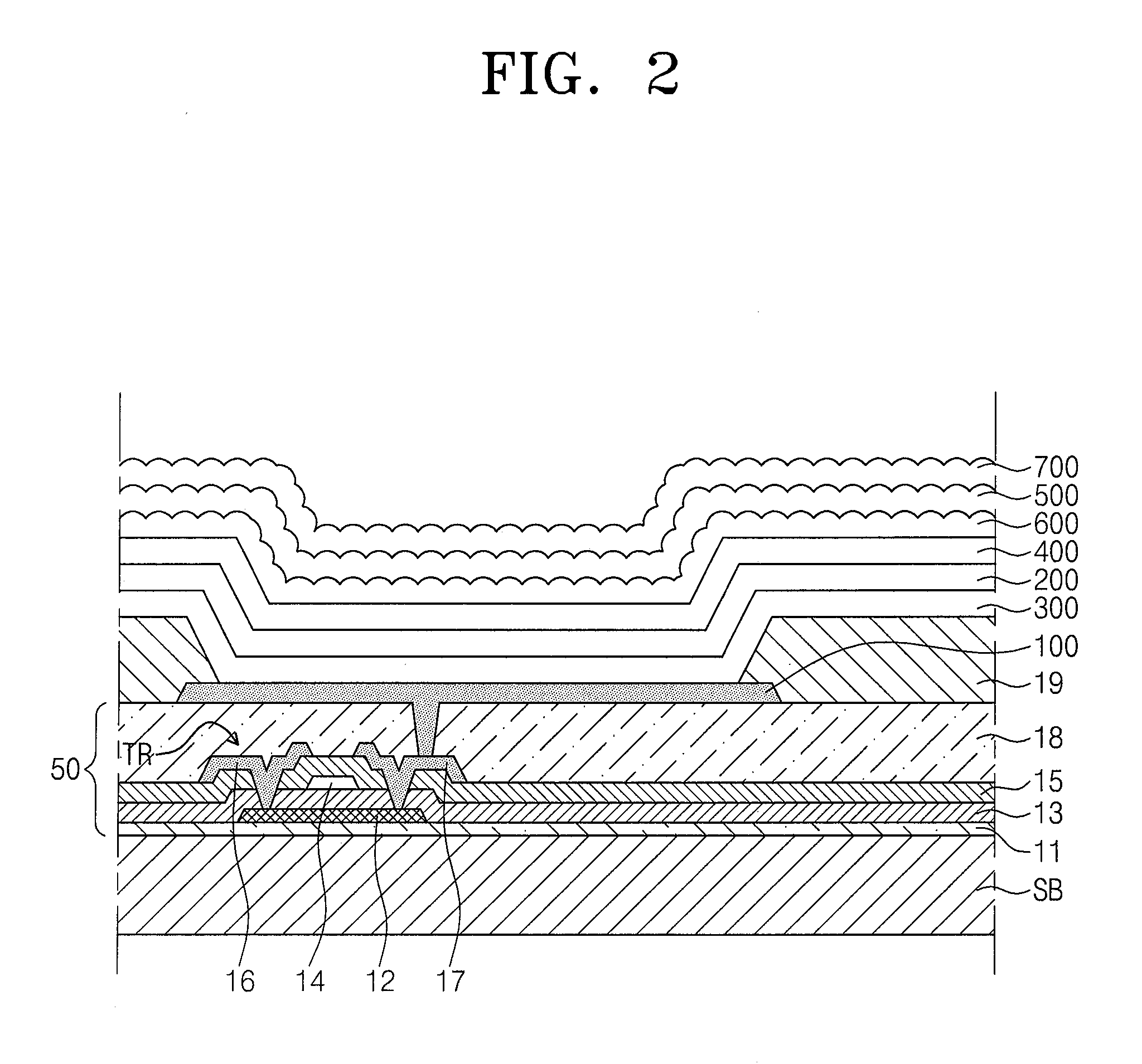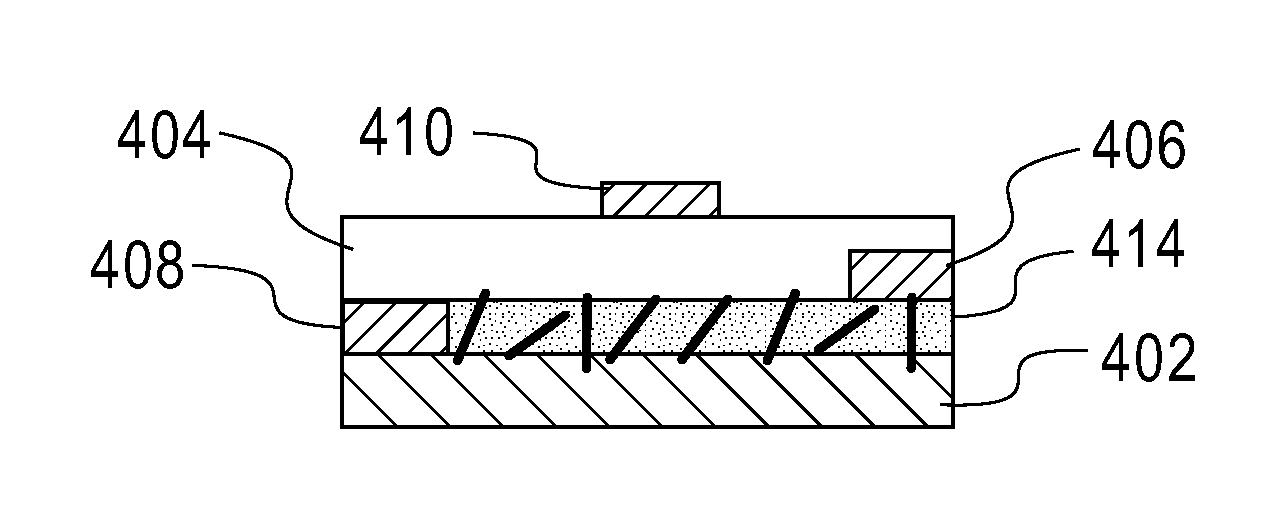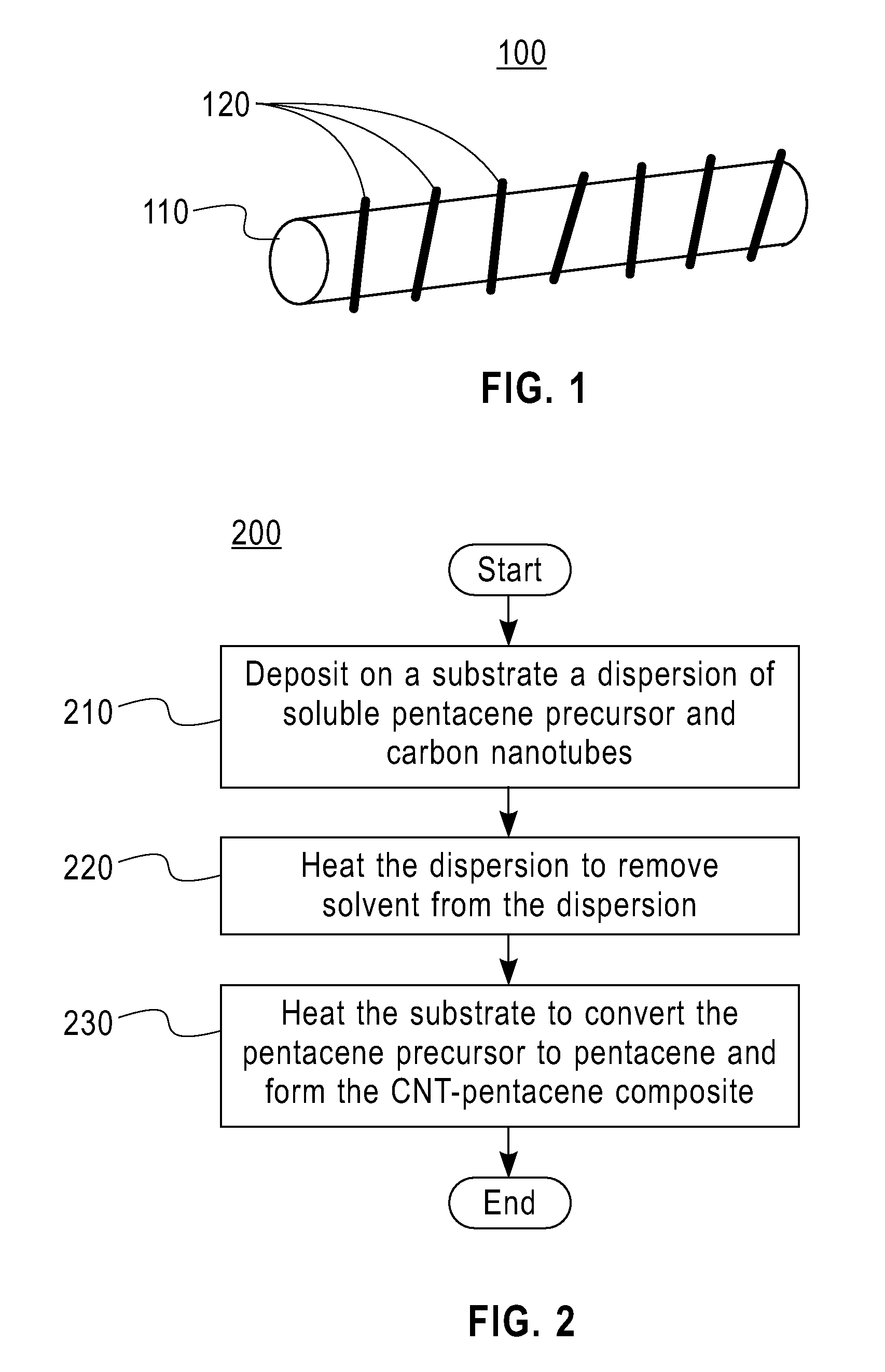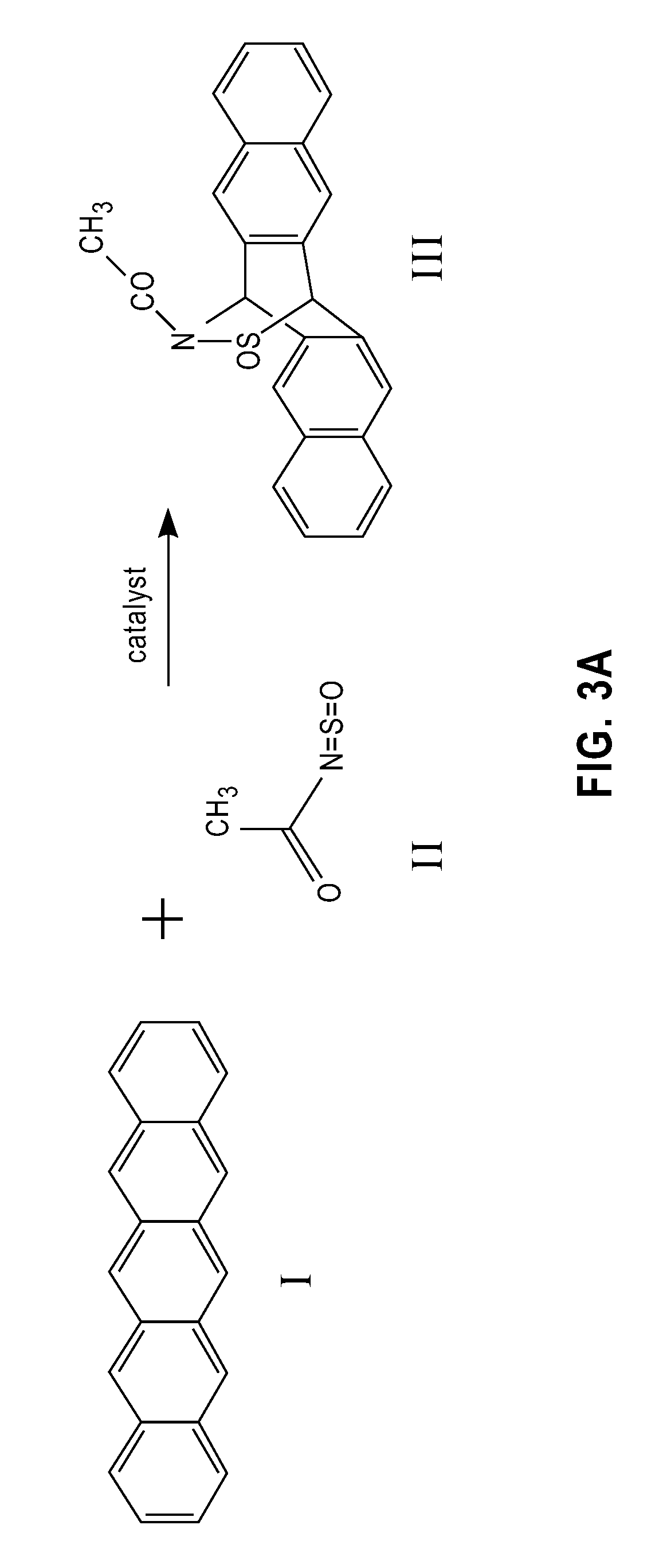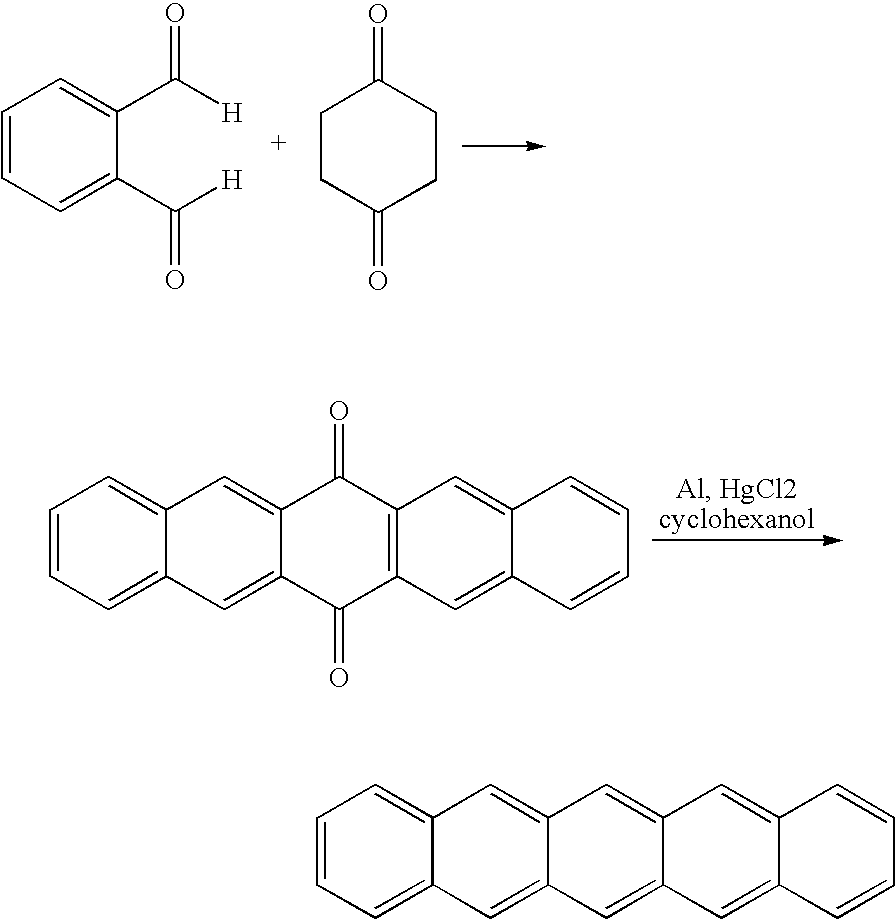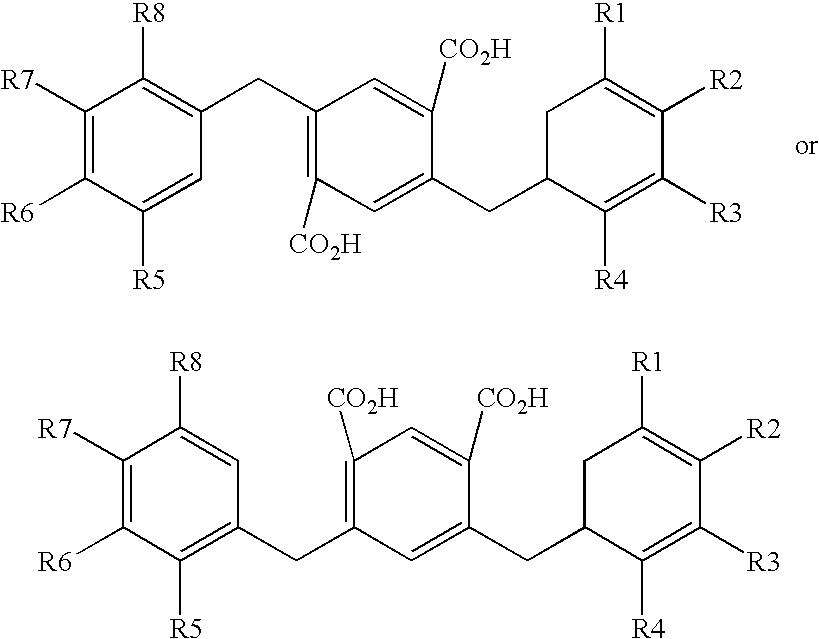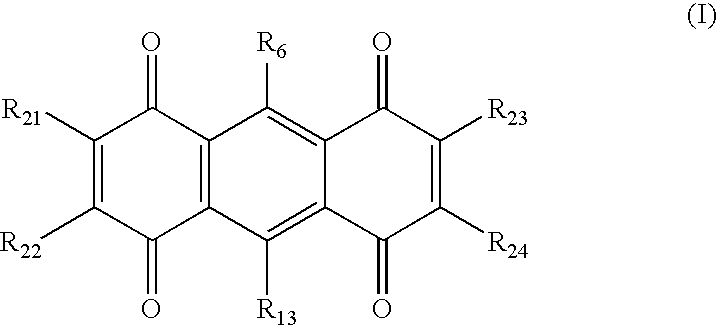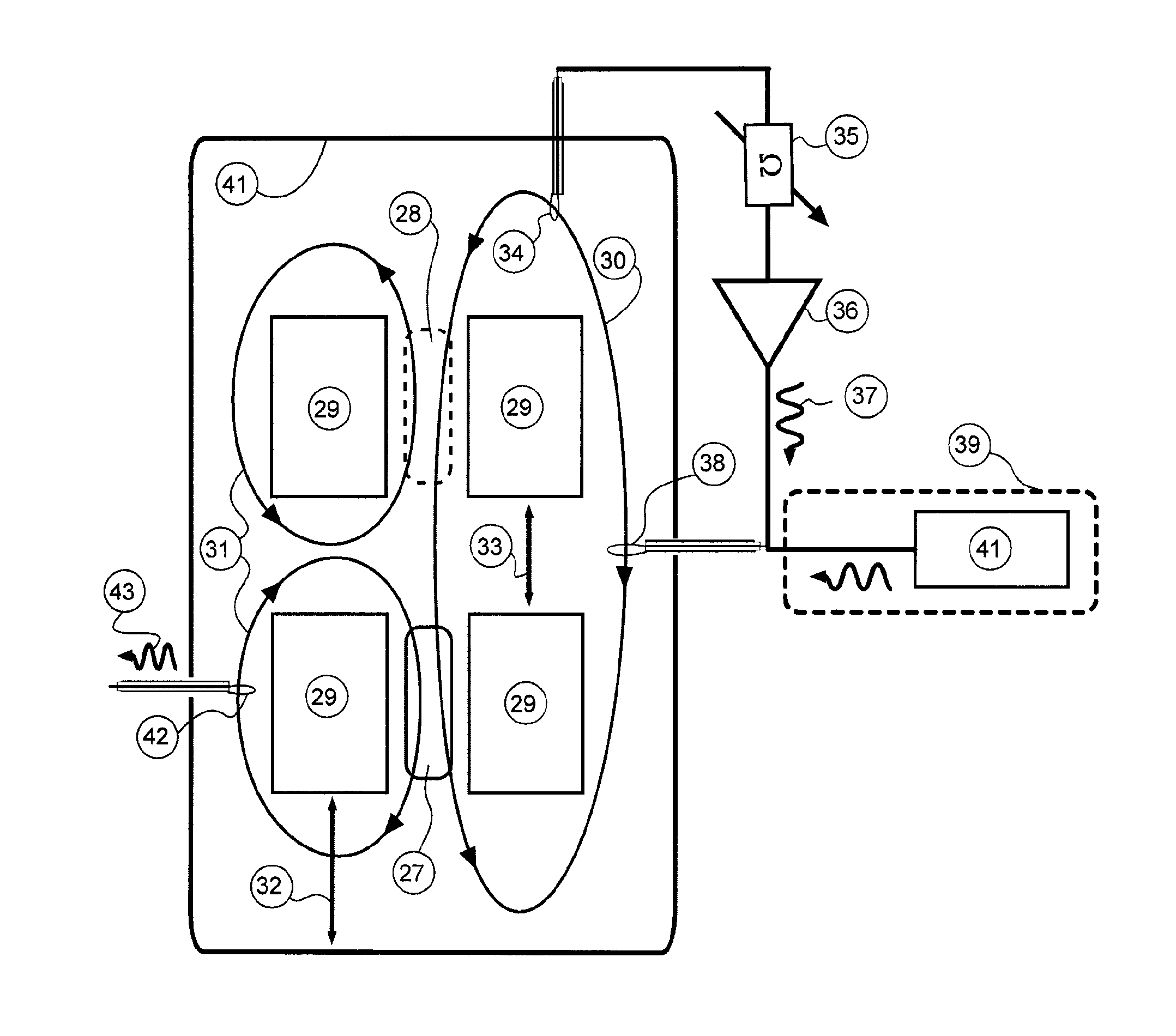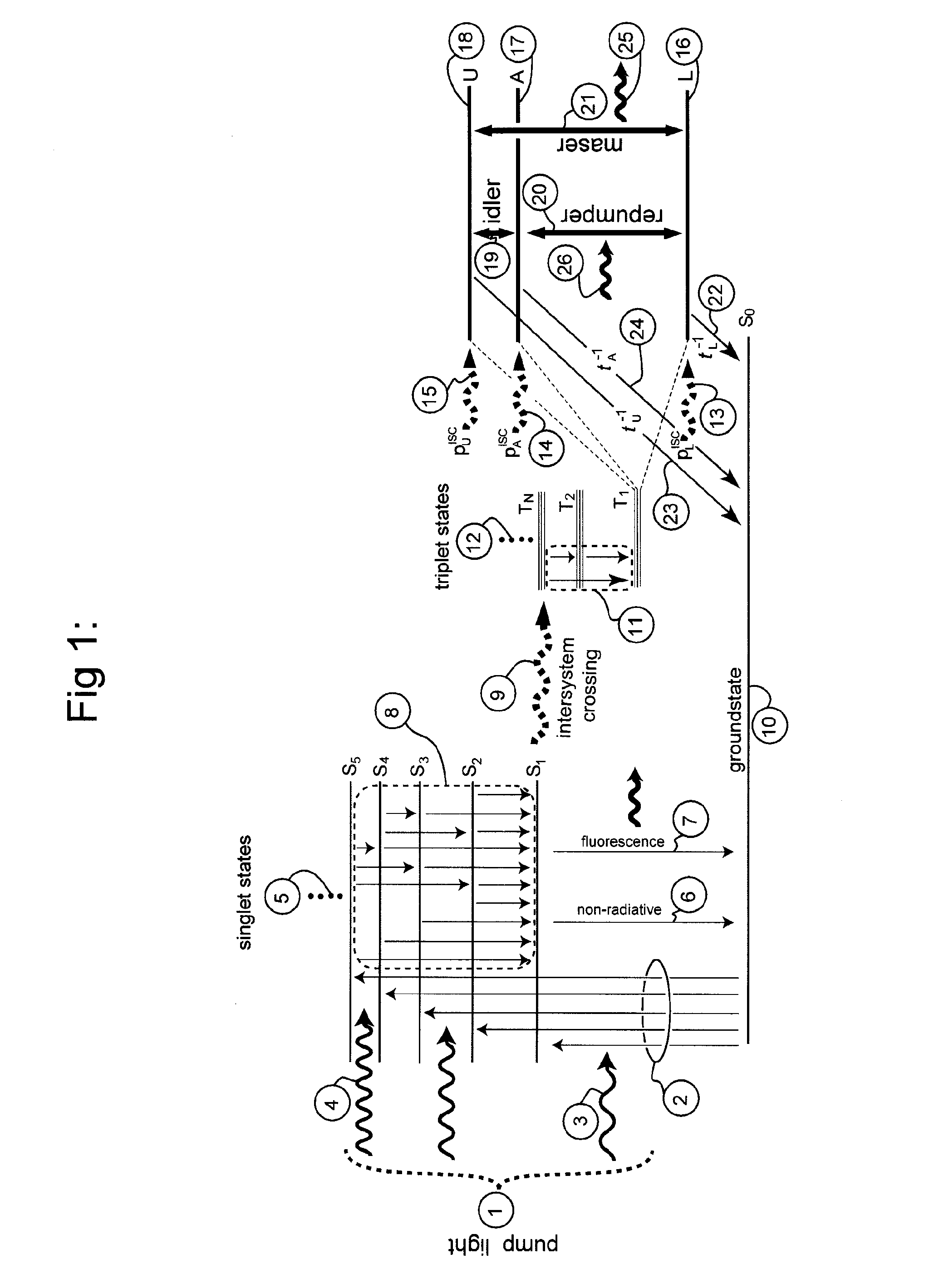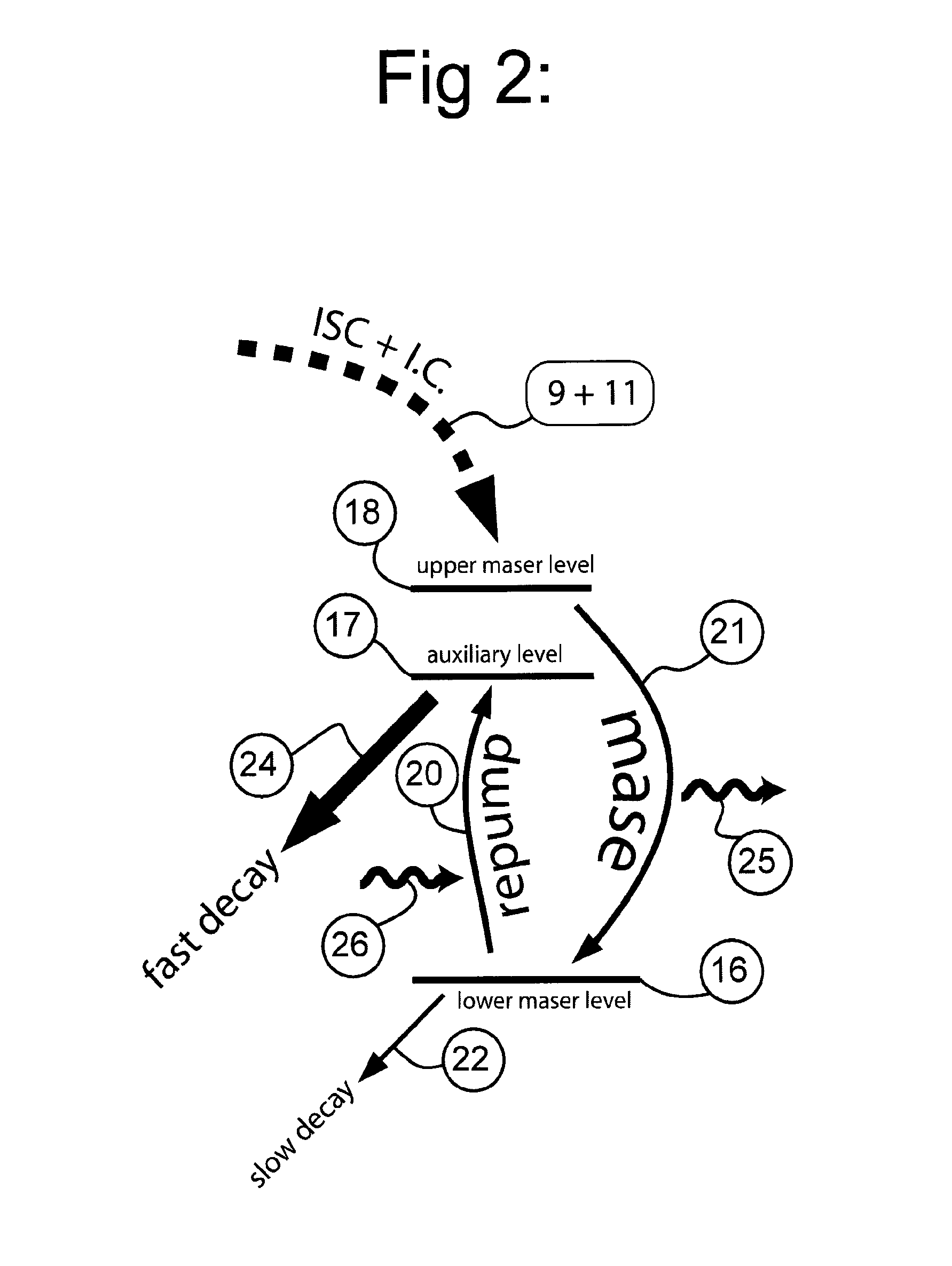Patents
Literature
157 results about "Pentacene" patented technology
Efficacy Topic
Property
Owner
Technical Advancement
Application Domain
Technology Topic
Technology Field Word
Patent Country/Region
Patent Type
Patent Status
Application Year
Inventor
Pentacene is a polycyclic aromatic hydrocarbon consisting of five linearly-fused benzene rings. This highly conjugated compound is an organic semiconductor. The compound generates excitons upon absorption of ultra-violet (UV) or visible light; this makes it very sensitive to oxidation. For this reason, this compound, which is a purple powder, slowly degrades upon exposure to air and light.
Organic semiconductor element
InactiveUS7061010B2Easy to produceLow costPolycrystalline material growthFrom normal temperature solutionsPhotonicsElectronic properties
The present invention relates to an organic semiconductor thin film suitably employed in electronics, photonics, bioelectronics, or the like, and a method for forming the same. The present invention further relates to a solution for an organic semiconductor used to form the organic semiconductor thin film and an organic semiconductor device using the organic semiconductor thin film.The transistor of the present invention is manufactured by forming sequentially a gate electrode (2), an insulator layer (3), a source electrode and drain electrode (4, 4) on a glass substrate (5), applying thereto a 0.05% (by mass) solution of pentacene in o-dichlorobenzene and drying the solution to form an organic semiconductor thin film (1).The present invention provides a transistor with superior electronic characteristics because the organic semiconductor thin film (1), which can be formed easily at low cost, is almost free of defects.
Owner:ASAHI KASEI KK
Acene-thiophene semiconductors
InactiveUS20050035333A1Improve performanceUse performanceMaterial nanotechnologyOrganic chemistryTransistor arrayDevice material
Acene-thiophene compounds are disclosed that are useful as organic semiconductors. The compounds, when used as the semiconductor layer in organic thin-film transistors exhibit device characteristics, like charge-carrier mobilities and current on / off ratios, that are comparable to those of pentacene. Also described are semiconductor devices comprising at least one compound of the invention; and articles comprising the semiconductor devices such as thin film transistors or transistor arrays, and electroluminescent lamps.
Owner:3M INNOVATIVE PROPERTIES CO
Thin film transistors using solution processed pentacene precursor as organic semiconductor
InactiveUS6963080B2Inexpensive approachLight weightMaterial nanotechnologyOrganic chemistryCoroneneArame
The present invention describes thin film transistors in which the active channel layer is a thin film of a polycyclic aromatic compound, such as, pentacene, prepared by solution processing a soluble precursor of the polycyclic aromatic compound on a substrate followed by heating to a moderate temperature to convert the precursor back to the polycyclic aromatic compound. The soluble precursors of the polycyclic aromatic compounds are organic solvent-soluble Diels-Alder adducts of polycyclic aromatic compounds, such as, oligothiophene, perylene, benzo[ghi]perylene, coronene and a polyacene with a variety of dienophiles that contain at least one heteroatom. The Diels-Alder adducts can be converted back to pentacene by retro-Diels-Alder reaction at moderate (60-250° C.) temperatures both in bulk, in solution or as thin-films.
Owner:GLOBALFOUNDRIES US INC
Organic electroluminescent materials and devices made from such materials
Organic electroluminescent materials having desirable efficiency, weight, and durability properties, as well as devices made from such materials. In one aspect, an organic electroluminescent material is electroluminescently conductively coupled directly with an anode and cathode such that the organic electroluminescent material emits light upon the application of a voltage across the anode and cathode. The organic electroluminescent material includes an organo-siloxane polymer having a main chain comprising anthracene and / or pentacene. The anthracene or pentacene can be substituted optionally with hydrogen, alkyl, aryl, heteroalkyl, heteroaralkyl, nitro, cyano, hydroxy, alkoxy, aryloxy, thio, alkylthio, arylthio, amino, halogen, dialkylamino, diarylamino, diaralkylamino, arylamino, alkylamino, arylalkylamino, carbonyloxy, carbonylalkoxy, carbonylalkyloxy, alkylcarbonyloxy, arylcarbonyloxy, alkoxylcarbonyloxy, sulfonyl, sulfonyloxy, alkyl bonded to the adjacent silicon atom of the organo-siloxane polymer, aryl bonded to the adjacent silicon atom of the organo-siloxane polymer, or the adjacent silicon atom of said organo-siloxane polymer.
Owner:ORGANIC DISPLAY TECH
Organic electroluminescence device emitting white light
InactiveUS20050129982A1Improve efficiencySufficient propertyDischarge tube luminescnet screensElectroluminescent light sourcesFluorantheneOrganic electroluminescence
An organic electroluminescence device emitting white light which emits white light and exhibits properties sufficient for practical applications, i.e., a high efficiency of light emission and a long life, is provided. The organic electroluminescence device emitting white light comprises a pair of electrodes and a layer of a light emitting medium disposed between the pair of electrodes, wherein the layer of a light emitting medium comprises a light emitting material emitting blue light and a fluorescent compound having at least one structure selected from a fluoranthene skeleton structure, a pentacene skeleton structure and a perylene skeleton structure.
Owner:IDEMITSU KOSAN CO LTD
Low temperature thin film transistor fabrication
The invention broadens the range of materials and processes that are available for Thin Film Transistor (TFT) devices by providing in the device structure an organic semiconductor layer that is in contact with an inorganic mixed oxide gate insulator involving room temperature processing at up to 150 degrees C. A TFT of the invention has a pentacene semiconductor layer in contact with a barium zirconate titanate gate oxide layer formed on a polycarbonate transparent substrate employing at least one of the techniques of sputtering, evaporation and laser ablation.
Owner:GLOBALFOUNDRIES INC
Organic semiconductor element, production method therefor and organic semiconductor device
Owner:CANON KK
Organic electroluminescence device emitting white light
InactiveUS20050019606A1Improve efficiencySufficient propertyDischarge tube luminescnet screensElectroluminescent light sourcesFluorantheneOrganic electroluminescence
An organic electroluminescence device emitting white light which emits white light and exhibits properties sufficient for practical applications, i.e., a high efficiency of light emission and a long life, is provided. The organic electroluminescence device emitting white light comprises a pair of electrodes and a layer of a light emitting medium disposed between the pair of electrodes, wherein the layer of a light emitting medium comprises a light emitting material emitting blue light and a fluorescent compound having at least one structure selected from a fluoranthene skeleton structure, a pentacene skeleton structure and a perylene skeleton structure.
Owner:IDEMITSU KOSAN CO LTD
Inkjet Printing of Conductive Carbon Nanotubes, Inherently Conductive Polymers, and Metal Particle Inks
InactiveUS20120111599A1Improve conductivityImprove electrical pathwaysMaterial nanotechnologyConductive materialCoating systemConductive polymer
Systems and methods for forming conductive materials. The conductive materials can be applied using a printer in single or multiple passes onto a substrate. The conductive materials are composed of electrical conductors such as carbon nanotubes (including functionalized carbon nanotubes and metal-coated carbon nanotubes), grapheme, a polycyclic aromatic hydrocarbon (e.g. pentacene and bisperipentacene), metal nanoparticles, an inherently conductive polymer (ICP), and combinations thereof. Once the conductive materials are applied, the materials are dried and sintered to form adherent conductive materials on the substrate. The adherent conductive materials can be used in applications such as damage detection, particle removal, and smart coating systems.
Owner:NASA
Pentacene-carbon nanotube composite, method of forming the composite, and semiconductor device including the composite
A composite material includes a carbon nanotube, and plural pentacene molecules bonded to the carbon nanotube. A method of forming the composite layer, includes depositing on a substrate a dispersion of soluble pentacene precursor and carbon nanotubes, heating the dispersion to remove solvent from the dispersion, heating the substrate to convert the pentacene precursor to pentacene and form the carbon nanotube-pentacene composite layer.
Owner:GLOBALFOUNDRIES US INC
Organic semiconductor element, production mehtod therefor and organic semiconductor device
An organic semiconductor element is provided which has the controlled crystalline state of a vapor-deposited pentacene layer and a high mobility with low voltage driving. The organic semiconductor element is formed by providing a gate electrode 101 on the surface of a substrate 102, providing thereon a gate insulating layer 103, providing on the surface of the gate 102 insulating layer 103 an island-shaped protrusion layer 104 having dispersed and island-shaped protrusions with a low surface energy, providing on the island-shaped protrusion layer 104 a source electrode 106 and a drain electrode 107 with a distance therebetween, providing thereon an organic semiconductor layer 105 in contact with the island-shaped protrusion layer 104 and both electrodes 106 and 107, and further providing a protective film 108 on the organic semiconductor layer 105.
Owner:CANON KK
Organic electroluminescence device emitting white light
InactiveUS20070134515A1Improve efficiencySufficient propertyDischarge tube luminescnet screensElectroluminescent light sourcesFluorantheneOrganic electroluminescence
Owner:IDEMITSU KOSAN CO LTD
Hetero diels-alder adducts of pentacene as soluble precursors of pentacene
The present invention describes organic solvent-soluble Diels-Alder adducts of polycyclic aromatic compounds, such as, oligothiophene, perylene, benzo[ghi]perylene, coronene and polyacenes, with variety of dienophiles containing at least one heteroatom and in some cases two heteroatoms bonded to aromatic moiety, such as, thioxomalonates, azodicarboxylates, thialdehyde, acylnitroso and N-sulfinylamides. The Diels-Alder adducts are prepared by a simple, one step cycloaddition reaction of the polycyclic aromatic compounds, such as, pentacene, or other fused aromatic compounds, with heterodienophiles. The Diels-Alder adducts according to the present invention all form soluble adducts with pentacene and can be converted back to pentacene by retro-Diels-Alder reaction at moderate (60–250° C.) temperatures both in bulk, in solution or as thin-films.
Owner:GLOBALFOUNDRIES INC
Organic semicondutor element
InactiveUS20050258417A1Reduce spacingIncrease speedPolycrystalline material growthFrom normal temperature solutionsPhotonicsElectron
The present invention relates to an organic semiconductor thin film suitably employed in electronics, photonics, bioelectronics, or the like, and a method for forming the same. The present invention further relates to a solution for an organic semiconductor used to form the organic semiconductor thin film and an organic semiconductor device using the organic semiconductor thin film. The transistor of the present invention is manufactured by forming sequentially a gate electrode (2), an insulator layer (3), a source electrode and drain electrode (4, 4) on a glass substrate (5), applying thereto a 0.05% (by mass) solution of pentacene in o-dichlorobenzene and drying the solution to form an organic semiconductor thin film (1). The present invention provides a transistor with superior electronic characteristics because the organic semiconductor thin film (1), which can be formed easily at low cost, is almost free of defects.
Owner:ASAHI KASEI KK
Compounds comprising a linear series of five fused carbon rings, and preparation thereof
The present application discloses methods for the production of organic compounds comprising a linear series of five fused carbon rings. Such compounds are useful in the production of electronic components, devices and materials. For example the methods disclosed permit the production of 2,9- and 2,10-disubstituted pentacene compounds that present particularly advantageous properties for the manufacture of semiconductor materials, and may be used in devices such as for example thin film transistors and solar cells. Also disclosed are compounds that are excellent candidates for use in the manufacture of semiconductor materials, and other components of electronic systems, by virtue of their solubility, crystal packing geometries, and electronic properties.
Owner:UNIVERSITY OF OTTAWA
Preparing organic light emitting film by electrochemical deposition and use in electroluminescence device
InactiveCN1822410AEasy to control area sizeEasy to patternSolid-state devicesSemiconductor/solid-state device manufacturingIridiumRhenium
Present invention relates to an organic light-emitting film electrochemical deposition preparation method and application in preparing electroluminescence device, belonging to organic luminescence field. Said Light-emitting film is formed by electrochemical deposition in electrolytic bath, the monomer for electrochemical polymerization formed by chemical bond connecting electricity activity unit and luminescence unit, wherein electricity activity unit consisting of carbazole, thiophene, pyrrole, ethene, ethyne or phenylamine, diphenylamine, and triphenylamine, luminescence unit being cinnamic dimer, tripolymer, tetramer or terphenyl, quaterphenyl, quinquephenyl, tetracene, pentacene, fluorene dimer, tripolymer or tetramer and terpyridyl (dipyridyl ) rhenium etc, prepared electroluminescence device having simple technology, high device luminous efficiency, easy control area adjustable luminous color etc advantages.
Owner:JILIN UNIV
Field effect transistor device with graphene as electrode and method for producing the same
InactiveCN101404322ASmall sizeImprove mobilitySolid-state devicesSemiconductor/solid-state device manufacturingDielectricGate dielectric
The invention provides a field effect transistor device by taking graphene as an electrode and a preparation method thereof. In the device, the material of a source region and a drain region is graphene; the materials of a channel region are various small organic molecules, high polymers and semiconducting polymer materials, such as polythiophene, pentacene, polycyclic aromatic hydrocarbon, perylene imide and the like; and the material of a gate region is highly doped conductive silicone. The device further comprises a gate dielectric layer the material of which is silicon dioxide, silicon nitride and various high-K dielectrics. The nano field effect transistor device can be n-typed, p-typed or amphoteric type, and the device realizes all functions of a macroscopic field effect transistor device at the nanometer level. The transistor device has very high application value in terms of ultrasensitive environmental stimuli response devices, ultrasensitive solar stimuli response devices and the like. In addition, in the fields of molecular electronics and nanometer, the transistor device plays an essential role of promoting the development of ultramicro photoelectric devices with various dimensions at molecular level.
Owner:PEKING UNIV
Substituted pentacene semiconductors
Substituted pentacene compounds comprise at least one substituent selected from the group consisting of electron-donating substituents, halogen substituents, and combinations thereof; the substituent(s) each being bonded to a carbon atom of a terminal ring of pentacene, and being the only substituent(s); with the proviso that when the compound has only two substituents, both of which are methyl or alkoxy, and one substituent is bonded to the number 2 carbon atom, the other substituent, if methyl, is bonded to the number 1, 3, 4, 8, or 11 carbon atom and, if alkoxy, is bonded to the number 1, 3, 4, 8, 9, or 11 carbon atom; and with the further proviso that when the compound has only four substituents, all of which are alkoxy, the substituents are bonded to the numbers 2, 3, 9, and 10 carbon atoms.
Owner:3M INNOVATIVE PROPERTIES CO
Organic small molecule solar cell with inversion structure
InactiveCN101997085AReduce pollutionCaused by pollutionSolid-state devicesSemiconductor/solid-state device manufacturingConductive polymerElectron donor
The invention discloses an organic small molecule solar cell with an inversion structure, relating to a solar cell. The organic small molecule solar cell comprises a cathode modification layer (2), an organic small molecule electron acceptor film (3), an electron donor film (4), an anode modification layer (5) and a metal electrode (6) which are sequentially manufactured on a conductive layer of an ITO (Indium Tin Oxide) glass substrate (1). The cathode modification layer (2) adopts a metal material with low work function and the thickness of 1-2nm; the material of the organic small molecule electron acceptor film (3) is C60 or C70; the material of the electron donor film (4) is CuPc or Pentacene; and the material of the anode modification layer (5) is MoO3 with the thickness of 8-10nm. The invention solves the problem of the pollution to the traditional metal electrode.
Owner:BEIJING JIAOTONG UNIV
Compounds comprising a linear series of five fused carbon rings, and preparation thereof
The present application discloses methods for the production of organic compounds comprising a linear series of five fused carbon rings. Such compounds are useful in the production of electronic components, devices and materials. For example the methods disclosed permit the production of 2,9- and 2,10-disubstituted pentacene compounds that present particularly advantageous properties for the manufacture of semiconductor materials, or ink jet fabrication, and may be used in devices such as for example thin film transistors and solar cells. Also disclosed are compounds that are excellent candidates for use in the manufacture of semiconductor materials, and other components of electronic systems, by virtue of their solubility, crystal packing geometries, and electronic properties.
Owner:UNIVERSITY OF OTTAWA
Organic monolayer thin film field effect gas sensor and preparation method thereof
The present invention relates to an organic monomolecular layer thin film field effect gas sensor and a preparing method of the same. The forming structure of the gas sensor includes a substrate, a gate electrode, a dielectric layer, an active layer and a source-drain electrode from bottom to top, and the active layer is an organic monomolecular thin film layer. In the preparing method, an organic monomolecular thin film layer is evaporated on a dielectric layer by using a vacuum evaporation method; during evaporation, first an evaporating source is heated to a target temperature (such as 123°C), and after the deposition rate is stable, a beam baffle is opened to begin evaporation; evaporation time is controlled to obtain an organic monomolecular thin film layer serving as an active layer. According to the technical solution of the present invention, by means of a gas sensor with a pentacene monomolecular layer serving as an active layer, all pentacene molecules in the active layer can contact the outside world. When the sensor is working, pentacene molecules interact with detected gas directly without obstruction, and this interaction can be sensitively reflected in a change of an output curve of a thin film transistor thereof.
Owner:THE NAT CENT FOR NANOSCI & TECH NCNST OF CHINA
Liquid phase fabrication of active devices including organic semiconductors
InactiveUS20070077681A1Solid-state devicesSemiconductor/solid-state device manufacturingLiquid mediumOrganic semiconductor
Techniques including steps of: providing a support body; forming an organic semiconductor composition body including an organic semiconductor composition on the support body, no more than 10% by weight of the organic semiconductor composition being pentacene; providing a first organic dielectric composition mobilized in a first liquid medium, the organic semiconductor composition being insoluble in the first liquid medium; and forming a first organic dielectric composition body from the first organic dielectric composition on the organic semiconductor composition body. Techniques in which an organic semiconductor composition body is formed on an organic dielectric composition body. Apparatus having an organic dielectric composition body on an organic semiconductor composition body.
Owner:ALCATEL-LUCENT USA INC +1
Method for manufacturing organic thin film transistor realizing patterning and automatic-modification interface in one step
InactiveCN102623639AImprove mobilityImprove electrical performanceSolid-state devicesSemiconductor/solid-state device manufacturingMachined surfaceCharge carrier mobility
The invention relates to a method for manufacturing organic thin film transistor realizing a patterning and automatic-modification interface in one step, comprising surface treatment of a silicon substrate, formation of an organic semiconductor thin film and configuration of an electrode. The method is characterized in that the formation of the organic semiconductor thin film comprises the following steps of: mixing an organic semiconductor material Tips-pentacene and a high polymer according to a mass ratio of (4:1)-(1:1), dissolving a mixture in an organic solvent to prepare an organic solution with a mass percentage concentration of 0.5-5%, uniformly dripping the organic solution through a dripping film standing method into the silicon substrate with the machined surface and a reserved gold electrode in an inclined angle of 15-30 DEG, and desolventizing and drying to obtain a patterned organic semiconductor thin film with the automatic-modification interface. According to the method disclosed by the invention, a dewetting patterning operation is realized in one step, and an automatic-modification interface layer is generated through phase separation, thus the carrier mobility is improved, and the electric performance of the organic thin film transistor is also improved.
Owner:HEFEI UNIV OF TECH
Process for Preparing Substituted Pentacenes
ActiveUS20100127220A1Silicon organic compoundsConductive materialField effectField-effect transistor
The invention relates to a process of preparing substituted pentacenes, to novel pentacenes prepared by this process, to the use of the novel pentacenes as semiconductors or charge transport materials in optical, electrooptical or electronic devices including field effect transistors (FETs), electroluminescent, photovoltaic and sensor devices, and to FETs and other semiconducting components or materials comprising the novel pentacenes.
Owner:FLEHKSENEHBL LTD
N-type organic thin film transistor, ambipolar field-effect transistor, and method of fabricating the same
InactiveUS20120175602A1High electron mobilityImprove propertiesNanoinformaticsSolid-state devicesOrganic filmGate dielectric
An N-type organic thin film transistor, an ambipolar field-effect transistor, and methods of fabricating the same are disclosed. The N-type organic thin film transistor of the present invention comprises: a substrate; a gate electrode locating on the substrate; a gate-insulating layer covering the gate electrode, and the gate-insulating layer is made of silk protein; a buffering layer locating on the gate-insulating layer, and the buffering layer is made of pentacene; an N-type organic semiconductor layer locating on the buffering layer; and a source and a drain electrode, wherein the N-type organic semiconductor layer, the buffering layer, the source and the drain electrode are disposed over the gate dielectric layer.
Owner:NATIONAL TSING HUA UNIVERSITY
Organic light emitting display device and fabricating method thereof
ActiveUS20150171371A1Solid-state devicesSemiconductor/solid-state device manufacturingPhenanthrolineDisplay device
An organic light emitting display (OLED) device includes: an insulating substrate; a first electrode on the insulating substrate; a second electrode on the first electrode; a light-emitting layer between the first electrode and the second electrode; a hole common layer between the first electrode and the light-emitting layer; an electron common layer between the second electrode and the light-emitting layer; and a scattering layer on the insulating substrate and having a non-planar surface, wherein the scattering layer includes at least one of benzene, naphthalene, anthracene, tetracene, pentacene, amine, benzidine, biphenyl, carbazole, pyridine, bipyridine, imidazole, phenanthroline, phenylborane, pyrimidine, or triazine, and the base material of the scattering layer includes a substituent including at least one of a benzoyl group, a carboxyl group, an aminophenoxyl group, a tricabonate group, or a styryl group.
Owner:SAMSUNG DISPLAY CO LTD
Organic field effect transistor with pentacene derivative as semiconductor material and preparing method thereof
InactiveCN1585151AIdeal field effect mobilityIdeal current switch ratioSolid-state devicesSemiconductor/solid-state device manufacturingSemiconductor materialsOrganic field-effect transistor
An OFET with pentacene derivatives as semiconductor materials includes Top type and Bottom type. The substituting radicals involve halides (F-, Cl-, Br-, I-). Films can be produced from pentacene derivatives directly, or produced from pentacene derivatives precursor indirectly, by vacuum depositing, rotary coating, throwing, casting, LB method, printing, and ink jetting, etc. The produced OFET has good field effect transition rate and electric current switching ratio stably.
Owner:FUDAN UNIV
Pentacene-carbon nanotube composite, method of forming the composite, and semiconductor device including the composite
A composite material includes a carbon nanotube, and plural pentacene molecules bonded to the carbon nanotube. A method of forming the composite layer, includes depositing on a substrate a dispersion of soluble pentacene precursor and carbon nanotubes, heating the dispersion to remove solvent from the dispersion, heating the substrate to convert the pentacene precursor to pentacene and form the carbon nanotube-pentacene composite layer.
Owner:GLOBALFOUNDRIES U S INC
Compounds comprising a linear series of five fused carbon rings, and preparation thereof
InactiveUS20050274945A1Suitable for useSolid-state devicesSemiconductor/solid-state device manufacturingSolubilityBenzene
The present application discloses methods for the production of organic compounds comprising a linear series of five fused carbon rings. Such compounds are useful in the production of electronic components, devices and materials. For example the methods disclosed permit the production of 2,9- and 2,10-disubstituted pentacene compounds that present particularly advantageous properties for the manufacture of semiconductor materials, and may be used in devices such as for example thin film transistors and solar cells. Also disclosed are compounds that are excellent candidates for use in the manufacture of semiconductor materials, and other components of electronic systems, by virtue of their solubility, crystal packing geometries, and electronic properties.
Owner:UNIVERSITY OF OTTAWA
Maser assembly
A maser assembly includes a pump light source; a maser material including molecules that are excited through the absorption of light (1) from the pump light source, and which subsequently transfer via intersystem crossing (9) into the sublevels of their triplet ground states, so causing a population inversion between two sublevels (16,18); an electromagnetic structure in which the masing material is disposed, and which supports a microwave mode that is both resonant in frequency with and magnetically coupled to the transition between these two sublevels; and where energy is supplied to the microwave mode through stimulated emission (25) across the transition at such a rate as to exceed the mode's electromagnetic losses, the microwave mode being a maser mode. The assembly includes provisions for effecting substantially continuous maser activity during operation of the assembly. The laser crystal may be a (perdeuterated) pentacene in p-terphenyl which is held at room temperature without an additional magnetic field and the dye molecules in the single crystal may be pumped by blue LED with a frequency conversion to the yellow and green with the help of a Ce:YAG fluorescent pump light concentrator.
Owner:NPL MANAGEMENT +1
Features
- R&D
- Intellectual Property
- Life Sciences
- Materials
- Tech Scout
Why Patsnap Eureka
- Unparalleled Data Quality
- Higher Quality Content
- 60% Fewer Hallucinations
Social media
Patsnap Eureka Blog
Learn More Browse by: Latest US Patents, China's latest patents, Technical Efficacy Thesaurus, Application Domain, Technology Topic, Popular Technical Reports.
© 2025 PatSnap. All rights reserved.Legal|Privacy policy|Modern Slavery Act Transparency Statement|Sitemap|About US| Contact US: help@patsnap.com
